Slightly Stoopid, a prolific band touring for over a decade – modeling in their own way such acts as the Grateful Dead, Phish, Dave Matthews and similar acts. “Slightly Stoopid”, is a band name conceived while frivolous and young. Now after years of touring, they’ve added experience, family life but continues to tour. Slightly Stoopid talks to Grateful Web about tour experience, music, their continually growing fan base, and how they sustain such touring feat.GW: Hello, this is Grateful Web Vinh Nguyen with Ryan from Slightly Stoopid. I appreciate your time here Ryan. I’m going to throw questions your way.Ryan: Sure. Ok, cool.GW: Yesterday in a coffee shop, I played Slightly Stoopid’s tune loudly on my laptop with the headphones unintentionally unplugged in. Heads around were bobbing to the music which led to the discussion of the band’s name, Slightly Stoopid. What’s the origin of the name?Ryan: You know, the name came even before my time. Just picture a bunch of kids smoking and drinking a bit and tossing band names around for their first gig – pretty informal. The guys were basically sitting around like “how about slightly weird”, and someone was like “uhh slightly stupid” and everybody laughed. And, that became the name of the band.GW: Haha. I see now there is eight band members. Were there eight at that time?Ryan: No, in the beginning there was just a three piece. The guys were playing more punk, ska and some reggae as well. But yeah, the band has grown considerably. When I first joined, the band was a four piece. That was a little bit over ten years ago. We met a couple of horn players. We hired them and became six. Then, picked up a keyboard player – that’s seven. And then lately, we’ve been having our friend Karl Denson who is a great tenor player. He’s basically an unofficial band member at this point. He’s been doing a lot of gig with us. So yeah, he became an unofficial eighth member. GW: What’s the rationale for that. You have three, then four member, etc. Does adding members something you look for in your sound? Or, does it just happen, and it complimented the band and decide to stick with it?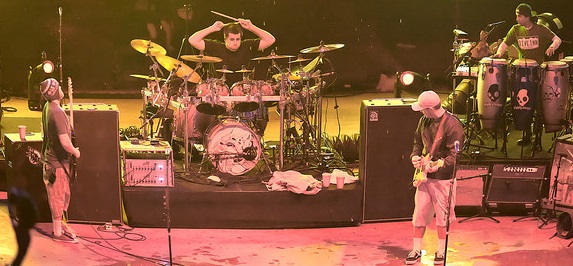 Ryan: I mean it’s both really. Obviously, the more players you have in the band the more possibility for texture. You have more guys playing instruments. You can create all these different types of textures – two or three guys at one time, all eight at one time, sometimes there’s six guys playing. We do kind of an adding and subtracting of members as we go through the night. Sometimes we’ll have the whole band. Especially for the reggae stuff, the horn guys will play the key and everything is going strong. And then we do punkier, sometime more ska type songs, we have only you know four of us playing – the guitar, bass, vocals and percussion and drum set. For like encores, we’ll do acoustic stuff where it’ll be Miles playing the guitar, all our keyboard players, and OG our percussion player kind of doing a trio format. It enables us a lot of flexibility musically and gives us the ability to do different type of textures – having a full in your face sound with all guys or a lighter more acoustic sound with three guys. GW: Sure, and I guess it gives the guys a break, except for the drummer (Ryan).Ryan: Yeah, exactly. I don’t really get a break. The horn guys get to take some breaks and other guys as well at some point. So, that’s pretty good.GW: Before your latest album “Top of the World”, I hear you guys been touring for over a decade straight! Ryan: Yeah, we’ve been touring a long time. The band is basically built on touring. We’ve never really sold a ton of records. We’ve always maintained our independence. We’ve actually been touring more than that. The band has been going close to 20 years. Miles and Kyle…started doing gigs back in 1993 or 1994. Then, it started picking up around 1995-1996 when they met Brad and Miguel from Skunk Records. Put a record out, started getting out on the road and doing gigs probably I say around 1995. We’re pretty much road dogs. At our peak, we were probably doing 180 days a year. Right now, we’re doing closer to like 80 to 100. A lot of us have families, kids and stuff so we’re trying to be home too and maintain our touring schedule pretty consistently.GW: You want to continue this path of being a touring band?
Ryan: I mean it’s both really. Obviously, the more players you have in the band the more possibility for texture. You have more guys playing instruments. You can create all these different types of textures – two or three guys at one time, all eight at one time, sometimes there’s six guys playing. We do kind of an adding and subtracting of members as we go through the night. Sometimes we’ll have the whole band. Especially for the reggae stuff, the horn guys will play the key and everything is going strong. And then we do punkier, sometime more ska type songs, we have only you know four of us playing – the guitar, bass, vocals and percussion and drum set. For like encores, we’ll do acoustic stuff where it’ll be Miles playing the guitar, all our keyboard players, and OG our percussion player kind of doing a trio format. It enables us a lot of flexibility musically and gives us the ability to do different type of textures – having a full in your face sound with all guys or a lighter more acoustic sound with three guys. GW: Sure, and I guess it gives the guys a break, except for the drummer (Ryan).Ryan: Yeah, exactly. I don’t really get a break. The horn guys get to take some breaks and other guys as well at some point. So, that’s pretty good.GW: Before your latest album “Top of the World”, I hear you guys been touring for over a decade straight! Ryan: Yeah, we’ve been touring a long time. The band is basically built on touring. We’ve never really sold a ton of records. We’ve always maintained our independence. We’ve actually been touring more than that. The band has been going close to 20 years. Miles and Kyle…started doing gigs back in 1993 or 1994. Then, it started picking up around 1995-1996 when they met Brad and Miguel from Skunk Records. Put a record out, started getting out on the road and doing gigs probably I say around 1995. We’re pretty much road dogs. At our peak, we were probably doing 180 days a year. Right now, we’re doing closer to like 80 to 100. A lot of us have families, kids and stuff so we’re trying to be home too and maintain our touring schedule pretty consistently.GW: You want to continue this path of being a touring band?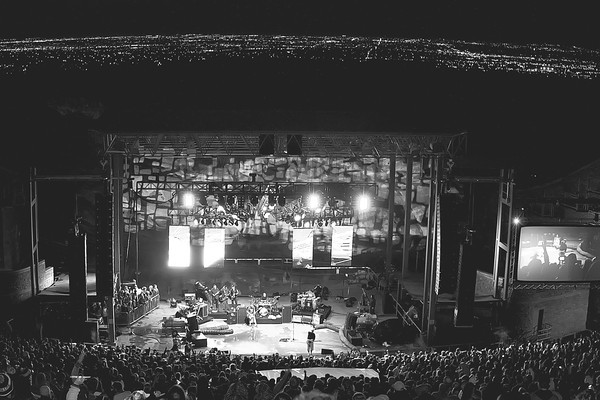 Ryan: Absolutely! We kind of model ourselves after the bands we look up to – bands like the Dead, bands like Dave Matthews Band, Phish, and other acts. They get out and tour and tour and tour, grow a following and maintain it. Maintain their relevance more through touring than putting out like hit singles, you know. GW: Right. Now, for most of us laymen with 8-5 jobs, can you tell us a little bit about the tour life experience?Ryan: Yeah, it’s pretty crazy. We’re hopping on planes all over the place. Most people see this glamorous side of music. And, it is glamorous: the stage, the show and when you got a great crowd. No feeling like that on earth. What people don’t see is the hours of driving, the hours of flying, the hours of being in airports with people who are uptight and stressed out. That is kind of a downside to what we do. Most people don’t think of that. They just see the show, this and that, and you get to party. To be honest, after you’ve been traveling so much, sometimes you do need a couple of beers just to come back down to earth, you know, or a smoke or something. That’s one thing I tell people a lot is that there’s this idealized, glamorized view of the music world thanks to music videos and stuff like that. The reality is that we get paid to travel and we enjoy playing music for fun. I always joke that we get paid to be in airport, and fly, and be in buses, drive through the night… GW: And you are working and it’s not just a ten years party.Ryan: Yeah, absolutely. I mean if you’re trying to sustain you want to stay healthy and do it as long as you can because it so exhausting, you know. Even if you’re a healthy person, it’s still exhausting -- if you add all the party favors and everything that comes along with the lifestyle. A lot of my friends don’t do it anymore because they go too big. So, you have to learn to pace yourself, take care of you body, make sure you’re resting, hydrating and all this stuff people don’t think about, you know. GW: Right, how do you guys or what do you do to wind down on the road?
Ryan: Absolutely! We kind of model ourselves after the bands we look up to – bands like the Dead, bands like Dave Matthews Band, Phish, and other acts. They get out and tour and tour and tour, grow a following and maintain it. Maintain their relevance more through touring than putting out like hit singles, you know. GW: Right. Now, for most of us laymen with 8-5 jobs, can you tell us a little bit about the tour life experience?Ryan: Yeah, it’s pretty crazy. We’re hopping on planes all over the place. Most people see this glamorous side of music. And, it is glamorous: the stage, the show and when you got a great crowd. No feeling like that on earth. What people don’t see is the hours of driving, the hours of flying, the hours of being in airports with people who are uptight and stressed out. That is kind of a downside to what we do. Most people don’t think of that. They just see the show, this and that, and you get to party. To be honest, after you’ve been traveling so much, sometimes you do need a couple of beers just to come back down to earth, you know, or a smoke or something. That’s one thing I tell people a lot is that there’s this idealized, glamorized view of the music world thanks to music videos and stuff like that. The reality is that we get paid to travel and we enjoy playing music for fun. I always joke that we get paid to be in airport, and fly, and be in buses, drive through the night… GW: And you are working and it’s not just a ten years party.Ryan: Yeah, absolutely. I mean if you’re trying to sustain you want to stay healthy and do it as long as you can because it so exhausting, you know. Even if you’re a healthy person, it’s still exhausting -- if you add all the party favors and everything that comes along with the lifestyle. A lot of my friends don’t do it anymore because they go too big. So, you have to learn to pace yourself, take care of you body, make sure you’re resting, hydrating and all this stuff people don’t think about, you know. GW: Right, how do you guys or what do you do to wind down on the road?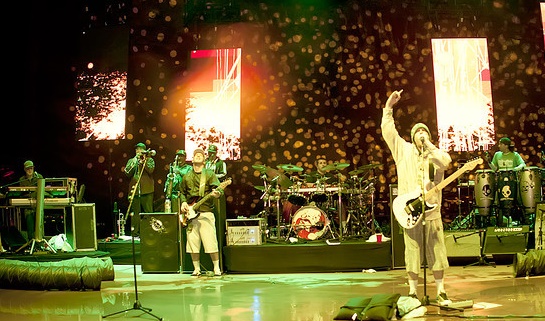 Ryan: I have a family. As soon as I get home, it puts me in a better place than being stuck in the plane with a bunch of people who is stressed out. I love to surf, I’m pretty active, I like to run, ride my bike and do all sort of stuff. Pretty much, exercise helps me kind of get back to normal when I’m home off the road. Lot of the guys surf, a couple of guys are into Yoga, everyone has their own hobbies as well as musical projects to keep the creative juice flowing and fresh. GW: So on the road, you really have to try and maintain your normal life style. So, you’re not constantly on the bus but flying home and flying back to the tour date. Ryan: Yeah, it depends on what the itinerary looks like. Yeah, in the past, were on the bus for eight straight weeks. And you know, the buses look all cool, shiny and everything. But when there’s twelve grown men sharing one of those thing, it can be a little nuts, you know. The partying, having fun, some guys like it quiet, some guys like it wild and crazy so you just have to learn to maintain your sanity while traveling with twelve of your friends and still focus on having a good show night after night.GW: Right, you guys obviously have a huge fan base. What do you attribute that to -- the building of such a huge following?Ryan: Well, two things. They have to like the song first and foremost. You can tour until the cows come home, but if no one likes your music you’re not going to make any money and you’re not going to draw a crowd. Miles and Kyle write great songs that you connect to – that’s the most important thing. Immediately following that and maybe as important is that we’ve stayed consistently on the road very consistently. I can speak since I’ve been in the band almost 11 years. We’ve been on the road so so much – at minimum of five and a maximum up to eight months annually. We’re going from city to city going “hey, we’re here again, we’re here”. When they see the band, they’re going “oh look. That was a fun show last year. I’m gonna come back out and see them again.” You know, we do all the major markets, the major cities, but we also do the secondary and what we call the tertiary market, which are just like smaller town in the middle of nowhere. So, we do all the major cities of course, and then the semi-major cities, and also the ones most touring acts don’t go through. I think that has helped us sustain because we’re able to go in and connect with fans maybe who are a little more music starved in smaller towns. And, they are always more appreciative to see bands they like coming into their town.GW: At this point after touring so much, you get to know your fans better. Have you done anything different in your touring acts or is it fairly the same?Ryan: No, we tailor our act nightly. We typically during the show ask the crowd what songs do you want to hear. Miles and Kyle will look out and someone will call out a song.
Ryan: I have a family. As soon as I get home, it puts me in a better place than being stuck in the plane with a bunch of people who is stressed out. I love to surf, I’m pretty active, I like to run, ride my bike and do all sort of stuff. Pretty much, exercise helps me kind of get back to normal when I’m home off the road. Lot of the guys surf, a couple of guys are into Yoga, everyone has their own hobbies as well as musical projects to keep the creative juice flowing and fresh. GW: So on the road, you really have to try and maintain your normal life style. So, you’re not constantly on the bus but flying home and flying back to the tour date. Ryan: Yeah, it depends on what the itinerary looks like. Yeah, in the past, were on the bus for eight straight weeks. And you know, the buses look all cool, shiny and everything. But when there’s twelve grown men sharing one of those thing, it can be a little nuts, you know. The partying, having fun, some guys like it quiet, some guys like it wild and crazy so you just have to learn to maintain your sanity while traveling with twelve of your friends and still focus on having a good show night after night.GW: Right, you guys obviously have a huge fan base. What do you attribute that to -- the building of such a huge following?Ryan: Well, two things. They have to like the song first and foremost. You can tour until the cows come home, but if no one likes your music you’re not going to make any money and you’re not going to draw a crowd. Miles and Kyle write great songs that you connect to – that’s the most important thing. Immediately following that and maybe as important is that we’ve stayed consistently on the road very consistently. I can speak since I’ve been in the band almost 11 years. We’ve been on the road so so much – at minimum of five and a maximum up to eight months annually. We’re going from city to city going “hey, we’re here again, we’re here”. When they see the band, they’re going “oh look. That was a fun show last year. I’m gonna come back out and see them again.” You know, we do all the major markets, the major cities, but we also do the secondary and what we call the tertiary market, which are just like smaller town in the middle of nowhere. So, we do all the major cities of course, and then the semi-major cities, and also the ones most touring acts don’t go through. I think that has helped us sustain because we’re able to go in and connect with fans maybe who are a little more music starved in smaller towns. And, they are always more appreciative to see bands they like coming into their town.GW: At this point after touring so much, you get to know your fans better. Have you done anything different in your touring acts or is it fairly the same?Ryan: No, we tailor our act nightly. We typically during the show ask the crowd what songs do you want to hear. Miles and Kyle will look out and someone will call out a song.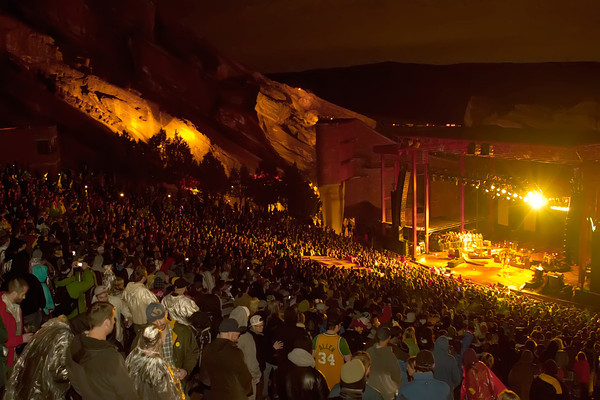 GW: You’re kidding.Ryan: No, we do that all the time. So, we try to play what people like to hear. And nowadays with social media with Twitter, Facebook, and all that stuff, we’ll ask the fans hey what songs do you want to here at this show and people will send in ten songs they want to hear – and we’ll play at least eight songs out of those ten. We try to tailor our set to really make people hear what they really want to hear. We definitely don’t play the same thing night after night. We’ll pick from a similar pool tour after tour but we’ll always throw some curve balls for ourselves to keep things fresh and also for the crowd. GW: Right. “Top of the World” is your latest album. Tell us about this album and maybe how it’s different from previous albums. Ryan: Every album is different because an album is really like a picture taken – that era of your life, a short video really. It’s just a capturing of where we are at that moment. And so that’s why artists sometimes have really great records and sometimes not as great records because they’re people, they’re human. As an artist, you have to go with the way you’re feeling at that moment. I’m really happy. I think that this is one of our best record to date. We made Top of the World in our own studio in San Diego. We took our time basically. We’ve been touring so consistently year after year after year. It was hard for us to take a year off and just record and focus only on that. We just took our time with it. We had a bunch of friends come in and sit in. We had Don Carlos, Angelo Moore from Fishbone, Chali 2na from Jurassic 5, G. Love from G. Love & Special Sauce and I know I’m missing like ten other people. We had a lot of great friends and artists come and sit in to add their vocals or add their instrumental abilities to the record. It’s really one of my favorite record for that reason. It’s pretty diverse, stylistically. There’s some kind of hip-hop flavor to it, some funk, reggae, and some world beats kind of vibe. It’s diverse musically. It was a lot of fun for us to make. GW: You’ll play some this stuff on your Spring Tour.Ryan: Yeah, we try to play songs from about every record – the really, really old ancient stuff, some the punk rock stuff from the late 90’s to newest song from “Top of the World” to stuff we haven’t released yet that we have been rehearsing in our studio. It’s usually a broad spectrum of repertoire.
GW: You’re kidding.Ryan: No, we do that all the time. So, we try to play what people like to hear. And nowadays with social media with Twitter, Facebook, and all that stuff, we’ll ask the fans hey what songs do you want to here at this show and people will send in ten songs they want to hear – and we’ll play at least eight songs out of those ten. We try to tailor our set to really make people hear what they really want to hear. We definitely don’t play the same thing night after night. We’ll pick from a similar pool tour after tour but we’ll always throw some curve balls for ourselves to keep things fresh and also for the crowd. GW: Right. “Top of the World” is your latest album. Tell us about this album and maybe how it’s different from previous albums. Ryan: Every album is different because an album is really like a picture taken – that era of your life, a short video really. It’s just a capturing of where we are at that moment. And so that’s why artists sometimes have really great records and sometimes not as great records because they’re people, they’re human. As an artist, you have to go with the way you’re feeling at that moment. I’m really happy. I think that this is one of our best record to date. We made Top of the World in our own studio in San Diego. We took our time basically. We’ve been touring so consistently year after year after year. It was hard for us to take a year off and just record and focus only on that. We just took our time with it. We had a bunch of friends come in and sit in. We had Don Carlos, Angelo Moore from Fishbone, Chali 2na from Jurassic 5, G. Love from G. Love & Special Sauce and I know I’m missing like ten other people. We had a lot of great friends and artists come and sit in to add their vocals or add their instrumental abilities to the record. It’s really one of my favorite record for that reason. It’s pretty diverse, stylistically. There’s some kind of hip-hop flavor to it, some funk, reggae, and some world beats kind of vibe. It’s diverse musically. It was a lot of fun for us to make. GW: You’ll play some this stuff on your Spring Tour.Ryan: Yeah, we try to play songs from about every record – the really, really old ancient stuff, some the punk rock stuff from the late 90’s to newest song from “Top of the World” to stuff we haven’t released yet that we have been rehearsing in our studio. It’s usually a broad spectrum of repertoire. 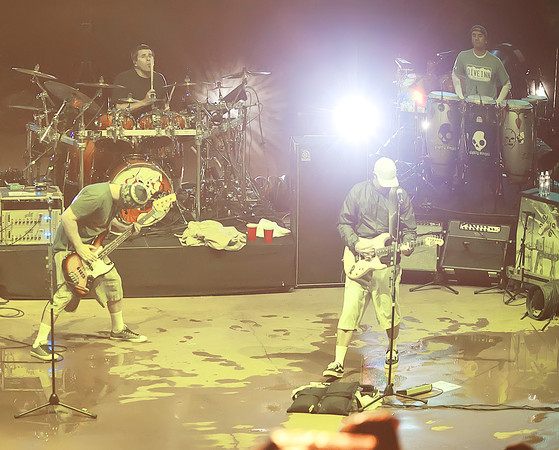 GW: You’re getting ready to end your Spring 2014 (May 2) tour here and starting your Summer 2014 (July 9). Are there differences in the Spring vs Summer tour or is this just giving you guys a break?Ryan: It’s a whole different line-up, a whole different roster of bands. The bands we’re touring with this next leg that ends like you said at the end of the first week of May – it’s a different support act. We have Mariachi El Bronx from Los Angeles. They’re a phenomenal group. It’s actually a mariachi band but they have a punk edge to them. They also have a punk band called the Bronx so they’re basically an extension of that. There is also a hip-hop duo called The Grouch & Eli that are great out of Hawaii and LA as well. So yeah, that’s going to be this coming leg. The summer thing is a whole different line up. There are about four or five bands through the summer that we’ll be touring with on the west and east coasts and a couple of midwest states as well. NOFX will be on that and Cypress Hills doing some dates. There’s a bunch of other bands that are also on those shows. GW: That’ll be great for the fans. Well, I appreciate the time giving us insight into Slightly Stoopid. We have better idea what you’re all about. Before I close this out Ryan, I like to leave the last word to you, anything on your mind, anything for the fans.Ryan: Yeah, I just want to say thanks first of all to you for interviewing me – that’s cool being part of it. Also, just to the fans for the support. I know it sounds cliché, but seriously without the fans, we wouldn’t have jobs. We always try to tip our hat to people who come out to support the live shows, buy the albums, buy the t-shirts because that helps us continue to do what we love to do. It’s a relationship we definitely appreciate. GW: Thanks for that Ryan. April 19, you’ll be at Red Rocks. We look forward to that, the remaining tour and the start of the Summer session. We appreciate it again for your time – it’s very gracious of you. Ryan: No problem. Thanks for having me.
GW: You’re getting ready to end your Spring 2014 (May 2) tour here and starting your Summer 2014 (July 9). Are there differences in the Spring vs Summer tour or is this just giving you guys a break?Ryan: It’s a whole different line-up, a whole different roster of bands. The bands we’re touring with this next leg that ends like you said at the end of the first week of May – it’s a different support act. We have Mariachi El Bronx from Los Angeles. They’re a phenomenal group. It’s actually a mariachi band but they have a punk edge to them. They also have a punk band called the Bronx so they’re basically an extension of that. There is also a hip-hop duo called The Grouch & Eli that are great out of Hawaii and LA as well. So yeah, that’s going to be this coming leg. The summer thing is a whole different line up. There are about four or five bands through the summer that we’ll be touring with on the west and east coasts and a couple of midwest states as well. NOFX will be on that and Cypress Hills doing some dates. There’s a bunch of other bands that are also on those shows. GW: That’ll be great for the fans. Well, I appreciate the time giving us insight into Slightly Stoopid. We have better idea what you’re all about. Before I close this out Ryan, I like to leave the last word to you, anything on your mind, anything for the fans.Ryan: Yeah, I just want to say thanks first of all to you for interviewing me – that’s cool being part of it. Also, just to the fans for the support. I know it sounds cliché, but seriously without the fans, we wouldn’t have jobs. We always try to tip our hat to people who come out to support the live shows, buy the albums, buy the t-shirts because that helps us continue to do what we love to do. It’s a relationship we definitely appreciate. GW: Thanks for that Ryan. April 19, you’ll be at Red Rocks. We look forward to that, the remaining tour and the start of the Summer session. We appreciate it again for your time – it’s very gracious of you. Ryan: No problem. Thanks for having me. 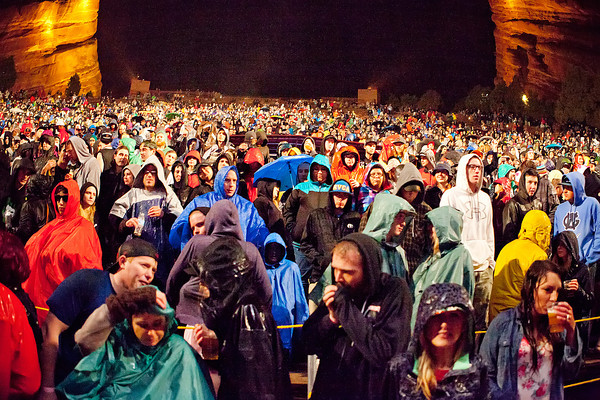 GW: We’ll see you soon.Ryan: Absolutely.
GW: We’ll see you soon.Ryan: Absolutely.
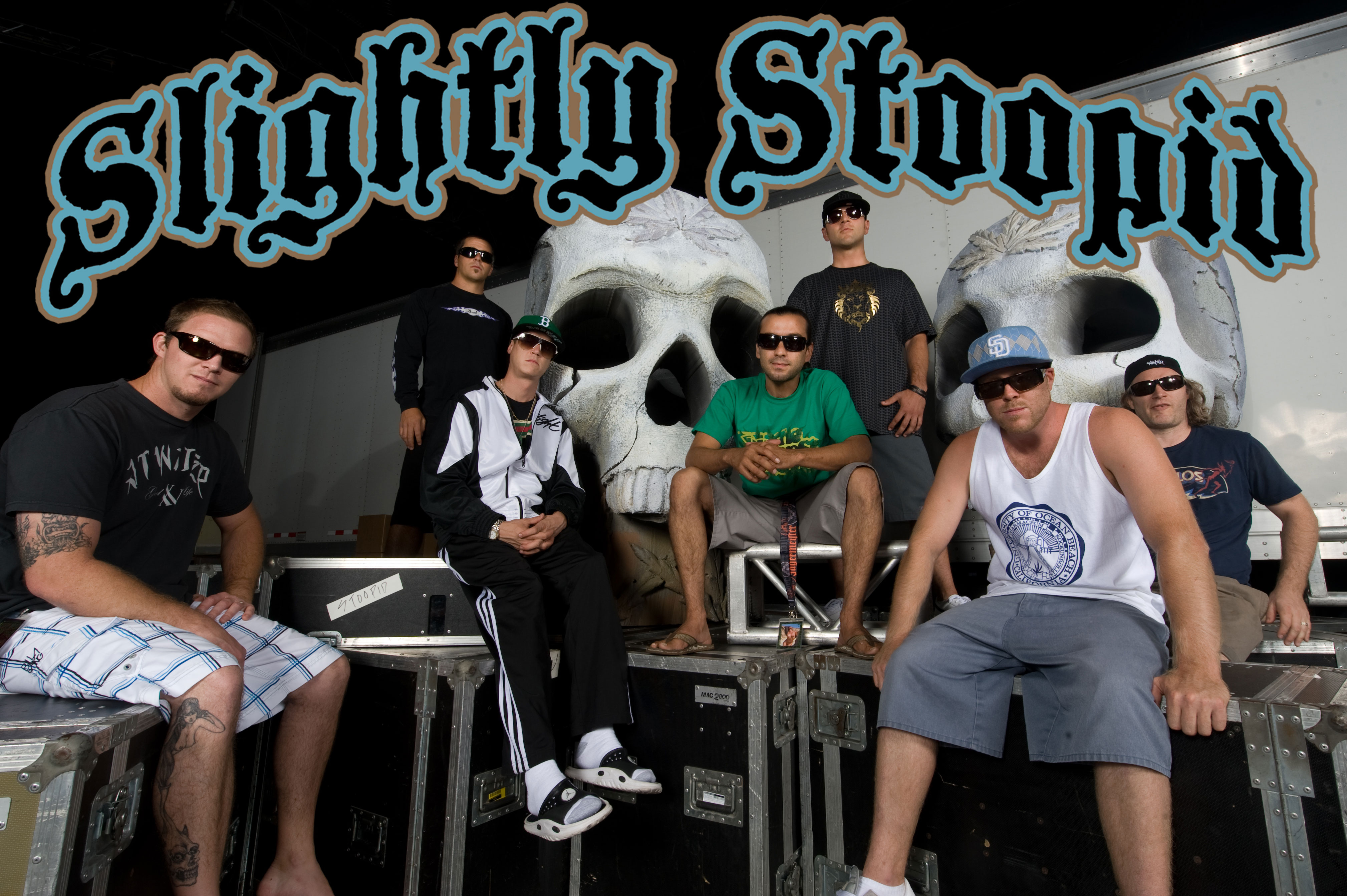
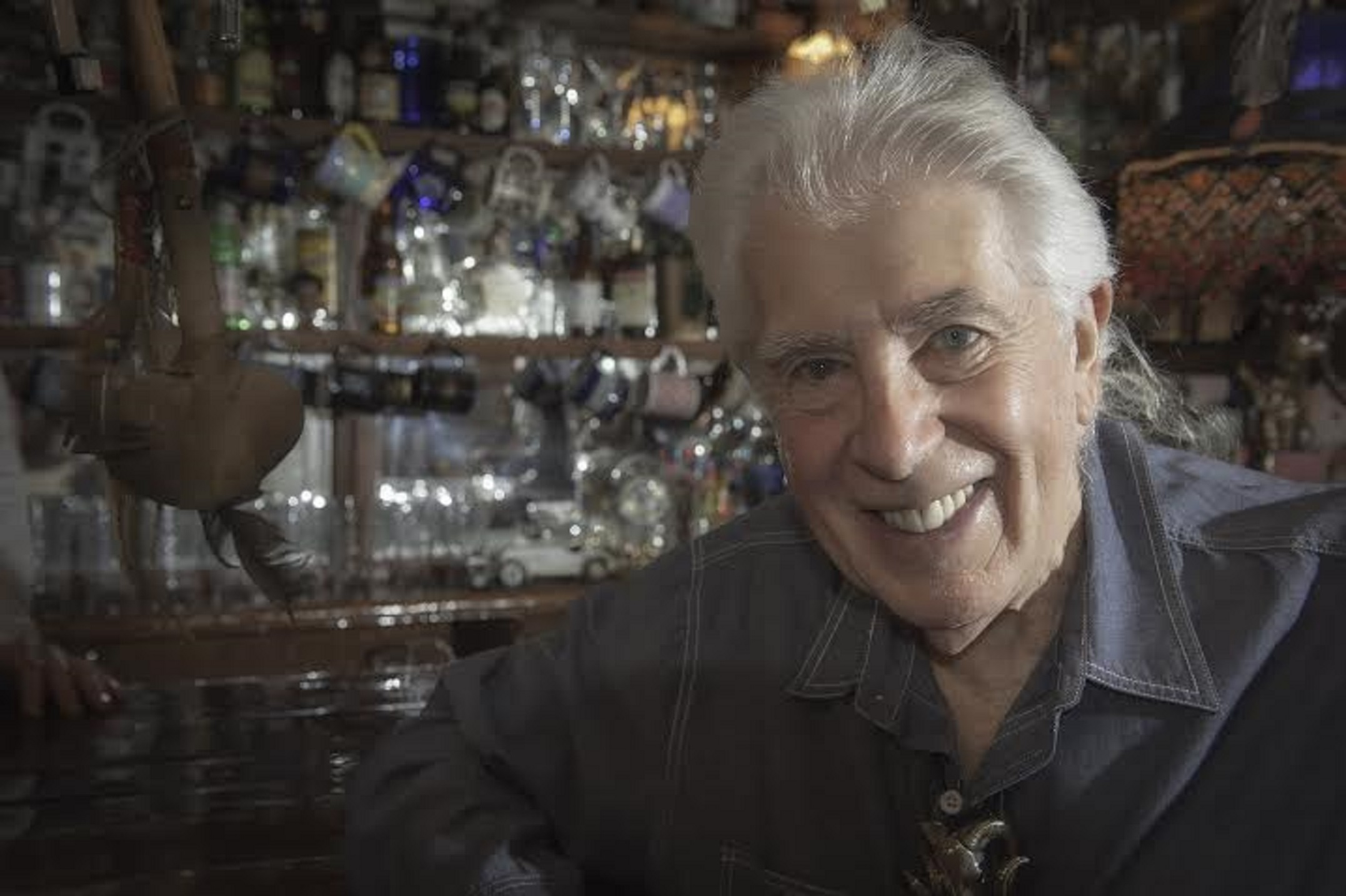
John Mayall is a bedrock of the blues music history. Regarded as “The Godfather of British Blues”, John toured and led his band, John Mayall & The Bluesbreakers, during a pivotal, blues music movement in London during the 1960’s – about the time of The British Invasion. John Mayall influenced a number of musical greats of our time before they moved onto such bands/solo acts as the Rolling Stones, Fleetwood Mac and Eric Clapton. Today, John Mayall, a must-see musical gem, is still selling out concert halls, releasing his latest album A Special Life, and touring around the globe in 2014 for his 80th Birthday Celebration Tour. As John sets for the US leg for his world tour, Grateful Web briefly talks to John about his legendary music history, the blues music relevancy today and the elusive Rock & Roll Hall of Fame induction.
GW: Hello John. This is Vinh from Grateful Web. How are you?
John: Fine. Thank you.
GW: Thanks for taking the time to be with us today. Let me start this off. It’s well known you started a blues band, John Mayall & The Bluesbreakers, in the 1960’s in the United Kingdom (UK). Some of the great talents of our time started early in their career in your band. I’ll name a few of them. Peter Green, Mick Fleetwood, John McVie all of whom went on to form Fleetwood Mac and all inducted into the Rock & Roll (R&R) Hall of Fame; Mick Taylor went on with the Rolling Stones and also inducted into the R&R Hall of Fame. Of course, there’s a guy name Eric Clapton and Jack Bruce who both went on to form Cream and also inducted into the R&R Hall of Fame. What comes to your mind when you hear these names and your influence to them?
John: Well as a bandleader, I hire musician who I think can best represent what I’m playing. So, it’s quite simple for me to get a band together and to make sure that everybody is free to explore their own potential.
GW: You give them leeway to express their talent.
John: It’s not uncommon with jazz. A band plays the songs but it’s different every night with a different interpretation.
GW: In the UK 1960’s, an influential period in music history, the Bluesbreakers was a significant part of the blues movement. Your band, John Mayall & The Bluesbreakers, released an amazing 14 albums between 1965 – 1969. Your album Blues Breakers with Eric Clapton had been quoted as perhaps the best British blues album ever cut. What’s your thought on this historic album?
John: Well, it is historic; now, that the passage of time has proved that it was kind of a groundbreaking album. So, I’m very proud of it having the longevity that it has.
GW: In this same 1960’s period, UK bands affected by blues music sprouted during this time. I’ll mentioned a few: The Yardbirds with Jeff Beck, Jimmy Page, & Eric Clapton, later on Led Zepplin, Rolling Stones, Fleetwood Mac, Jeff Beck Group with Rod Stewart, etc. Can you describe what this period was like for you?
John: It was a very exciting period. Everybody I think, regardless of what city they came from, most of us all moved down to London and used that as the central point from which we branched out to do our gigs. It was a very strong family feeling because we were all playing the same circuit.
GW: You were all intimately familiar with one another.
John: Yes, of course.
GW: In the 1969-1970 time frame, you moved to the US. Can you describe your transition to the US and how that affected your music?
John: Well, I don’t think it affected the music in the main sense. The only difference was I had access to American musicians, which I wouldn’t have in England. So, that was the start of using American Musicians.
GW: Your band had been called a rotational band with musicians coming in and out. Now, you’re in the US forming another band. How do you handle such frequent changes in your band.
John: I think this is a terrible mistake that has kind of gone publicity over the years. In actual fact, the changes in my band happen so infrequently – that this is the complete opposite. It’s only in the early, I think, three or four years in England where there were constant changes. But ever since then, my band has been very very constant. The current band, of course, has been together going on six years now. And prior to that, the band that Buddy Whittington was in, he was with me for 15 years. Before that, Coco Montoya was ten years. It’s a complete opposite really of what you’re talking about.
GW: I guess it’s the number of years you’ve been around and the number of great talents to which you’ve been associated with – talents such as Buddy Guy, Albert King, Junior Wells, Etta James. Do you remember what the experience was like working with these folks?
John: Buddy Guy sat in with us a couple of times. All the others you just mentioned were passing gigs, really. But, they were never in my band.
GW: In your time in America, say in the 1970’s, and I’m gathering these numbers from your website, there were 15 albums released in the 1970’s, 7 albums in the 1980’s, 9 albums in the 1990’s, in the 2000’s, 18 albums to include live recordings – that’s a lot of work.
John: I guess so if you look at it that way but I don’t recall it that often. In recent years, there has been a bit of a gap with a major record company, which was Eagle… We’re not with them anymore. With the latest album, we’re going with another record label.
GW: How is that (the new record label) working out?
John: It’s fine. The first release of this year is coming out next week I think.
GW: During this American run, you released an album in honor of Freddie King, you’ve collaborated with John Lee Hooker, you have two documentaries, one entitled the Godfather of British Blues, your album Wake Up Call was Grammy nominated, and your album Stories debuted #1 in the Billboards Blues chart. What do you make of all the success?
John: I wouldn’t call it success considering that I made over 50 original albums and I never had a Grammy. I never had any chart success. So, it’s really the opposite of what you’re talking about. My records, I haven’t been recognized in the Hall of Fame or anything like that. A lot of other people have.
GW: I think you should be in the Hall of Fame.
John: Well, We’ll just have to wait and see.
GW: In my mind, this is a complete career. Do you think the recognition, the Grammy, and the Hall of Fame would complete your career?
John: It wouldn’t complete it; it would add to it. Fortunately, we have a great fan base. Everywhere we play, we have a full house. You can’t get much better than that. We do have the freedom to play differently every night. We’re not tied down to anything. Lot of major groups are tied down and they have to play the songs that are most successful…
GW: In the 2008 time frame, you supposedly took an indefinite break. What did you do during that period?
John: Well, it was not very long actually. It was probably only about three weeks because as soon as I disbanded the Bluesbreakers forever – that name is discontinued permanently – the record company came to me wanting a new album. So, I put a blues band together and it’s been together ever since. Rocky Athas is the guitar player, Greg Rzab is on bass guitar, and Jay Davenport is on drums. So, we’re rolling right along. Of course, they’re featured on the latest album that comes out next week.
GW: You didn’t stay away long so that’s a great thing for the fans. And speaking of your new album John, congratulations. That new album I believe is scheduled to come out May 13, entitled A Special Life. Your website is calling this one of your best albums. Can you tell us a little bit about this album?
John: It’s more a straight-ahead blues album as regard for material. The energy, of course, is the same. We’ve been together now like I said for over five years. The combustion between all four of us is pretty amazing so we managed to capture that on the new album. We chose this material, a lot of blues originals by some of my heroes – people like Jimmy Rogers and a whole slew of blues stuff. It’s a great honoring of the blues
GW: I think your new band wrote some songs?
John: Yes, they collaborated together on one song. Yes.
GW: You mentioned once that you like all your albums because they provide a diary into your personal life and your emotions in that period. How does this new album reflects what’s going on with you now.
John: The material on the album is what we’re playing live so we’re having a great deal of reaction from the audience. We just finished the 60 days tour of Europe. Everywhere we played, we’ve been integrating the new songs onto our set list. They’ve been wonderfully received. It’s a great thrill to know the stuff that is on the record now works very well on live performance.
GW: Fantastic. Speaking of your touring schedule, it looks like you just had a busy schedule this past April.
John: The tour schedule for this year is a little bit more than usual. Usually, we do about 100 shows every year but this year it’s already up to 140. I think something must be happening.
GW: Yeah posted on your website, you’re finishing a UK April 2014 tour, then starting a North American tour May 2014, going up to Canada in July, back to the US for late July, August & September and then returning to the UK in October & November. You’re like the Ironman of the blues.
John: Ha ha, I guess you’ve listed just about everything, haven’t you?
GW: What’s the experience like touring now versus touring in the 1960’s?
John: It’s different. In the early days, all the bands played seven nights a week but there were enough clubs about so you can keep busy like that. They were all within driving distance of London. That’s what everybody did – seven or eight gigs a week and sometimes nine gigs a week, doing doubles. You know, that’s the way it was.
GW: The hotels were nice back then?
John: No, we didn’t stay in hotels. We drive to the gigs because everything was within driving distance to London.
GW: Right. There’s no question the importance of blues to music history and the Bluesbreakers contribution to blues music. In terms of popularity and appeal, what would you say is the status of the blues today and maybe how relevant is it today?
John: Well, blues in its best sense is always a reflection of what’s going on in the world around us. I think that’s the main thing that people recognize when they listen to music. They hear songs, which touch upon subject common to all of us. Through the lyrics and the music itself, it touches people.
GW: In that regard, the blues is very relevant. That’s all I have today John. I want to thank you for being here with us. I like to give you the last word. If I missed anything or you have any words for your fans, please feel free.
John: Well, I think it’s been a very comprehensive interview. You covered just about everything – lots of things I can barely remember. It’s nice to know it’s all out there and people are listening. So, it’s great.
GW: It was great having you. Thank you John.
John: Thank you too. Bye Bye.
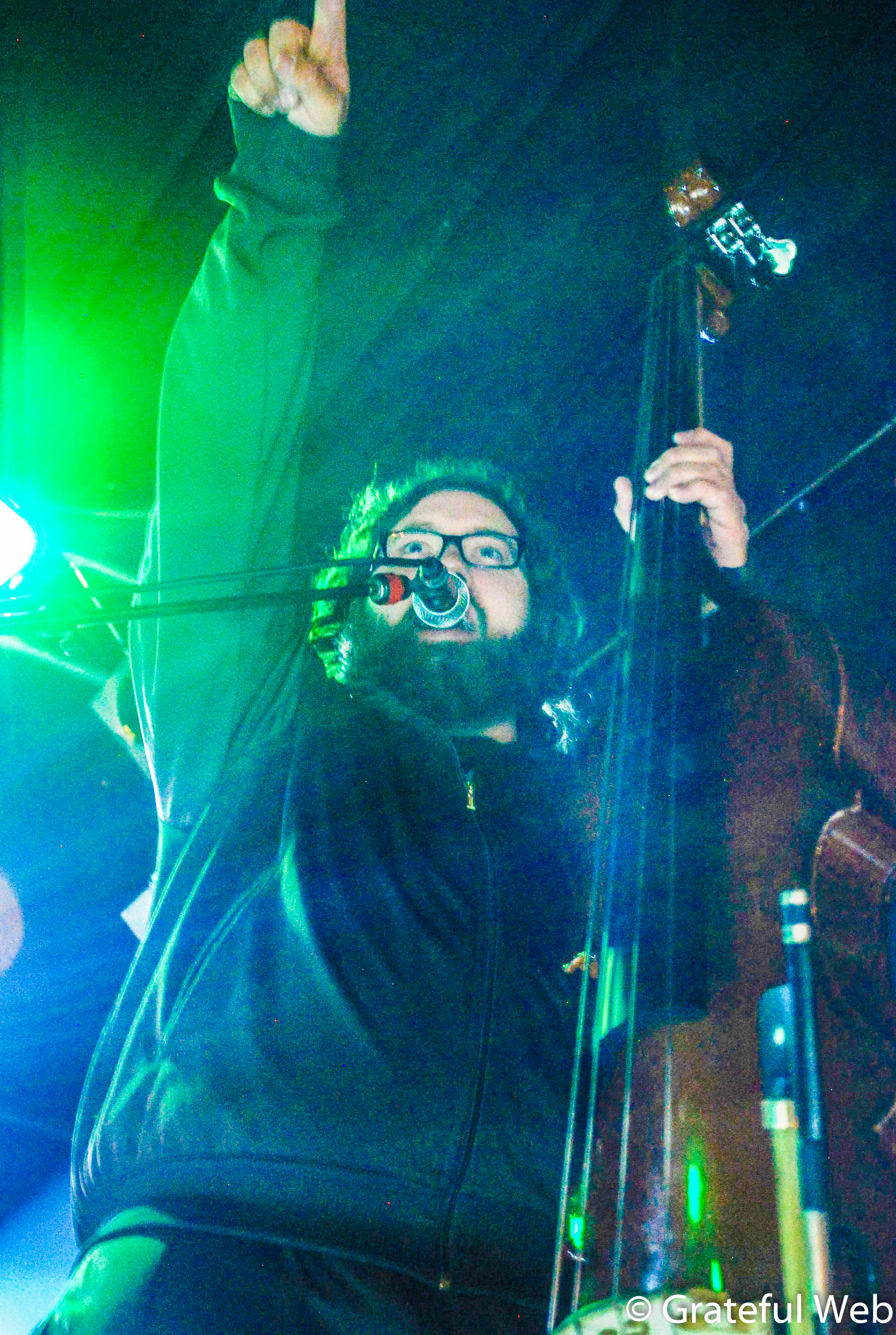
Head for the Hills will perform at Pickin’ on the Poudre at the Mishawaka Amphitheatre to kick off the outdoor concert series on Saturday May 17, 2014. Voted “Best in Bluegrass” by Denver Westword magazine, Head for the Hills needs no introduction in Colorado. Though rooted in bluegrass, the Colorado-based quartet aspires musically well beyond the boundary of the genre’s tradition - just listen to “Never Does” from their latest album Blue Ruin for a dose of their sound. In fact, sample these tracks and you’ll be rocking to them: “Solar Bowling Shoes”, “Blue Ruin”, “Nooks and Crannies”, and “Unchain My Heart”. Their vocal and instrumental harmony is complete bliss. It is no wonder for their presence at the Telluride Bluegrass Festival and their acclaim at the South by Southwest Music Conference and Festival (SxSW). Before they kick off the Mishawaka Summer Series for the 10th year now, Grateful Web talks to Head for the Hills bassist, Matt Loewen.
GW: I’m Vinh Nguyen with Grateful Web joined by Matt Loewen of Head for the Hills. How are you doing today Matt?
Matt: I am doing well. Thank you, thanks for having me on.
GW: Great. I think we were here with you guys back in 2012 -- with Joe. We’re glad to have you guys back. Head for the Hills has a tremendous following especially here in Colorado. From the perspective of new fans coming to hear you for the first time, how would you describe Head for the Hills music?
Matt: Sure. We start with bluegrass. That’s kind of the basis of the band but we really expand way beyond that and bring in strains of music like jazz, rock, modern stuff, more folky stuff, a couple of country kind of tunes, classic kind of stuff. So, we really start with bluegrass and go from there. There’s no real electronic element. There’s electric mandolin sometimes and very rarely is there a drum kit – there is no drums in the band. Other than that, we really involve a lot of different types of music, a lot of different sounds, and things like that, and that’s The Hills sound.
GW: On your website, you mentioned “Newgrass”. How would you describe newgrass?
Matt: Well, I think it ends up being a catch all term, which is fine, for everything within the bluegrass quote unquote…happened after the first and second waive of artists. I guess the way I would think of newgrass is essentially the music of Sam Bush, Bela Fleck, David Grisman, etc - the music that they kind of ran with. They took the sound of Bill Monroe and some other people that came directly after him and kind of morphed it into this thing that we and other artists, like us, are kind of continuing and still bringing in things that are current, etc.
GW: I noticed some of your influences [from Facebook “Artists We Also Like”: John Hartford, David Grisman, Bill Monroe, Pink Floyd, The Infamous Stringdusters, etc].
Matt: Yeah, definitely within the bluegrass thing. None of us grew up in what you think of as bluegrass quote unquote houses or anything like that. We weren’t going to jams as three years old or anything. So, we came to the music through the people that I mentioned – the newgrass guys and through newer artists too. Of course the deeper you go, you go back and get into all those other guys too. But, they were some of the first ones that we were really inspired by and continue to be inspired by all those folks. And everybody like I said that came after, Chris Healy and all those guys too.
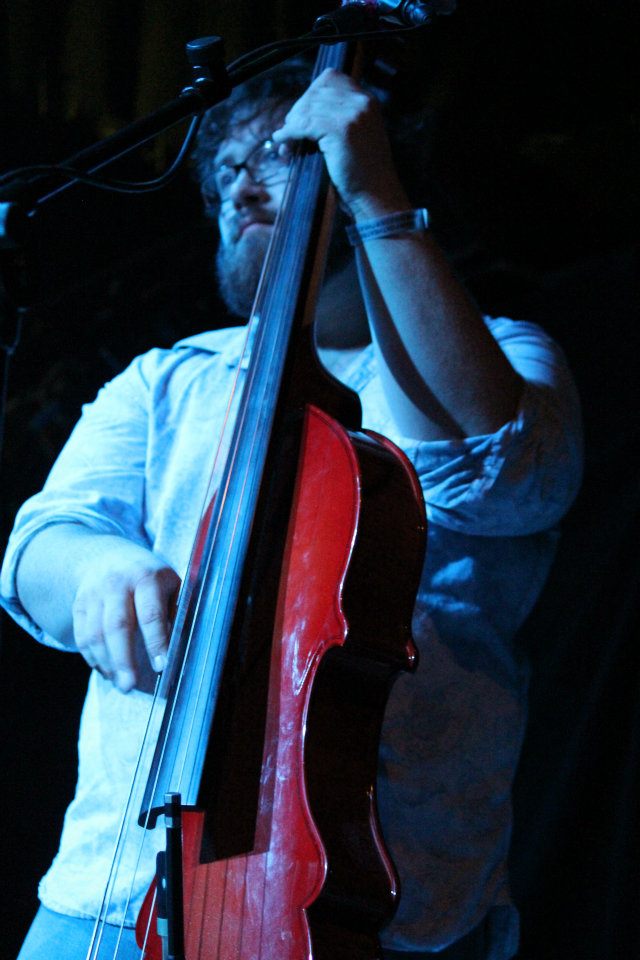
GW: Your latest album is Blue Ruin. Tell us about that album.
Matt: You know, we released that last year. It’s our third studio record. We did a live album so it’s our fourth release. It’s called Blue Ruin. The way we kind of thought about it and the way it turned out it’s really like the best expression of what Head for the Hills is all about in terms of synthesizing these different elements and blending them in with bluegrass music instrumentation. The record involves a number of different styles of music within the bluegrass thing. There’s definitely a kind of a more rock-oriented tune on there. There’s country stuff. There’s jazzy stuff. It’s wide-ranging in that but still…Head for the Hills thing. We recorded it outside of Fort Collins here at Swingfingers Studios. We got Andy Hall from “The Stringdusters” playing on it. We got Gabe Mervine from The Motet playing on a track. We got our frequent collaborator Mr. James Thomas playing some Rhodes Electric Piano on some songs. Placed a couple of other people on there. It’s something we’re really proud of. We got it available additionally, obviously, on CD. We also got a 180 gram vinyl release of that.
GW: Listening to that the other night, it’s great! I’ll point out one track that attracted me, “Priscilla the Chinchilla”. Is that right, Priscilla the Chinchilla?
Matt: Yep, yep.
GW: It’s an instrumental track. What a great track that would be to hear live! Tell us about that one and where you got the name?
Matt: Sure, that’s the one we got Andy Hall playing dobro. Where the name from was just one of those – Mike the mandolin player wrote the tune – that we haven’t really come up with a name. We frequently have trouble naming songs. In fact, I don’t know anyone who doesn’t have trouble naming songs – I like to meet that person. Anyway, we were just kind of driving as any touring musician does. You spend really most of your time travelling in a van or bus, whatever it is – definitely a van for us. We were just brainstorming and chewing the fat, if you will, just throwing things back and forth in the front seat of the van. I think that came up as kind of a silly idea that kind of fit the tone of the song. There’s definitely a history or trend in this style of music where you name the instrumental songs something maybe a little tongue-in-cheek. It’s kind of an opportunity to be playful and funny.
GW: I just love saying “Priscilla the Chinchilla”.
Matt: Oh, yeah.
GW: What’s the band creative process?

Matt: It varies. I would say the primary songwriters -- we all write as well -- Adam and Joe end up writing more. We all write individually but we do it collectively as well. I say a general overview of half of those creative process is people coming up with ideas on their own and then bringing them to the group – anywhere from being a very small, not developed idea to something that’s almost completely done. Anywhere within the range, bring it to the group. Sometimes, we just learn the song that the person had written and sometimes we arrange it as a group. Sometimes, we come up with something, if there is something that maybe missing or it’s not quite done yet, we’ll come up with a bridge. Or, do whatever to finish the song -- so, a little bit of everything. I know that Adam and Joe – Joe in particular – will write while he’s driving. He’ll being doing weird…while he’s driving. I don’t know how he does that. I couldn’t do that. But, he’s able to do that in his head. Joe has a hip hop group called Whiskey Blanket. That’s a big part his – something he has always done.
GW: That’s great. I read you guys are voted in Westword “Best in bluegrass”. I think this is a reader’s poll. Coming from the fans, how does that make you guys feel?
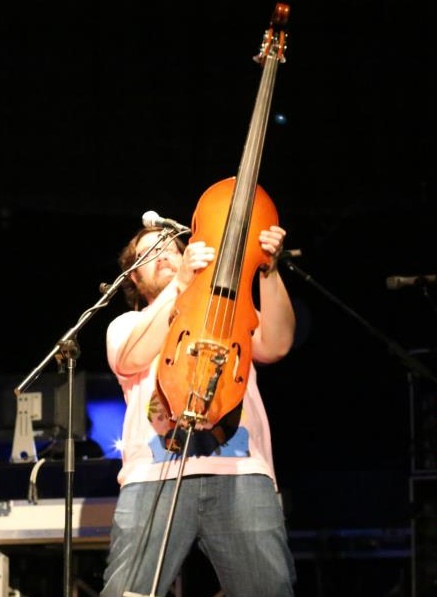
Matt: We love it. It’s been great. We’ve been vote into that position several years now by them. I think they’re just probably concluding the voting for this year’s thing. It’s always been honorary -- the fact that people take the time to vote for us. We don’t always consider ourselves…the band starts in bluegrass. That’s true but we’ve never been a traditional quote unquote band at all. We also never have been like the people that are “the” best players of Bill Monroe’s style of bluegrass. Our strong point has never been to do that. The fact that people think that we’re a good enough bluegrass band to be voted as such is always really nice.
GW: Does that add pressure?
Matt: Not really. I think it’s been two or three years that they’ve done that. At this point, I just keep waiting for them to disqualify us. We’ve won a few times. No pressure thankfully, we just feel grateful that people are paying attention.
GW: Where are some of your favorite venues to play?
Matt: Got one of them right in the backyard here at The Mishawaka Amphitheater in Poudre Canyon outside of Fort Collins. That’s definitely a favorite for us and is kind of a home for the band. On May 17, we’ll be opening the outside stage for the tenth year in a row out there at the Mishawaka. So, that’s kind of crazy. Makes everybody feels kind of old. We’re really excited about that. Like I said ten years, it’s kind of a cool anniversary and that’s always been kind of a home for the band. So, that’s the one I would say, the Mishawaka Amphitheater.
GW: That’s great.
Matt: Oh, it’s great. The stage at Telluride, where they have the Telluride Bluegrass Festival and all the other things musically they do there in the town park – that’s a really amazing place to see and to play as is The Planet Bluegrass Ranch there in Lyons. In Portland, love Mississippi Studios. That’s a really nice room and a cool place to see music. I know some of your Grateful Web people live in Eugene and Wow Hall is great place to play in Eugene. So, those are a few.
GW: You have a string of concerts lined up here. The next one is May 17 at The Mishawaka as you mentioned in Colorado. I think you’ll play 3-4 times in Colorado, correct?
Matt: Yeah, I haven’t look – I don’t have it in front of me. We got a number of good things in Colorado. The thing at the Mishawaka on May 17, we’re doing the RapidGrass Bluegrass Festival later this summer, which will be really cool. The line up on that is spectacular. It’s just really amazing -- acoustic, for the most part the music there. That’s another one we’re looking forward to. We’ll be hitting the Botanical Gardens I think coming up in July. Yeah, lots of good stuff in Colorado.
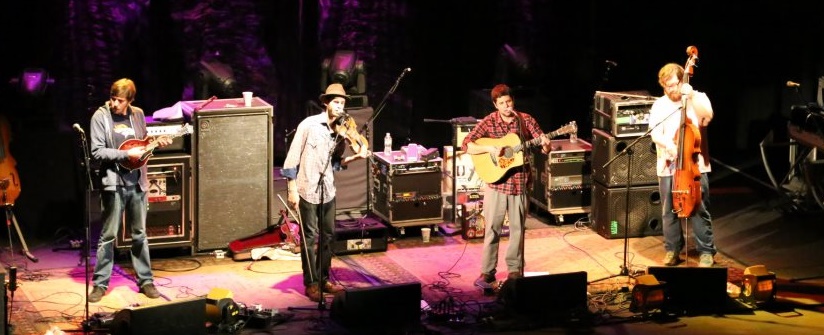
GW: Yeah, come out to see Head for the Hills. That’s all I have Matt. If you have any last words or anything to add, please do.
Matt: Thanks for having me on. I appreciated it. You can find out about Head for the Hills at www.headforthehillsmusic.com - that’s our website. We’re on all other relevant inter-web medias. Come see this summer. We’ll be all around the states. Come check us out. Look forward to seeing you guys. Thanks.
GW: Thanks Matt. It was a pleasure. We look forward to seeing you guys out there.
Matt: All right, we’ll see you soon. Thanks!
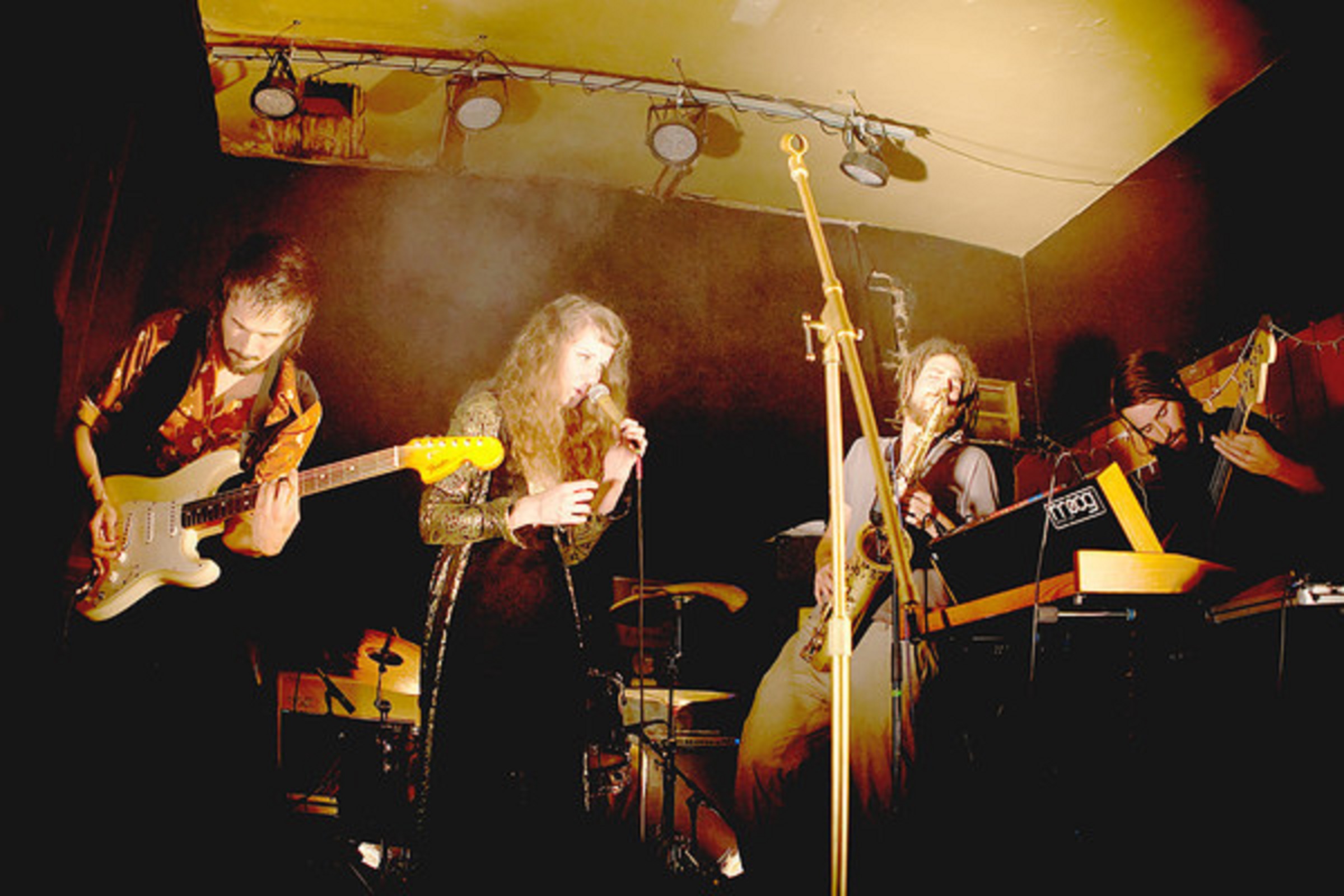
Moon Honey, the New Orleans born quartet, is celebrating the release of their first full album, Hand-Painted Dream Photographs, with the completion of their US west coast tour. Moon Honey’s love of the symphony and poetry is evident in the beautiful lyrics throughout this record and in the orchestrated tracks. Violinists, harpists, horns and choirs have sat in with the band. Make no mistake – there is rock element in this record especially with members rooted in progressive rock and the guitarist’s influence by Jimi Hendrix. Though ostensibly progressive and complex, the record’s sound, in addition, is fantastically comforting and nostalgic. Watch the video “The Ship” and listen to “The Two Fridas” – both from their album listed in Moon Honey’s website: http://moonhoneyband.com/videos. In the interview below, Grateful Web (GW) sits down with guitarist and vocals, Andrew Martin and Jessica Ramsey, at one their west coast tour stops in Denver – with predicted, heavy snowstorm looming in the area.
GW: So, how was the drive to Denver, Colorado?
Andrew: It was so much better than the last time we were in Denver.
Jessica: [laughing]
GW: Why is that?
Andrew: We went on a west coast tour [in Denver previously] and we’re from Louisiana. So, we don’t know what snow is -- what snowy roads are. The last time it took us 17 hours to get to Denver and our show ending up being cancelled. So, the fact that we’re actually here and we’re playing tonight…
GW: I’m glad you guys made it. There’s bad weather coming in.
Andrew: Yeah, we’re driving out over-night.
GW: Get out of here as fast as you can.
Andrew: Yes, that’s what I heard – two feet of snow.
Jessica: Yeah, we can’t drive in that.
Andrew: We were spinning around in the van on ice – ran into people, cars, and the median. We were just snow amateurs.
GW: Yeah, you need an all-wheel drive or a front wheel drive here.
Andrew: Yes, we don’t know about that.
GW: Well, let me start from the beginning. How did you guys start out?

Andrew: Jermaine, the drummer, and I had been playing together from an early age. We both became obsessed with progressive rock: Yes, King Crimson, Mahavishnu Orchestra. Then, there is the psychedelic side. I’ve always been obsessed with Jimi Hendrix. We just made this maximal music. We were trying to blow our mind along with everybody else’s and see how much we can put in one space.
GW: Right, like in decibels?
Andrew: Yes, that too. We were very naked. We were using music to cover ourselves up because we didn’t have a singer. We didn’t have anything at this point – it was just me and Jermaine.
GW: The drummer and…
Andrew: And me, a guitar player.
GW: Did anybody sing?
Andrew: When we wrote our first album, no one sang.
Jessica: When I met them, they had a four track EP that they had already recorded that I ended up singing over.
GW: We wrote the most complex progressive rock album. I can’t even listen to it. It’s so complicated. Jessica, who never sang a word in her life, decides that she can sing over this thing. We’ve been trying out singers all around town.
Jessica: No, I just was coming over to paint your guitar cabinet.
GW: Yeah, I heard about that [from Moon Honey’s biography where Jessica ended trying out for the band].
Andrew: Yes, she was coming over to paint my guitar amplifier. I asked if she could sing and she was nervous. She brings out this book of poetry and she just starts convulsing over the music. I was like this is so absurd.
GW: So, Jessica had no singing background at all.
Andrew: None.
GW: That’s amazing. So, is your background poetry, literature, the arts…?
Jessica: I was in school for fine arts. Yeah, that’s the way I approached it.
Andrew: That’s why it was her lack of experience and the lack of knowledge that the way music should work that allowed her to break every single boundary in the music, which was what we were trying to do. None of us knew what music theory is – anything like that. So, it was a very freeing experience to hear this girl in her most…
Jessica: raw (laughing)
Andrew: Raw form. It’s the most human…
GW: Right. When you say “break the boundary”, do you mean not popular stuff?
Andrew: There were no rules. There were just no – I don’t know if you ever hear our album [Moon Honey’s latest album, Hand-Painted Dream Photographs].
GW: Yes, I listen to most of it. I was very impressed. There were no patterns.
Andrew: No, there’s nothing.
GW: I love the pauses and the different tempos within the song – fantastic.

Jessica. It’s nice.
Andrew: Like I said, it was already written and recorded before she came to it. It was already done and she turned it into another thing.
GW: It was a four track EP [Moon Honey’s first EP, Lemon Heart Opera] and you recorded the vocals over it.
Andrew: Yes. And then, she just became like this weird storyteller – a Disney narrator that kind of blew all of our minds I guess.
GW: I hear you guys have a love for the orchestra?
Andrew: We became really great friends with a guy name Dave Hinson, who kind of turned into our mentor. He plays in the Baton Rouge Symphony Orchestra. He started bringing his symphony crowd around us. We started exploring Debussy, Shastakovich and all these thing. As a rock-n-roll child, you don’t know exists. And, that music is way more complex than any…of The Who albums you can buy.
Jessica: We were getting --I wouldn’t say criticism-- people saying your songs are too long, your songs are too complex, your songs are too this and that. Then, you go to the orchestra and you can see these movements where people sit still for twenty minutes.
Andrew: It’s the most patient music ever. And, they’re taking you into worlds and it’s never ending. These people are doing this hundreds of years ago. Why can’t we do that in 2014? So, we just got inspire to go in that direction of orchestrating everything and adding instruments. I started to get away from the progressive rock thing. And, move to more layering and more accessible ways of convincing people that they should like our songs.
GW: How is that different from progressive rock?
Andrew: I guess it’s not.
Jessica: Yeah, I guess anything can be progressive.
GW: So, did you bring some of that sound -- the orchestra – into the new album?
Andrew: Definitely, we had cello players, violin, viola, the whole nine yards.
Jessica: Saxophone
Andrew: Flute, saxophone – yes. When we play in Baton Rouge, we have all those things with us. Obviously, we can’t bring those musicians on the road.
GW: I listened to “The Ship” [from their LP Hand-Painted Dream Photographs] on YouTube.
Andrew: Oh yeah.
GW: Man! I think you guys had a violin player on there. You had a three piece – I guess choir.
Jessica: Yes.
Andrew: The last show we did a full horn section and strings. We had a harp player.
Jessica: That was fun.
Andrew: I think we’re moving kind of more…slowly back. If you’re a Rock & Roll band, you turn back to the classics.
Jessica: Oh yeah, song crafting, ballads.
Andrew: Song crafting. And it wasn’t until last year, I realized how good bands like the Rolling Stones, Joni Mitchell were at writing songs. It kind of made me want to get away from the constant changing of…seven minutes of just hectic chaos. And, it kind of gives me something --- it gives people something -- to attach to, to attach themselves to.
GW: So, is it maybe more for the fans to latch onto or is it more for you guys?
Andrew: I think it’s more for myself to latch onto. It gets exhausting after a while. You can’t go to sleep to that music.
Jessica: It’s also just what’s coming out of me right now.
Andrew: [Looking at Jessica] I guess talk about your words. Once we found out Jessica could sing…
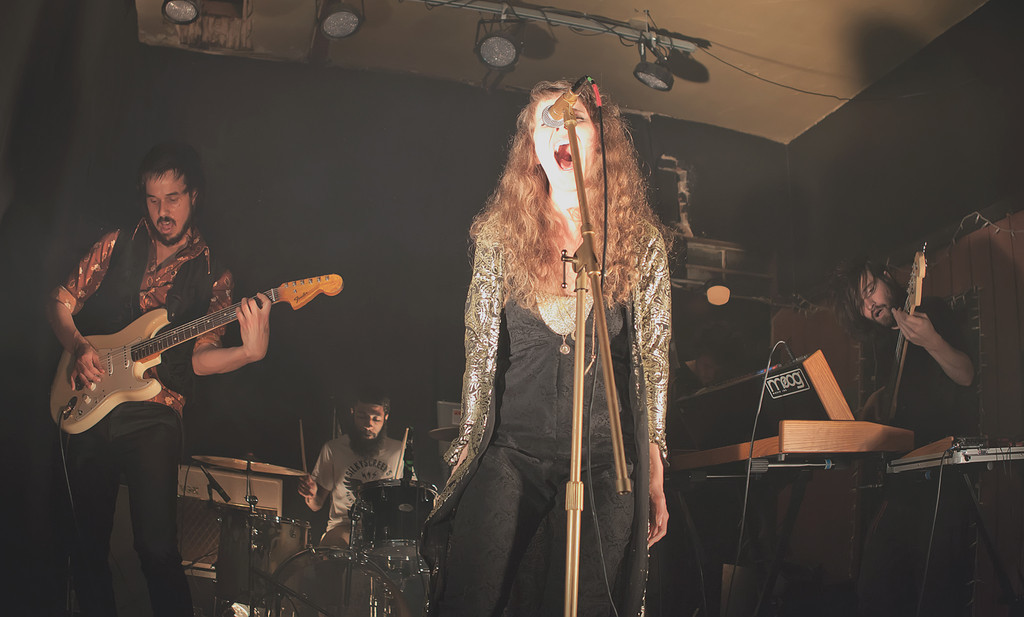
GW: That’s one of the things I wanted to bring up. You can pull out any track on the album - the lyrics have a lot of depth. Is that your lyrics?
Jessica: Yes
GW: I’ll read an excerpt from a track [excerpt from “The Ship” track]:
i’m done with death
i paid my debts
i did my best
decorating a wreck
but this is not my fantasy
weaving tinsel through debris
sugar can’t grow
from seeds sown salty
in the sea
brought by wind and beast
i refuse to sink
GW: You’re album is filled with this. Thanks for publishing the lyrics on your website (http://moonhoneyband.com/lyrics). What inspires you?
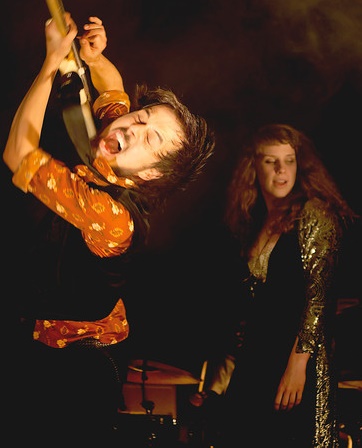
Jessica: What inspires me? Well, those are all stories. Really, they’re personal. That song was actually about a car ride that we had together and there was some argument about music. We hit a rabbit.
Andrew: Which we’re both vegans.
GW: Oh, no.
Andrew: So, there’s a certain death that takes you over when you’re the one that…
Jessica: Well, yeah. But suddenly, everything is quiet. It seems so silly that you weren’t paying attention and you were fighting. And, I can relate that with so many things that has happen to me. So, that’s where that song comes from. I feel like that’s what most of them are like. I love poetry. E. Cummings is my favorite. I’m really inspired by people like Joanna Newsom and Joni Mitchell. I think they’re amazing lyricists.
Andrew: What’s funny is that she didn’t know who those people were when she started with this band.
Jessica: A few people kept saying you sound like Joanna Newsom. I looked her up and was like whoa! I love it.
Andrew: I guess the more, the better. The more she developed at lyricism, I was like whoa! I need to back off. We don’t need to play our instruments this loud, this neurotically. There’s a force to be reckon with in front of our band. And, we don’t need to be playing swords with each other.
GW: There’s a balance with the vocals.
Andrew: You learn to balance. We learn to balance. I learn how to sit back some.
Jessica: It’s really fun for me because he always writes the music and gives them to me. It’s my job to express what’s going on already. I already have a landscape so I get the mood – and decide what I want to write about.
GW: So, this is the process – the music first, then the lyrics?
Jessica: Sometimes, I write melodies and give them to Andrew.
Andrew: She wrote the melody for the song “Fox At The Aegean” on the album [from the LP Hand-Painted Dream Photographs].
Jessica: But, he’s the virtuoso [laughing].
GW: Does Jermaine and Jeff get into that.
Jessica: Not really. Andrew brings the music. They’ll write the rhythm section.
Andrew: We sort out I guess the tonality and theme of the song before it reaches the band room.
GW: Regarding the description of your sound, I got this quote from Moon Honey’s Facebook (https://www.facebook.com/moonhoneyband):
"You guys sound like Jimi Hendrix with a…"
Jessica: “Disney character for a vocalist." [We’re all chuckling].
GW: Is that a compliment?
Jessica: Yes, totally! That’s our favorite.
Andrew: Well, our favorite review is NPR (National Public Radio). Bob Boilen says [Andrew and Jessica both cites in sync] “cotton candy dipped in peyote”.
GW: I saw that review.
Jessica: A lot of people tells me I sound like Snow White.
Andrew: This guy runs up to me after the show and he just can’t wait to tell me. We’re in San Diego in the store. And he says, “you guys were…that was so amazing…it was like Jimi Hendrix with a Disney character singing”.
GW: It’s cool describing your music -- I read New York Times and NPR’s [description of Moon Honey].
Jessica: Thank you for doing all this research.
GW: Yeah! I had a difficult time with some of the adjectives [in these reviews of Moon Honey].
Jessica and Andrew: “John Pareles” [from New York Times review of Moon Honey]

Jessica: Yeah, it’s intense.
Andrew: That’s rough.
GW: I’m going to tell Mike [GW Publisher/Editor] that I can’t do this – match adjectives for adjectives with these guys.
In your performance, you have film reels, light shows, etc?
Jessica: It’s a maximal album. So when we throw our hometown shows, we just think about everything.
Andrew: Yeah, I mean everything. Our last show, we did a Leonard Cohen cover with a harp player. Unfortunately, we can’t bring that on the road. We have a light show but it’s really difficult playing smaller clubs – to even fit the six of us on stage.
Jessica: We had dancers. We’ve played at the planetarium once. That was awesome.
Andrew: We played with the whole laser light show happening above us at the planetarium.
Jessica: I have a bunch of old projectors and splice up old films I find online. That’s one of our videos.
GW: Which video is that?
Andrew: It’s called “Lady Lazarus” [from their LP Hand-Painted Dream Photographs].
GW: It’s on YouTube?
Andrew: Yes. [http://moonhoneyband.com/videos]
Jessica: It’s kind of a dance party that turns into a narcotic scene.
Andrew: She found all these crazy tapes, spliced all this stuff together…you have to see it.
GW: Ok. What’s a “choreographed dome projection”?
Andrew: That was the planetarium. That was a big, special show. We served this big science theater out in Baton Rouge. That was a big deal for us about a year and a half ago.
GW: Did someone have to run that separately?
Andrew: Yes. We covered Beatles across the universe with stars – kind of cheesy, but sweet.
GW: How was that concert?
Andrew: It was unbelievable.
Jessica: It was really cool – really cool.
GW: Funding and Kickstarter – that video was funny. (https://www.kickstarter.com/projects/223756321/moon-honey-formerly-twin-killers-new-album)
Jessica: Oh, you saw that video [laughing].
GW: What was that experience like?
Jessica: It was definitely a confirmation that people are behind us.
GW: Yes.
Jessica: It’s kind of like blindly -- trying to be open – asking people for their help. That was a beautiful part of…
Andrew: It was a fun experience for us. I think a lot of people have this idea that Kickstarter is – and it is for some people – a thing that you just hand over money to a band. And, they go blow it on something silly.
GW: You guys had almost a business plan on there.
Andrew: We’re not on a label. We’re paying for a publicists ourselves – which is Marisa who I’m sure you contacted. We got the best guy in the United States to master our album. His name is Steve Fallone. He did The Strokes, TV On The Radio, the new Tame Impala, etc.
Jessica: We started the album pre-sale so we’re just paying for the album. I still have a couple of paintings left to finish.
GW: I was just going to ask [about the rewards for funding Kickstarter].
Jessica: Actually, the painting, of course, they’re my own close friends that got them – the ones that are going to get them last. So, everybody else is taken care of.
Andrew: When we were on our last tour if you paid $100, we come to your town and cook for you. So, we had to cook for someone in Dallas.
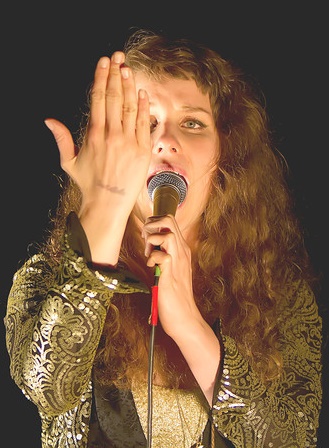
GW: Nice! Who did the cooking?
Jessica: I do.
Andrew: She’s an extraordinary chef.
Jessica: I cooked a couple of meals for some bands. That was fun.
Andrew: That was fun.
GW: I noticed the total cost [to make and promote an album]. I can’t believe the cost! Why didn’t you ask for the full amount?
Jessica: I think I was just so focus on wanting to get the album to people. I don’t know.
Andrew: If we ask for the whole entire – “hey, can you pay off our career?” – it’s kind of like...you know.
Jessica: I just wanted people to feel like they were getting what they paid for.
Andrew: Exactly.
Jessica: Instead of asking, “can you buy my band”? I did put all the costs down because I wanted people to know that if we did reach our goal we’re still going to push it.
GW: At one concert I attended, the band was requesting donation for gas & food for their next gig. Is that something you can relate to?
Andrew: Absolutely. I mean no -- I would never say that on stage. I would not refuse if someone were willing to help.
Jessica: We really don’t make money.
Andrew: We pay for people to hear our music.
Jessica: Yeah. And, getting our gas covered is the number one expense for us. We can always like crash on someone’s floor.
Andrew: Especially, touring the west coast. This is our second time. A lot of bands don’t tour the west coast because it’s the hardest to do.
GW: Because of the distance between?
Andrew: Yeah, we’re driving nine hours a day in a 15 passenger [van] getting nine gallons a mile.
Jessica: And, our last tour we came out with $1000 but it all went into van maintenance.
GW: Wow.
Andrew: There’s no money in it. It’s just passion.
GW: Yeah, I saw the distance between the towns – Kansas, Nebraska, etc.
Jessica: Sometimes, we have nights – last night – where I cooked for everybody just because they let me do it in their house. And, I also had packed 15 frozen, crock- pot meals that we were cooking.
Andrew: Yeah, we pre-frozen a bunch of food before we came out. I just have to pre-fill the ice everyday, put it in the crock-pot…plug it into the van…
GW: You guys are both vegans?
Jessica: Yes, we are – nobody else [in the band].
GW: So, it would be hard to find a place [in a vegan restaurant where this interview took place] like this?
Andrew: Yeah, it’s very difficulty everywhere else besides Nebraska.
Jessica: And Texas.
Andrew: That’s another reason I love the west coast. It’s just like the…
Jessica: The health.
Andrew: Yes. Louisiana is the opposite – it’s how fast can I get fat and drunk.
Jessica: We’re the high maintenance members of the band. Not only are we vegans, we are so particular. We are here and everybody went to get fast food.
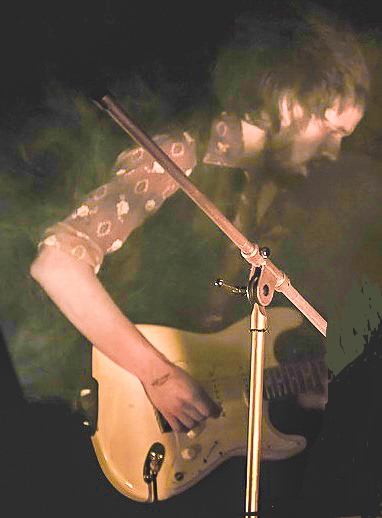
GW: This must be nice then.
Jessica: Yes.
GW: How was South by Southwest (SXSW)?
Jessica: It was great. SXSX is crazy. It’s so nuts!
Andrew: Insane.
Jessica: All these bands.
GW: How does SXSW work? Are you invited?
Andrew: Yes, we got invited. We were an official showcase act this year. The shows were packed. Our official showcase was in a tiny room and people were really into it regardless of technical issues [microphone sound/vocals]. But, there were lot of flaws [technical issues] and people got to see us in our most naked form. We were just barely playing.
GW: Did you get half an hour?
Jessica: Yes, we got a half hour set. We got to see some really amazing bands that we love. And so, it was a great experience.
Andrew: We saw St. Vincent.
Jessica: We got to meet Ann Powers [from NPR].
GW: You got exposure.
Andrew: The week before we were on All Songs Considered. It was good to meet those NPR people. [Regarding SXSW] It was really a learning experience. It was our first time.
Jessica: We’ve played unofficial shows.
Andrew: It couldn’t have gone worst and it couldn’t have gone better.
GW: I hear you guys were well received.
Andrew: Yeah. We played an unofficial show the night before. We played a song and a half because the breaker kept tripping. I ended up just smashing the guitar…and going insane. And, people liked that.
GW: It was part of the act.
Andrew/Jessica: Yeah [laughing].
Andrew: People were like, oh if you’re not going to play, yeah just smash your instrument -- We’ll like that.
GW: You got an album out (LP), Hand-Painted Dream Photographs. It took three years?
Andrew: Probably, three years to write and record.
GW: You state it was a struggle on your website.
Jessica: Oh gosh, yeah.
Andrew: A lot of bands come up with a verse and a chorus – cool, repeat it, done. That’s a song. For us, it’s like how are we going to make this part sound different than this part, this note needs to be different than this part here...
Jessica: And, most bands that don’t have a budget…working like we are in deep…and we recorded it in our home.
Andrew: Then, we were also dealing with one of my idols who mixed it -- Greg Saunier from the band Deerhoof. We were communicating through email and he was mixing our album.
GW: Ok, you would upload it.
Andrew: Yeah, we send it to him. And so, we’re going back and forth. It was a crazy, frightening, wonderful experience. When we finally got pressed on a vinyl, I was like I can’t believe this is real!
Jessica: I feel like most bands are staged during their first LP. Think of it as demo almost, and kind of do a half-ass job. And, we just spent so long…aiming to make a masterpiece I guess.
Andrew: We were looking at this like it was going to be a timeless record. That’s what we were going for. We might not have the budget. We might not have a label. We have might not have this…
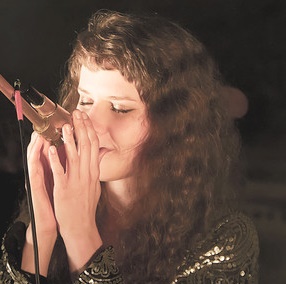
Jessica: But, we’re going to take as long as we need.
Andrew: We’re just going to go for it.
GW: Did it help that you worked in your own studio?
Jessica: Somewhat.
Andrew: You can become way too self-indulgent when you’re by yourself in your house – tracking guitar parts for hours and stacking things on top of one another.
Jessica: No one there to say, “alright!” [snaps her fingers].
Andrew: I need someone to tell me, “Look dude, you got one more shot”.
GW: Where as if you rent a studio, you got to get out of there.
Andrew: You got an hour to get a song done.
GW: What’s next for Moon Honey?
Jessica: We got some new songs. We’re still trying to get this album out – we hit the west coast twice in a row.
Andrew: We’re going to keep pumping this album as much as possible.
Jessica: We’re going to the east coast, hopefully Europe…this year.
Andrew: We were talking about going to Europe this year.
Jessica: Keep writing and pushing our new album.
Andrew: We’re also trying to put ourselves in a different climate for writing this next album. We’ve been spending time in New Orleans soaking up this voodoo culture, this kind of magic thing that New Orleans has. It’s like this spicy, soulful, spirit, gumbo vibe.
Jessica: That we can’t eat.
GW: Is that a good thing – the whole New Orleans vibe?
Jessica: It’s mystic…voodoo priestess…
Andrew: It’s a mystical place. It’s a different country. It’s like Spain, France, Haiti, Jamaica all mixed together. You learn a lot from being in the city just from walking the streets and hearing the clashing sounds…
Jessica: Jazz, blues.
Andrew: Of jazz, blues and music just hitting you from every direction. It’s a really colorful experience. I also fell in love with parts outside of Los Angeles on this tour. I think we’re going to maybe spend some time in California writing too.
GW: Use LA as another home base?
Andrew: Yeah, so we’re thinking about just going there for a little while and see what happens. We’re just getting started.
GW: Whatever you’re doing on this album, keep it up. It’s great!
Andrew: Thank you.
GW: That’s all I have. I appreciate your time.
Jessica: Thank you so much.
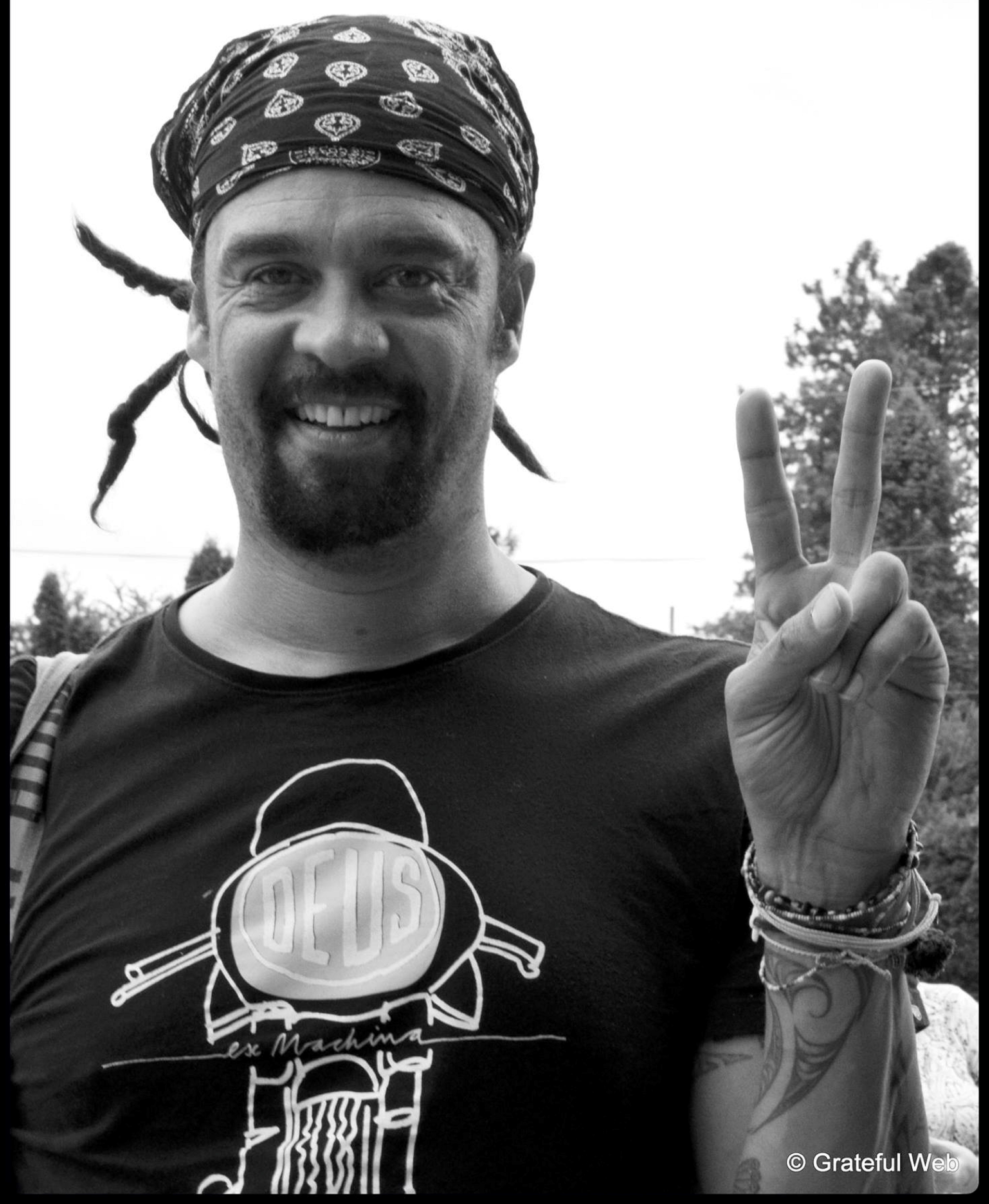
Michael Franti & Spearhead is kicking off their music and yoga tour – the Soulshine 2014 tour – at amphitheaters across the US this summer. Yes, yoga – bring your mat. Not only will fans jam out to music from Michael Franti & Spearhead and featured special guest artists (SOJA, Brett Dennen, and Trevor Hall), fans of all ages and all experience levels may optionally participate (before the concert) in the yoga session before the concert guided by acclaimed yoga gurus with live acoustic music by Michael Franti. Exposed to music in his early college years in the Haight-Ashbury district (San Francisco) and influenced by reggae, punk, and rap, Michael Franti electrifies us with his up-beat, energetic sound and inspirits our soul with his message and uplifting lyrics.
Michael is as much a philanthropist -- first-hand improving the lives of others in his numerous charitable works and projects – see All Love from his website, https://www.michaelfranti.com/all-love. Recently, Michael Franti’s youngest son, Ade, was diagnosed with a kidney disease called FSGS. Unbeknownst to us of this recent condition threatening Ade before this interview, Grateful Web sits with Michael Franti as he talks music, inspiration, the prognosis of his son, Ade, and the upcoming Soulshine Summer 2014 tour.
GW: Hi Michael. This is Vinh Nguyen with Grateful Web. Thanks for joining us.
Michael: Thanks for having me.
GW: How are you today?
Michael: I’m great.
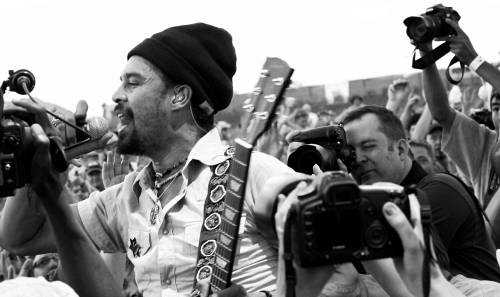
GW: Let me go ahead and start this off. I got 15 minutes with you Michael. Tell us how you first became interested in music?
Michael: When I was a kid, my mother played organ in the church that we went to. Every kid in my family – we had five kids – every kid played an instrument except for me. I took one piano lesson and then I quit. [laughing] I played basketball when I was a kid. [Michael Franti is 6’6”] I went to the University of San Francisco and I played basketball there. My dorm room was right above the campus radio station. I think I ended up spending more time listening to the radio and going into the radio station than I did on the basketball court. I just fell in love with music. Our school was about five blocks away from Haight-Ashbury – San Francisco. So, I’d go down to Haight-Ashbury district and I would hang out with punk rockers, and hip-hop heads, and Deadheads. I just fell in love with music. I started (I didn’t pick up an instrument right away) doing vocals. I starting writing rhymes. Eventually, started my first band and never looked back.
GW: What were you interested in back then – what bands and genre of music interested you?
Michael: You know, I loved music that people had passionate things to say about in life and in the world. So, the things I identified with were punk rock and hip-hop. Because, you didn’t really need to know how to play an instrument really well. You can just use a drum machine, like a breakbeat, or learn three guitar chords and stand up there and say what you felt. This was the music that I loved. I love the clash. I love Run DMC. I love Public Enemy. I love the Police, etc.

GW: You had a wide range of interest.
Michael: Yeah.
GW: Your lyrics are inspiring. Where do you get this?
Michael: The main thing is from my life. When I’m on tour, I go out before every show. I talk to fans. I spend a lot of time after every show talking to fans. I’m a runner so I run in the cities that I live in. And, there are things that just happen unexpectedly. The last song I wrote was a song for my youngest son Ade who was recently diagnosed with a very rare kidney disease that has robbed…
GW: This is your son?
Michael: Yeah, my son. His kidneys have lost 50% of their function. You know, it’s been a very difficult thing – an emotional thing for my family. I remember the first day that I learned about it; we were actually doing a show at the Sweetwater [Sweetwater Music Hall] in Mill Valley, which is owned by Bob Weir. I got out and started singing. Bob and I were doing a song together. And, I just bursted into tears. It was the music that moved me to really get in touch with everything that I was feeling about my son…possibly…dying. And then, the experience of writing the song, giving the song to my son, listening to it together in the car, just passion through that emotion, music has been the thing that has fed my soul in the times when I needed it the most. And, that’s why I did it.
GW: How is your son doing right now?
Michael: You know, he’s doing really well. The disease that he has is one that it’s difficult to tell how fast it’s going to spread or how fast it’s going to move. He still has 50% of his kidneys remaining, which potentially you can live forever like that. But, it has only been a matter of months since they’ve gotten that back. So, we’re just waiting to see how it progresses. We’ve done a lot of nutritional things and medicinal things to hopefully prevent his kidneys from getting worst at a fast rate – slow down the disease.
GW: I wish you the best with that Michael.
Michael: Thank you.
GW: You travel quite a bit. Is there a specific experience in your travels you want to share – anything that stands out for you?
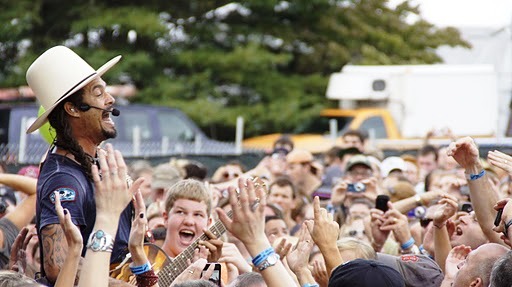
Michael: We just came back from Europe. We’ve been there many times. It’s been three years since we’ve been there. It’s just amazing to go to places that have incredible history. In America, you might find a building that’s maybe 150 or 200 years old. When you’re in Rome, you’re around stuff that is thousands of years old and people are sitting on it waiting for a bus…[laughing]
GW: Right.
Michael: …[belongs?] in a museum somewhere. But, that sense of history that you see where civilization has come from, things that lead up to where they are now and where we’re going in the future – tells us where we’re going in the future. My music has always been something that I try to question where we are, examine where we are and hopefully to create a brighter future than the one that – the thing that we’re heading to.
GW: As far as where we are at today, what do you think about our mainstream culture today?

Michael: I feel there so much emphasis placed on gossip and commercialization. You start to feel frustrated. And then, I find people who are doing amazing things, making great music, and telling great stories about things that are happening in the world. And, I get really inspired again. I feel really uplifted. So right now, I’m hopeful for the future but I hope the future gets here soon.
GW: Speaking of great things, you do many great things for people. Do It For The Love Foundation is something you started. Tell us about that foundation?
Michael: Do It For The Love idea came from the experience of a man who came to one of our show last year. He was dying of ALS, Lou Gehrig’s disease. I was with my girlfriend. And, we were so inspired meeting him and his wife. Seeing the love that they had and how much the concert meant to them -- How much it moved them – that we decided to start Do It For The Love to bring people with advanced stages of life threatening medical conditions, kids with severe challenges and wounded veterans to live concerts. People can go to our website (http://doitforthelove.org) and you can either see the list of participating bands or just tell us any band that you want to see – and we’ll get tickets for them, the people in need. It’s kind of like a Make a Wish foundation for me.
GW: That’s great! You have an upcoming tour across America -- The Soulshine Tour, Summer 2014. Tell us about this tour.
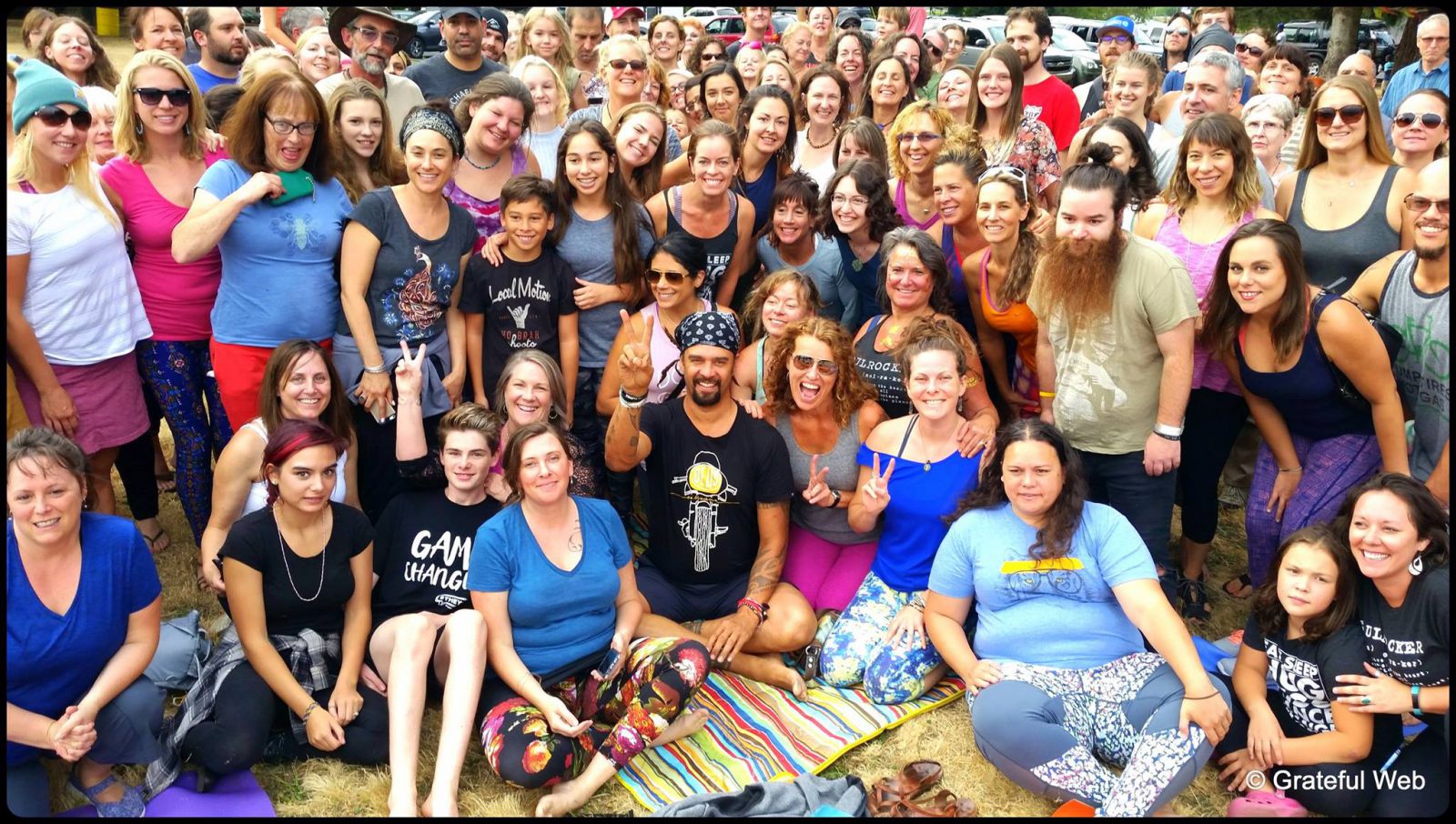
Michael: First of all, the artists are SOJA, Brett Dennen and Trevor Hall. It’s the first tour that combines music and yoga. I’ve been practicing yoga now for 13 years. Every city that we go to, I always go to a yoga class. Over the years, we started having fans come and practice yoga before the shows backstage, in the parking lot or wherever. Last year at Red Rocks, we invite fans to come and I was going to do an acoustic music set while this teacher taught yoga class. We thought a couple of hundred people would show up in the afternoon before the regular show but we had 2000 people show up. We thought why not do this in every city on the tour. So at every stop that we’re going, we have a yoga class that goes on for an hour with acoustic music by myself and other artists on the tour. If you never practiced yoga before, it would be a great way to try it for the first time. If you’re an experienced practitioner, we got some of the best yoga teachers in the country who are going to be out with us on tour. If you just want to come listen to acoustic music, just show up early, bring a picnic, and have some fun.
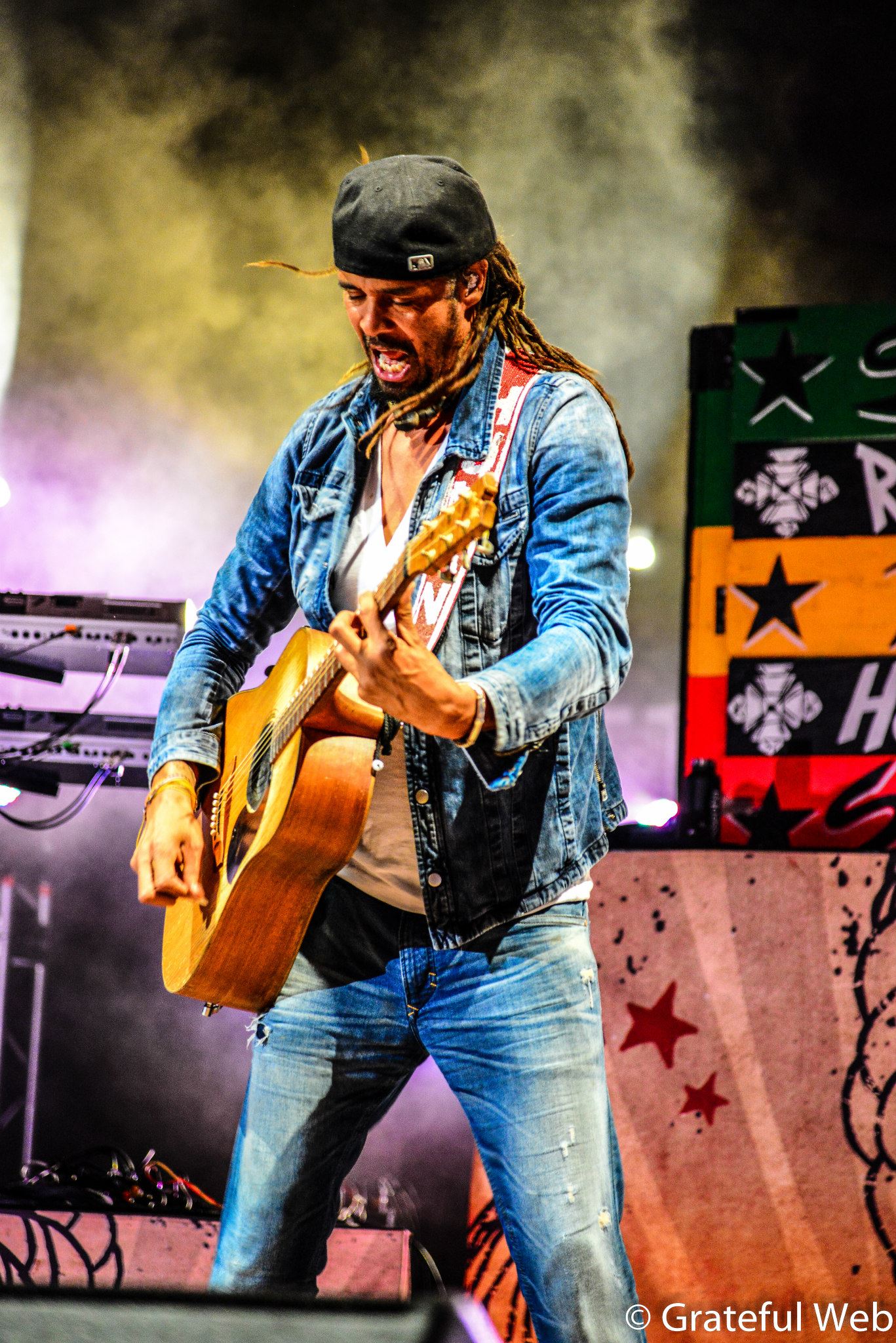
GW: Yoga happens before the show?
Michael: Yeah, so it will be about 4:00 in the afternoon or something like that depending what city we’re in. Then, the proper full-on rock concert experience will happen after that.
GW: Alright. My understanding, this is design for all ages and all levels.
Michael: Yes. All ages, all experiences, all sizes…anybody is welcome to come out
GW: Did I hear this right that you guys are offering yoga mats or should they bring their own?
Michael: Yeah, we’ll have a bunch of mats. So if you don’t have one, we’ll have mats for people. If you have one, it’s probably best to bring your own.
GW: Yoga is part of our workout routine you do everyday?
Michael: Yes, I’ve been practicing yoga now everyday on tour either before soundcheck or after soundcheck. I’ll just roll out my mat. My bandmate Jay Bowman also practices. We also go to different teachers and different school in the town that we are in.
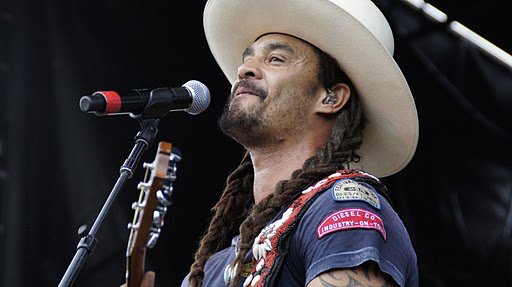
GW: Ok, let me go ahead and conclude this with you. If there’s any last word or anything I missed, I’ll leave this to you.
Michael: We’re super excited about this tour this summer because all four bands are artists we’ve known – we’ve known each other for many years. So, there’s going to be lots of jamming between the bands. I’m guessing in the sets there will be some artists from each act that will be joining other artists to do songs. Yoga is going to be great. It’s just going to be a fun tour and we’re looking forward to it.
GW: Great, we’re looking forward to seeing you on tour. Thank you again Michael for having us.
Michael: Thanks for helping us get the word out.
GW: Ok, good luck this summer.
Michael: Alright, thanks.
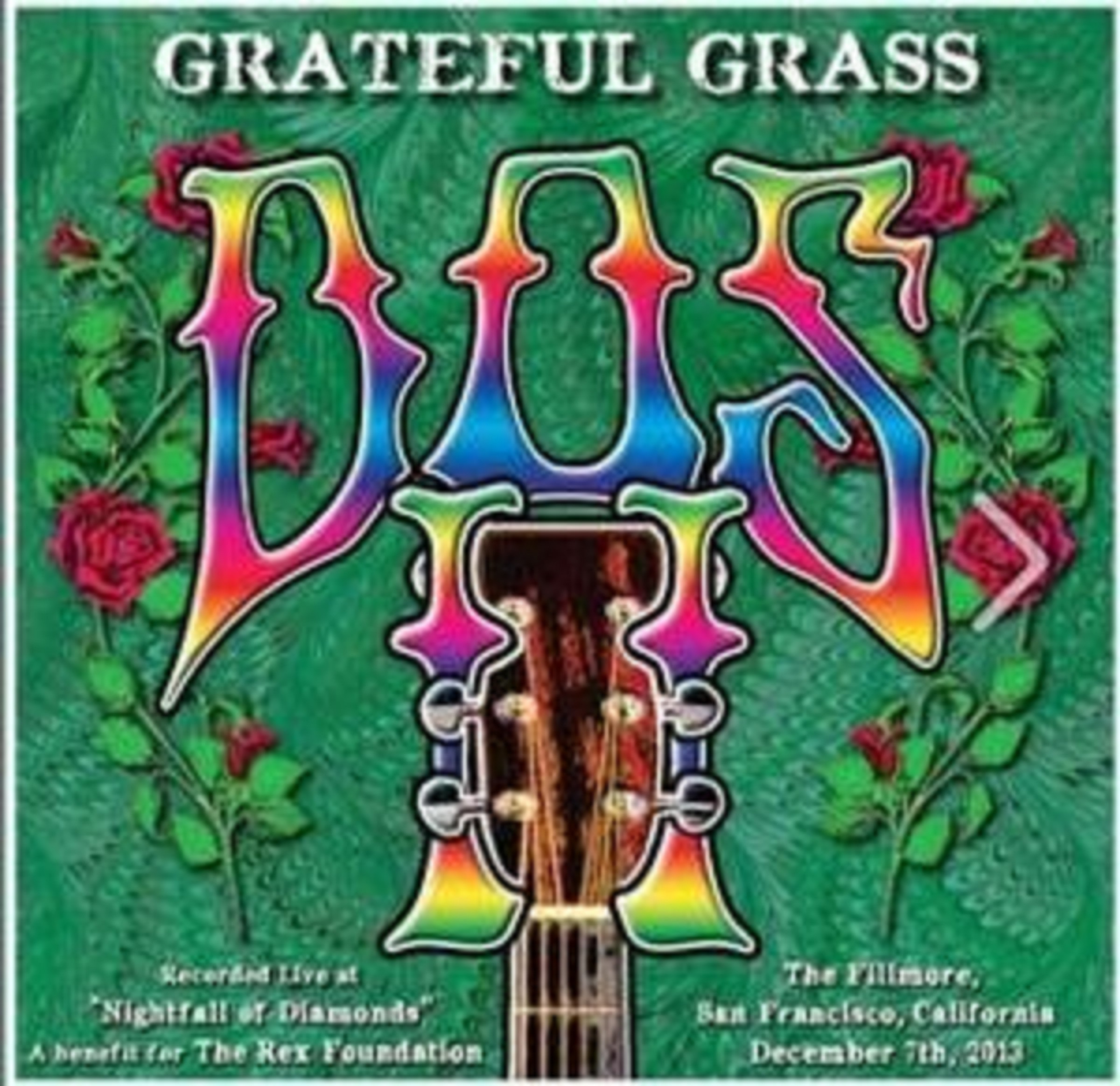
Keller Williams has announced his latest album release, DOS. DOS is a live-recorded collection of songs from the Grateful Dead with all proceeds benefiting the Rex Foundation. Keller’s talent and passion as a musician and for the Grateful Dead is reflected beautifully in DOS. Over the years, Keller has collaborated with renown artists in the community and this new release features some of these artists: Jeff Austin, Keith Moseley, and Michael Kang. With now over 20 records released, an appreciative Keller William talks to Grateful Web on the release day of DOS.
GW: Hi Keller, this is Vinh Nguyen with Grateful Web. How are you?
KW: Good, good. How are you doing?
GW: I’m good. Are you ready to go?
KW: I’m ready to go.
GW: All right, I’ll get straight to the point. You have a new album, DOS. That should be released today digitally, correct?

KW: That is correct – digitally only.
GW: That’s only released on the website…
KW: Nugs.net [also available on iTunes]
GW: Now, I know your 2013 album KEYS is a piano Grateful Dead cover. Did you have any particular goals here in creating this DOS album?
KW: No, these projects are just excuses to play Grateful Dead music and kind of get away with it.
GW: Sure [laughing].
KW: That’s the whole reason behind it. The KEYS record I have always wanted to release just a record of me on keys/piano and vocals but never felt like it was the right time and the right material. Once I am able to give all the proceeds to the Rex Foundation, it made it logical and it made sense. And that’s what these projects are is just a mere way to entertain myself by playing Grateful Dead music, which is what I do anyways. Now, I get to do it for a reason.
GW: Right, the record [DOS] is for the Rex Foundation (http://rexfoundation.org) similar to your previous two albums: the KEYS and the REX. Is there anything specific about the Rex Foundation that’s important to you?
KW: Absolutely. It was started by the Grateful Dead.
GW: Right, it’s a non-profit, charitable organization started by the Grateful Dead and you’re continuing that tradition.
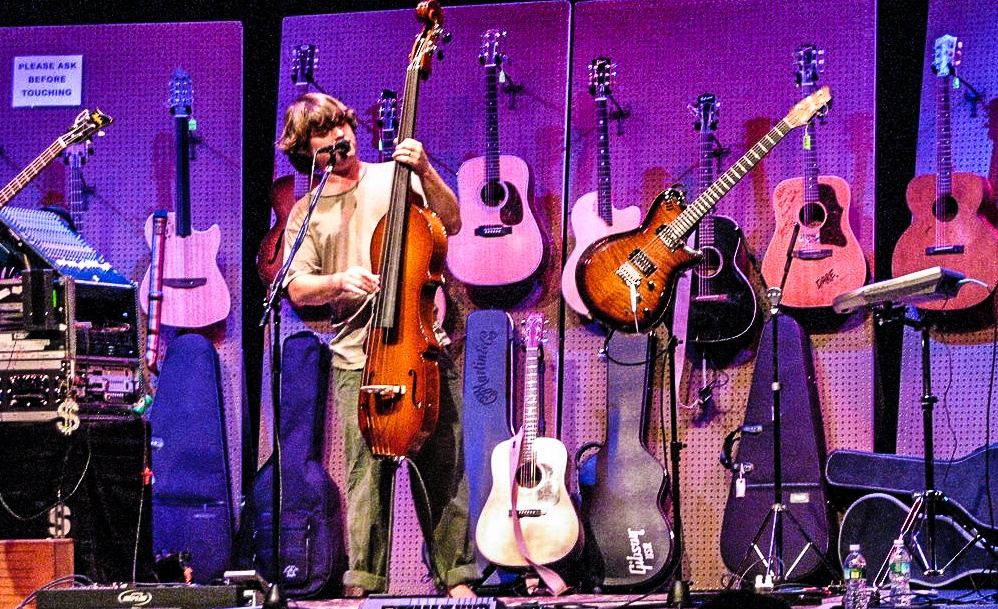
KW: I am giving the money generated from the Grateful Dead songs to an organization started by the Grateful Dead. I feel good about that.
GW: That’s great. I listened to all your tracks [from the DOS record] – great tracks: High Time, Samson and Delilah, Bertha, Sugaree, Shakedown Street, etc. How did you decide on which Grateful Dead songs to cover?
KW: First of all, I looked at the songs that we did on the first Grateful Grass record and did not do any of those. That’s where it started from. The ones that appear are the ones I like the best out of the ones that weren’t on the other record and the ones that came out the best. There were a few that didn’t make it on. There was a whole set from me, Nicki and Tim Bluhm which was a really cool one. I just wanted to focus on this release before I start diving into that material. There were a couple of songs that were really magical from that set as well – the Nicki and Tim Bluhm set that we played together. These are the best ones from the Grateful Grass.

GW: The tracks sound incredible. The guitar, bass, vocal, fiddle and I think there’s a mandolin in there. Was there a process in composing the tracks.
KW: No, I recorded my track onto MP3 and just sent them to everyone. I think they just listened to them the night before [laughing]. We just came in and put it together. This material it’s so much fun to gather amongst friends that don’t necessarily play this material yet know this material. And then, have a reason to let it rip. That’s what happened.
GW: And, “they” are being the Grateful Grass?
KW: Yes, Keith Moseley, Jeff Austin, and Michael Kang in this particular instance.
GW: In the previous 2008 album [REX], Michael Kang wasn’t part of the Grateful Grass but you decided to put him in as a member for this album.
KW: He is from Santa Cruz, which is a short drive to the gig where that was that night. He was suggested and it seemed obvious. I’m always always asking Michael Kang to do stuff and anytime he says ‘yes’ is a beautiful day. I go fishing with that guy all the time as far as trying to catch a gig with him [laughing]. You drop a line and try to pull up a gig from him. I get some bites from him and I got him on the hook for that particular gig. He’s turned down many gigs since then and before then as well. He’s very busy.
GW: So, he’s a fishing partner as well? [laughing]
KW: I don’t know if he fishes. I doubt it. I don’t see Mike Kang with a rod in his hand. I don’t think he would catch anything like that. He’d probably catch a soy fish if there were one.
GW: [Laughing] He’s part of the String Cheese Incident, correct?
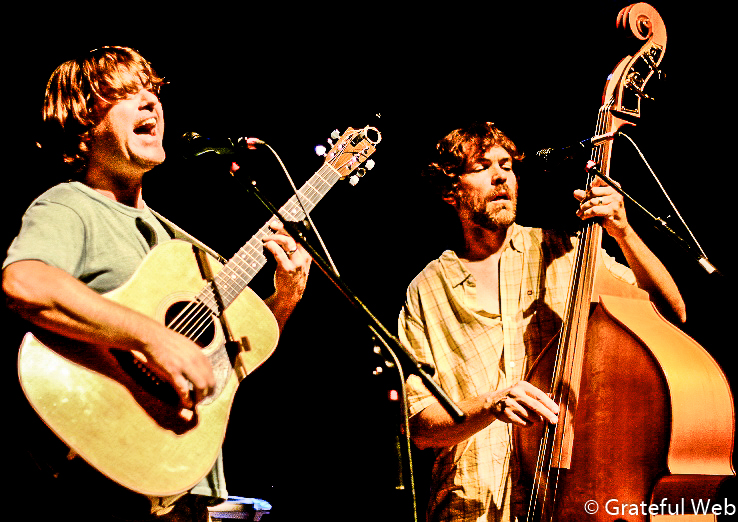
KW: That’s correct and so is Keith Moseley the bass player for this record.
GW: You’ve been working with String Cheese Incident as early as 1999 starting with the BREATHE record.
KW: Yes, we’ve been friends since 1995 I think is when I met them. Then, I started opening shows for them in the winter of 1996. Take it up to 2000, it was probably a hundred shows that I opened for them in the course of those couple of years. In 1999, yeah we got together for two weeks and did the record. I’m quite proud of that one. It came out great. Each record is kind of a document for me of where my head was and where my music was at the time. That’s really a document I’m proud of for sure.
GW: Over the years I’m counting over 20 records released from you, you’ve had much collaboration. Has that benefit you in your solo act?
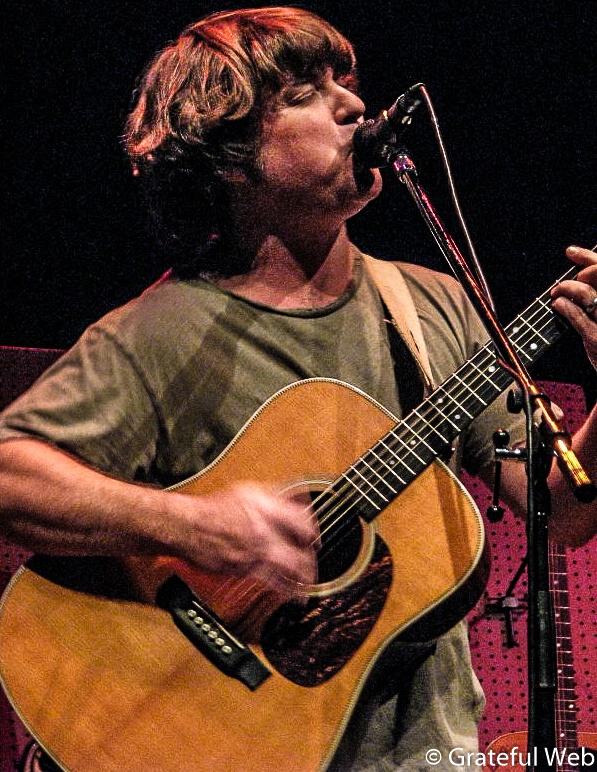
KW: I think both sides of my world benefit each other – both sides being the solo side and the collaborative side. There was so many years that I wanted to play with the band and could not afford it. Out of necessity, I played solo. Then, that started to work in all facets – financially, artistically, and there was no reason to fix something that was not broken and that was to focus on the solo thing. Then after a while, I was kind of allowed to bring in other people and get back to the root and the heart of it, which was to have that camaraderie and to communicate through music without language on stage with other musicians. Share that energy – something I can do more of than what I can do by myself. At the same time, there’s a certain energy and love that I have for that solo thing. There’s a certain kind of freedom. The repertoire goes way beyond my thought process right now. There is a certain thing that will trigger something that I forgot I knew – start playing and it’ll come back to me. In the collaborative process, that’s gone. You pretty much focus on the material that you know and kind of venture out in different improvs from there. Playing with people a lot makes me want to play solo more. And, when I get back to playing solo, there’s that rekindling of the love that I missed from not playing solo for a while. And vice versa, after playing solo for while, I’ll get back to wanting to play with people. It’s a nice mix that I’m allowed to have. When I say I’m ‘allowed’, what I mean by that is the folks that buy the tickets, that come to the show and support my whole world. They allow this to happen. I’m grateful for the people that support me.
GW: Sure. This is a great album – more people will be buying it. So, there’s no preference between solo and collaboration – it’s more a balance between both.
KW: That’s correct.
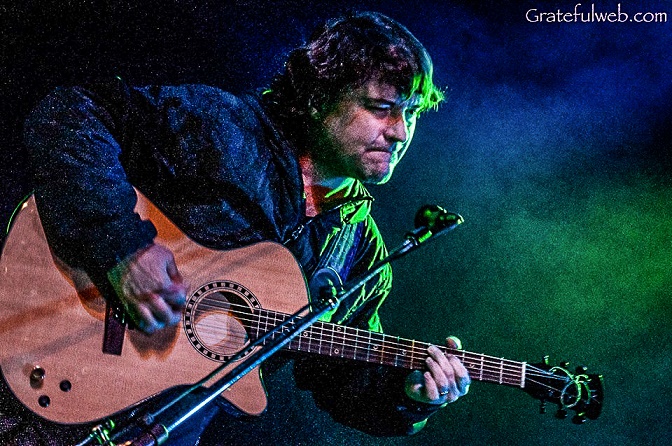
GW: On the DOS record, is there any particular track that stands out for you?
KW: I think the energy from “Bertha”, the first song, is super high, super hot. I dig the Bertha right off the bat. “Samson and Delilah” went into different places that we weren’t expecting it to go. And, that really worked out in a funny, really fast bluegrass song. I think those two stands out for me.
GW: “Samson and Delilah” has a nice fiddle pace to it – I like that.
KW: Yeah.
GW: You have a busy tour for the remainder of the year – some solo and others collaborative. Did you set that up logically as such?
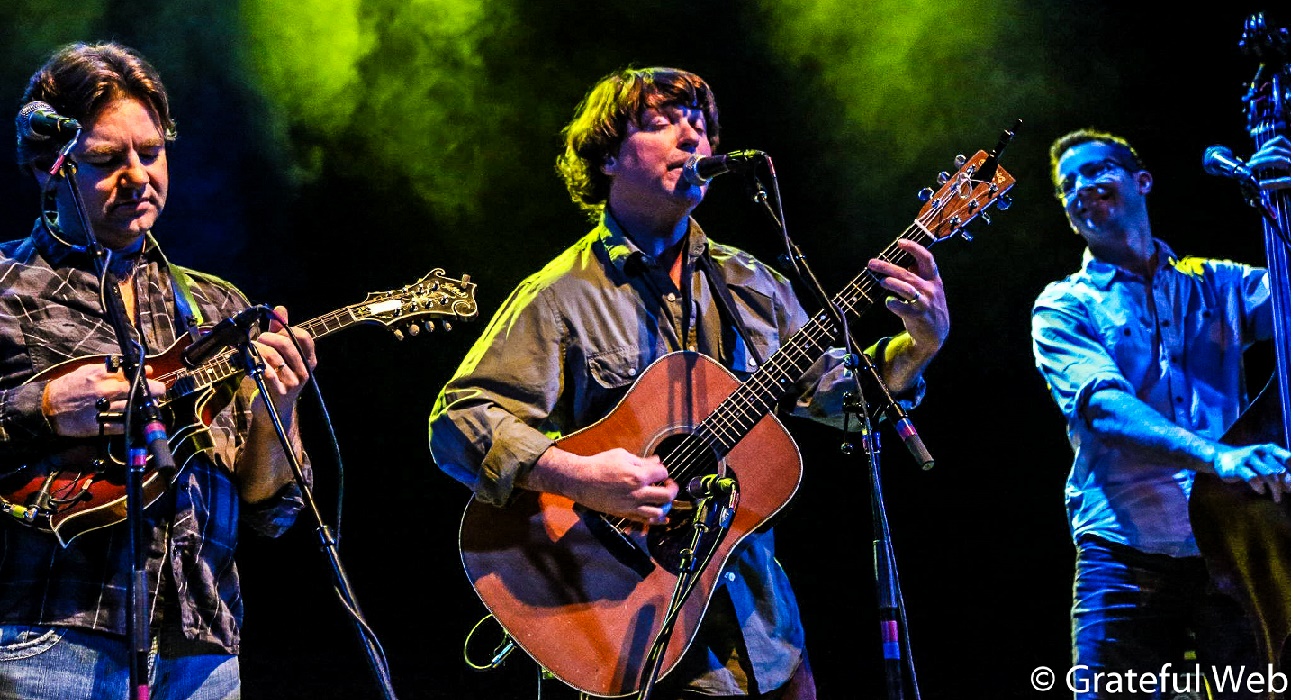
KW: A lot of that has to do with the promoters and what they want. Right now, there are four shows you can choose from: there’s the solo show, there’s the Keller & The Keels, the Travelin’ McCourys, and this funk band called the More Than a Little. This Grateful Grass thing is a bit of a novelty. It’s not something we were pushing sort of speak. Once we did that second show in December, it’s kind of like the interest was peaked and we started getting offers. I guess that’s a viable fifth element that I don’t really consider an option. I consider that a luxury. I consider playing Grateful Dead music a total, unrealistic luxury for me to be able to go out there and play this music to people that know it but yet play it in a different way – and to get away with it [laughing].

GW: Right.
KW: The most surprising thing is not that we’re pushing it. It’s that people are interested in the novelty aspect of it. I don’t know if it’s something that is going to continue. It’s never something we put a lot of focus into except accepting offers.
GW: Are you getting a lot of attention from your collaboration with the Grateful Grass – is that what you’re saying?
KW: Once the Grateful Grass did the second show (me, Keith [Moseley], Jeff [Austin], and Mike Kang) in San Francisco, that was at the height of booking season for the summer festivals. I think once people heard about that then they were interested in these players. In my mind, these are all-star players. They are well recognized in this community. I think people were into that idea. And, it all started with me, Jeff and Keith. For many years, we would never even visit it because we couldn’t get the three of us in the same room, in the same place and at the same time. I started reaching out to other players when those guys weren’t available. Like this festival coming up in Colorado called the Arise festival [Arise Music Festival], there will be three completely different players than what’s on the record. I’m really excited about that because there will be a whole new energy brought to it. Everyone knows this material and I have total confidence in these three players: Reed Mathis on bass, Bill Nershi on guitar, and Allie Kral on fiddle. And, I’m going to be playing a pretend mandolin, a mini guitar that looks like a mandolin. I’ll be playing a guitar in the mandolin tradition. I have a project Keller & The Keels when I play this instrument, it’s a guitar but I try to make it sound like a mandolin. It almost does but does not. It still maintains that mandolin/snare beat. In bluegrass, you have the upright bass just to kickdrum and the mandolin and kind of the snare together [Keller mimicks an instrumental sound, “boo-ka, boo-ka, boo-ka] and I’m doing the ‘ka’.
GW: The instrument is new for you – the Mandolin?
KW: I don’t really play mandolin. It’s a small guitar that I try to make sound like a mandolin. I don’t call myself a mandolin player even though I’m assuming the mandolin role.
GW: Well Keller, that’s it from me. I wish you luck on the remaining tour for the year. Do you have anything to add to your tour, the new album DOS, or anything I missed?

KW: No, you did great. Thank you very much for the press.
GW: Thanks a lot for having me.
KW: Bye now.
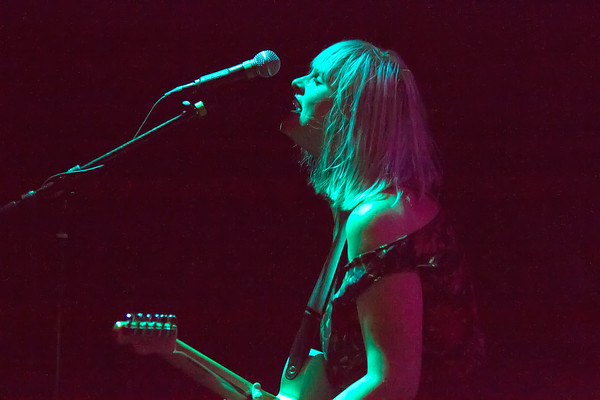
With released of their LP Tweens, Cincinnati trio Tweens is on tour for the remainder of the year in the US and Europe. Headlining at the Lost Lake Lounge in Denver, Tweens captivated the crowd while only still finishing up their sound check. With Bridget on guitar & vocal, Jerri on drums and Peyton on bass, it was -- in punk fashion -- hard, fast but in-sync and controlled. Their sound is exponentially more mature than their youthful appearance would suggest. Bridget’s penetrating, melodic vocals and the band’s startling sound and energy reverberated throughout the music hall and through the opened door into the patio of the Lost Lake Lounge’s intimate venue. Absolutely, an energetic and fun vibe throughout the session.
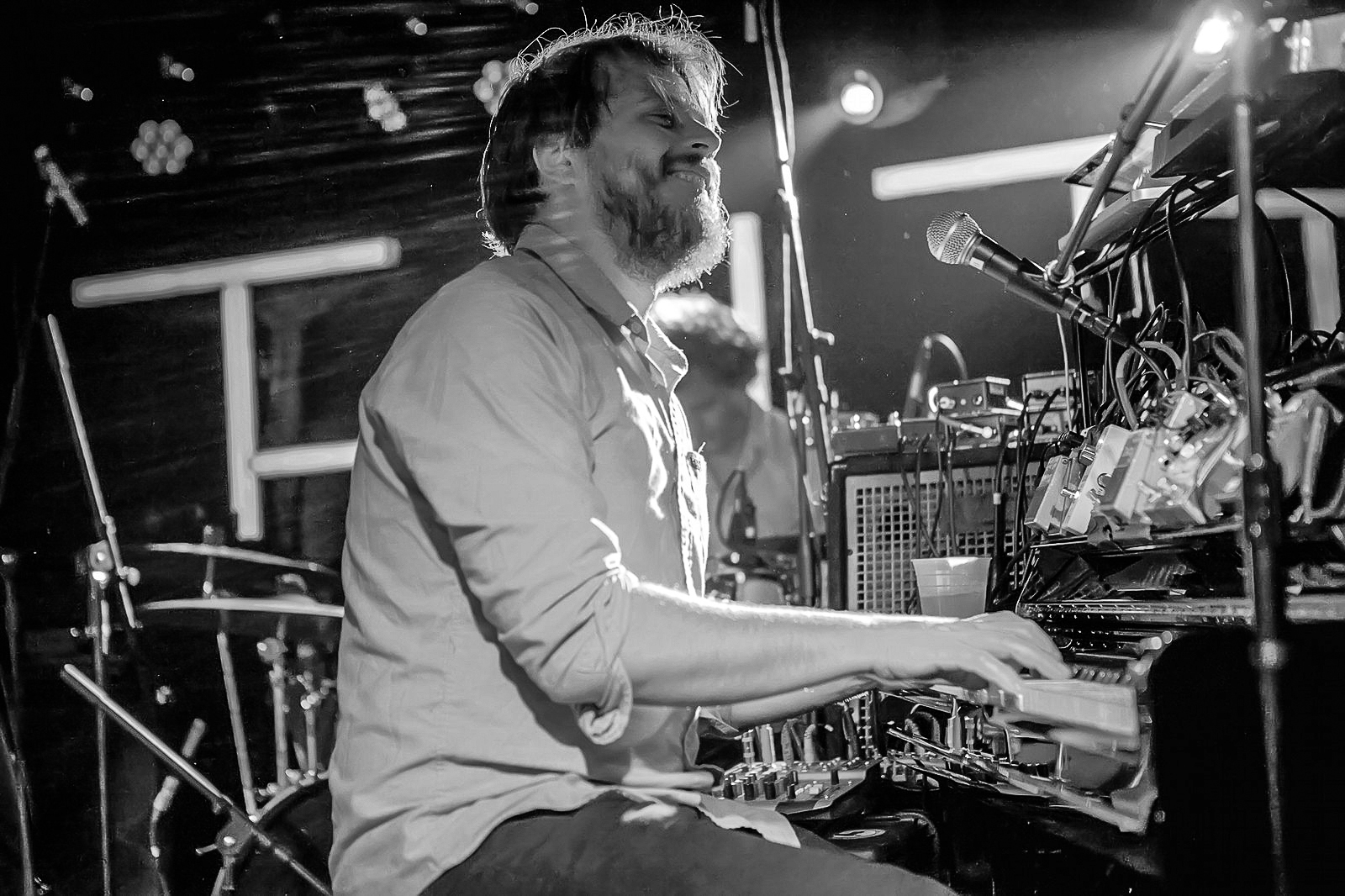
The Royal Potato Family label is releasing Marco Benevento’s fifth studio album Swift on September 16, 2014. Pianist Marco Benevento arrived in Denver as a trio -- with drummer and bassist – for two nights concert in Denver. Opening with “Risd” from Benevento’s Between The Needles & Nightfall record was a catchy, upbeat song and you quickly get a feel for what Marco can concoct on a piano. With a steady drum/bass beat in the background, Marco plays a piano melody that sounds like an old time piano, midi/synthesizer. Marco’s piano is rigged with a row of what looks like distortion boxes you would normally see connected to an electric guitar. However, completely unnoticed is the absence of a guitar from this trio.
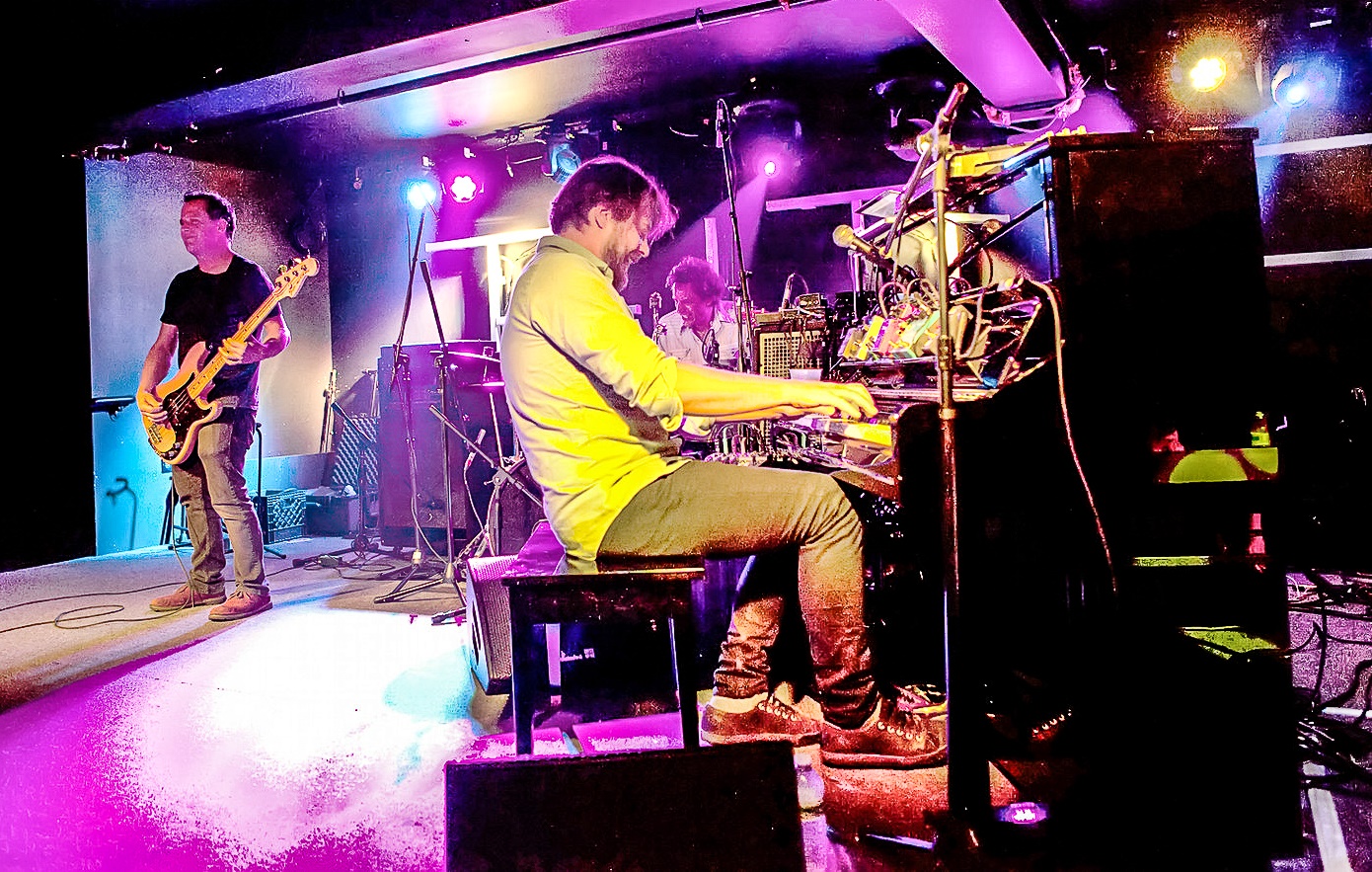
The next song was a much more jammy rock piece with the strobe light working aggressively. With a Led Zepplin drum like beat and pockets of solos from Marco, it resembles a 70’s rock/disco bar. I didn’t have the set list tonight and do not recognize the track but the song sounds like the middle of another great track “Bus Ride” from Marco Benevento’s Invisible Baby record. The next song “Atari” also from their Invisible Baby record started with a beautiful, contemporary instrumental melody but with the drums/bass that kicks in short after. The next set “Heartbeats”, from Marco’s Me Not Me record was a slower rock tune layered over Marco’s rapid piano solo – Marco convulsing over the piano here is just sick! Then, Marco proceeds into a funk groove set. So diverse is Marco Benevento, his music can easily fit into this Denver ‘rock’ / upbeat concert venue, or perhaps a more subdued jazz setting like Dazzle up the street (where Marco has performed), or even as theme songs to say The Lego Movie with its range of emotional expression.
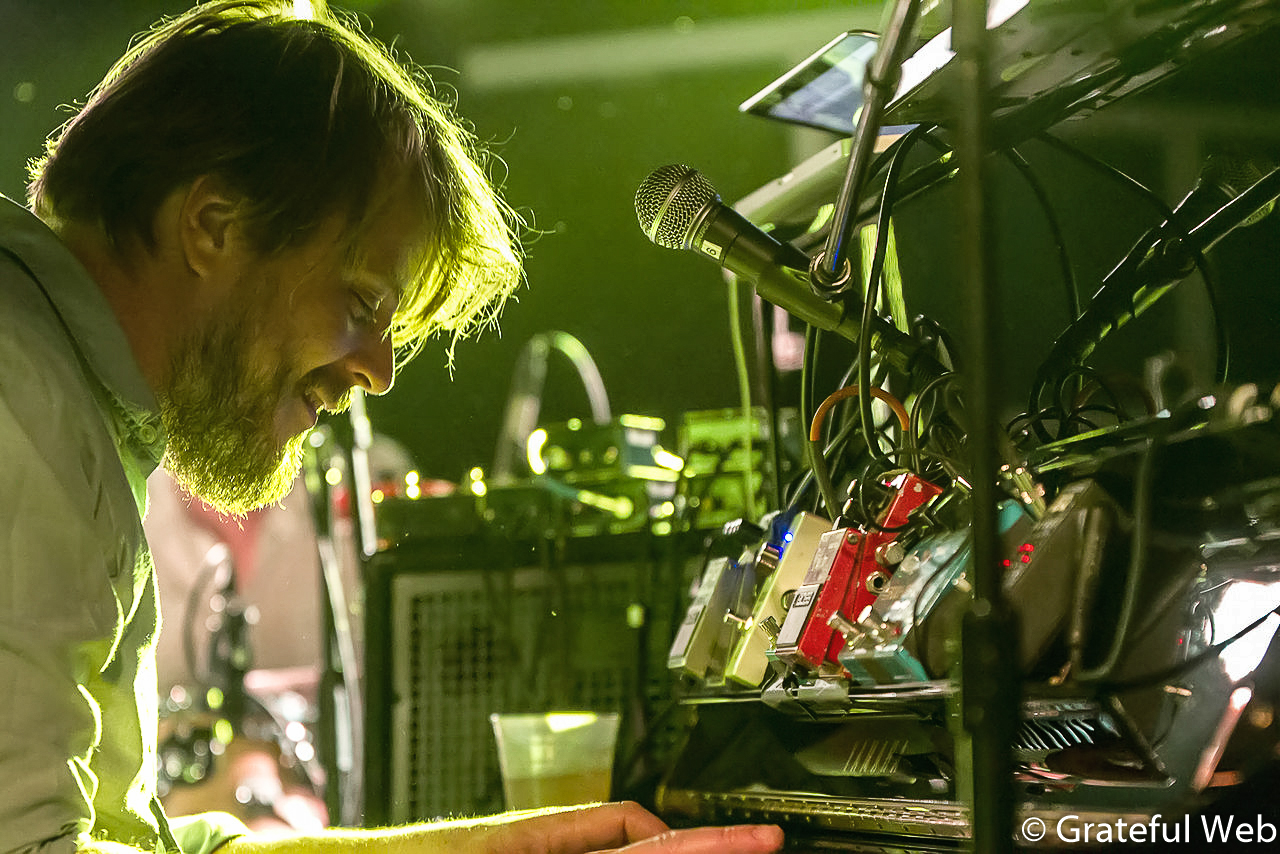
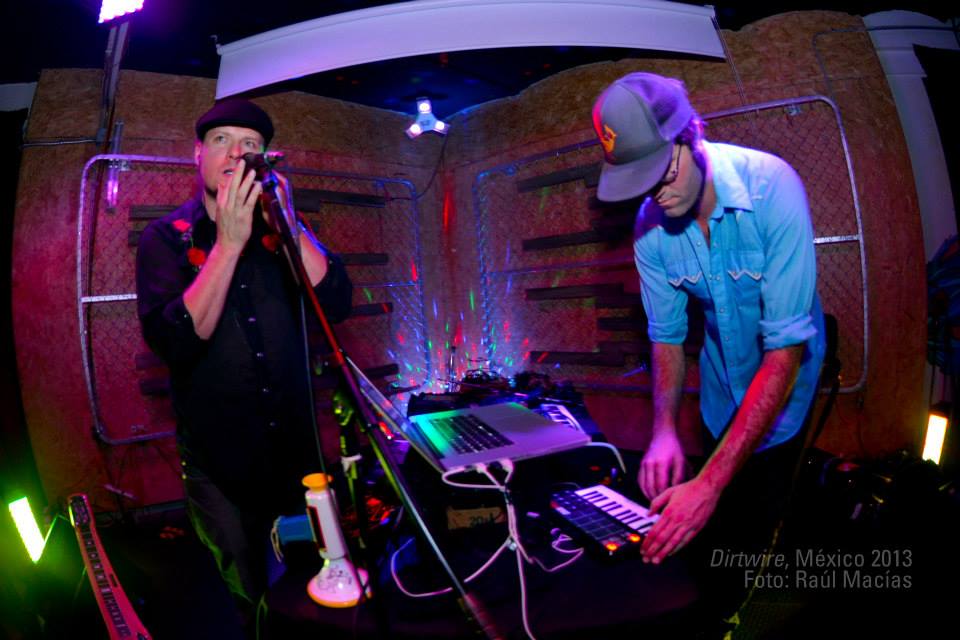
Multi-instrumentalists David Satori and Evan Fraser make time off from their musical project(s) and come together as Dirtwire to record and release their latest record Carrier (http://www.dirtwire.net/music/) – due out September 9, 2014. This is Dirtwire’s third record. Dirtwire brings together David and Evan’s World music passion, eclectic instruments and electronics. Grateful Web talks with David before their September 2014 tour.
GW: Thanks for joining us David. I’m Vinh Nguyen with Grateful Web. You and Evan met at the California Institute of Art. What factors led to the music collaboration?
David: We’ve just been friends for over 15 years and we studied music back at Cal Arts together. Evan was really an interesting musician. He played a lot of different instruments and was inspiring with his approach to music. I was intrigued by that. We played in a funk band when we were at Cal Arts together – called Mud house. We would do a lot of Sly and the Family Stone and sort of classic funk songs. And then, we started another band called the Funnies. That was our first sort of professional touring band and we did a west coast tour. Then, we went our own way for a little while and played in different bands. We just did a recording project together. Dirtwire was just an opportunity to record together and make some music. People started enjoying it so now we’re doing more shows.
GW: How did you go from Funk to World Music?
David: Yeah. Well, we studied a lot of World Music at Cal Arts. We’re big fans of traditional music from around the world. Evan plays a lot of weird of instruments like jaw harps, kalimbas, strange percussion, n’goni African harp…from all over Africa. We mix this all together in our own bluesy World rootsy sound mix with electronics in the same vain Beats Antique does – my other band. It’s similar in the way we make music but different in how it comes out.
GW: You play a lot of weird instruments yourself. It looks like a list of 10-15 instruments here: jimbush, kone, guibri, etc. What’s the craziest or most unique instrument you play?
David: Maybe, the saz. It’s called the jimbush or the saz and it’s a Turkish instrument that I made electric, which is a pretty, rare unique instrument – especially in the US. So, that’s probably the more exotic instrument I play. I play a mbira, which is a thumb piano from Zimbabwe (South Africa) -- a very specific kind of thumb piano. I also play the guitar, violin, trumpet, drums and stuff.
GW: Yeah, I see other ‘traditional’ instruments you play here like the slide guitar and the harmonica. How do you keep up on the instruments? Do you actively look for new sounds?
David: What do you mean? How do we find instruments?
GW: Yes. I’m Googling some of these instruments and they’re not from around here.
David: Yeah yeah, it’s just because we love the music from those traditions. And when you like that kind of music, you’re like what instrument is that? You know, your ear is curious. You go find it. And, you can find anything here especially in the Bay area where we’re from. The Bay area is a really diverse place.
GW: Is that [the different instruments] something difficult to pick up and learn?
David: If you’re playing string instruments, a lot of string instruments are similar so you can apply a lot of your technique to different instruments. But, the trumpet is a very different instrument than a guitar (with the lips and your embouchure) – that’s really hard; it’s a hard transition.
GW: Dirtwire has a new album out September 9, 2014, Carrier. Tell us about this album.
David: The Carrier is an EP of a collection of a bunch of songs we’ve been making. We’re just excited to be getting some more music out there. It’s been about two years. Well, that’s not true. We put out a release [Ondar EP (http://www.dirtwire.net/music/)] this summer on Six Degrees Record as a dedication to Ondar – Kongar-ol Ondar, a very famous Tuvan throat singer. So, we were really honored to put that out this summer. Then, we wanted to come out with a more straight-up original stuff that we’ve been working on. So, Carrier is more of that. And, it debuts our singing, which we’re excited about. Our other albums were instrumental. The new album we’re singing on it, Evan is singing on it, and I’m singing on it. We got special guest Rising Appalachia, which is a great band from Georgia.
GW: The track “Damn Rooster” on your new Carrier album. What instruments are on that track and tell us a little about it?
David: Yeah, that instrument, the bass, is getting played by a n’goni, which is an African harp. That’s what that background bass line is. Then, I’m playing slide banjo. That’s sort of a unique sound – slide on banjo. Evan is playing Harmonica.
GW: [Playing a track sample of “Damn Rooster” (http://www.dirtwire.net/music/the-carrier/) from the Carrier record] Do you hear the track playing?
David: That’s the n’goni. That’s the African harp – spelled n-g-o-n-i.
GW: How did this song come about?
David: We just started jamming. We just played and came up with that lick and just put a body over it.
GW: Let me play another track. This is another one I really like. [Playing a track sample of “Thunderbird” (http://www.dirtwire.net/music/the-carrier/) from the Carrier record]. Can you hear that -- tell us about this one?
David: Yeah Yeah, I know which one you’re playing now. That was a collaboration with a really amazing flute player name Tbird. That’s why it’s named after her; it’s called “Thunderbird”. She’s a flute player and a singer on that. She’s an amazing musician. That was an improvisation that we cut up and edited.
GW: Wow.
David: That’s all improvised. Yeah!
GW: That’s great stuff. Now, there’s vocals in this Carrier record which differs from your first record Dirtwire LP.
David: Yeah, that’s the big difference.
GW: I know you guys are both – or you were at least – active in your other projects. Are you and Evan still involved in other projects outside Dirtwire?
David: Yes, definitely. We’re very involved. Beats Antique is sort of my fulltime gig – my fulltime band. Dirtwire is sort of finding time to work around that schedule – just because Beats Antique is so busy. And, Evan is in a lot of different bands. He’s in a band Stallamara; he’s in a band called the Dogon Lights, which just put out a new album and touring around California. So, we definitely keep ourselves real busy. We don’t give ourselves much time off. It’s because we like playing music, you know.
GW: Yeah. We’re glad you’re keeping Dirtwire around. How difficult is it to multitask all the projects and put time into Dirtwire?
David: It’s a challenge. There are only so many hours in a day and it’s definitely burning the midnight oil. We put out albums with Dirtwire – and it’s really worth it and we really like it. It’s all worth it in the end.
GW: David, congratulations on the new album, Carrier. It’s out September 9, 2014.
David: Thank you.
GW: Dirtwire is currently on tour (http://www.dirtwire.net/event/) through September 2014. If you have any last words David, please do so and thanks again for joining us.
David: Yeah, I encourage people to check out our Soundcloud [https://soundcloud.com/dirtwire], our website [http://www.dirtwire.net/], checkout our music [http://www.dirtwire.net/music/] and share it with their friends.
GW: Great, thanks.

Monika Leigh featured on The Voice (Season 5) continues to sharpen her talent and pursues her musical, career goals. Embarking on her latest project, Monika Leigh and The Swamp Rebels, Grateful Web talks to Monika Leigh in Colorado before her show in Denver.
Grateful Web: Hi Monica. This is Vinh Nguyen with Grateful Web. How are you?
Monika: Hi Vinh! Good. How are you?
Grateful Web: I’m doing well. How is your day going?
Monika: It’s going. I woke up kind of late [laughing]. It was a late night for me. I think today I’m just going to take it easy until the show.
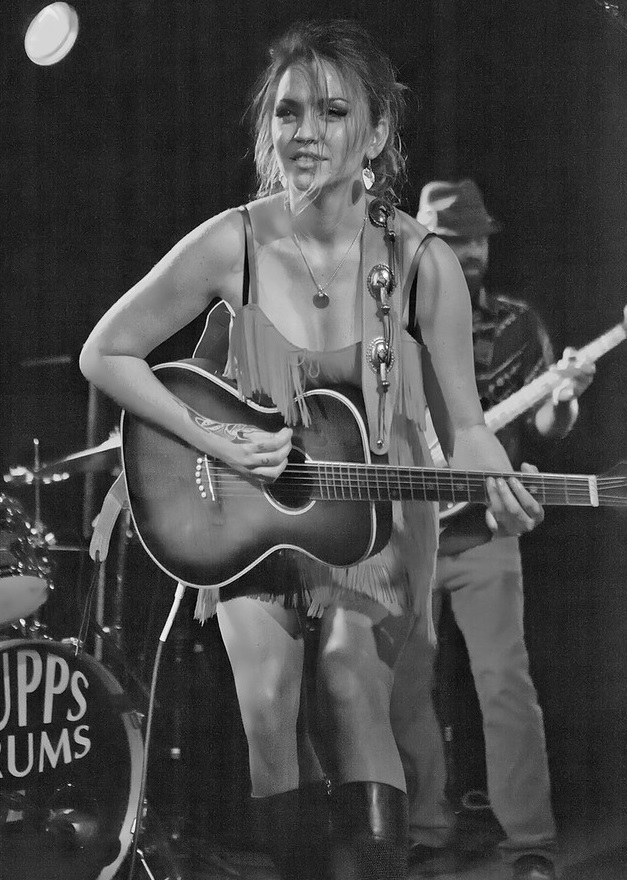
Grateful Web: Yeah, yeah of course. You need a break. You got a show coming up here tonight in Denver, right, at Herman’s?
Monika: Yeah, that’s correct. Doors will open at 7:00pm but I’ll be there at 9:00pm.
Grateful Web: You’re headlining tonight.
Monika: Yes.
Grateful Web: Your band now is Monika Leigh and The Swamp Rebels. How did you form this band?
Monika: Well, I’ve always had this guitarist with me. His name is “Panda” [Andrew Gordon], like the bear. After I did the show The Voice [http://www.monkleigh.com/ for featured videos of The Voice Season 5], it was difficult to book gigs because we didn’t have a full band. I’m sure you know when you have a full band the sound is just so much bigger – it sounds better. We then went looking for a drummer and a bassist. We looked almost everywhere. And sure enough, the gods are good to us -- we got Morgan [Morgan Harris] on bass and one of his friends Corey Ballentine on drums as a team. They just came to us and kind of sought us out needing a singer and a guitarist. So, it just worked out perfect.
Grateful Web: How long have you’ve been with the Swamp Rebels.
Monika: About two months.
Grateful Web: You’re a blues band, right?
Monika: We definitely try to market ourselves in the blues genre. However, we have different…songs, and that’s where the name “Rebel” comes in. We have a jazz song. We have a funk song. We try not to limit ourselves in one specific genre and we try to branch out a lot. Which again, why we say that we’re Rebels. We kind of do what we want [laughing].
Grateful Web: [laughing] Right. How did you get started in blues?
Monika: My stepdad, Leo Aston, introduced blues to me when I was about 12 years old. He was a wonderful guitarist and he just sort of always played around the house – always had blues music on. I remember when I was younger. I didn’t want to be a blues singer. But, I think subconsciously it just kind of caught on in my brain. That’s what I leaned towards when I started to write and sing. It just kind of happened.
Grateful Web: Right. You’re from Texas?
Monika: Yes, Houston, Texas.
Grateful Web: Now, you reside in Colorado?
Monika: Yes, I’m in Boulder, Colorado.
Grateful Web: Wow, they’re kind of outdoorsy there. Do you do outdoorsy things like climb or hike or anything like that?
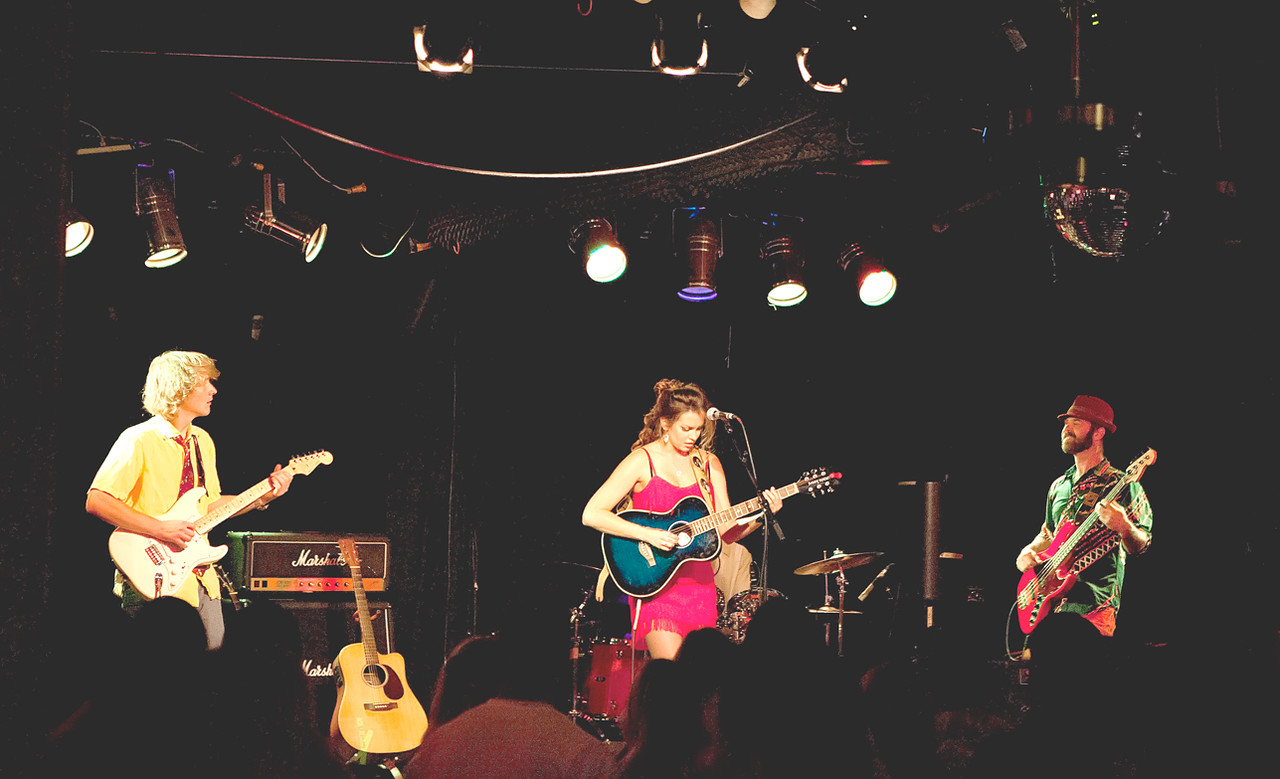
Monika: I used to not. When I first moved to Boulder, I was quite closed off in wanting to try anything new. But, Colorado has something magical about itself. If you’re going to live here, it’s almost like how do you not want to be outside. It’s just so beautiful all the time. When I took a trip to Telluride, there were all these waterfalls. My friends and I would go hiking to see the waterfalls. And, I fell in love with hiking. So now being in Boulder, I’m always hiking. I love it. I never thought that I would say that. But, I absolutely love hiking.
Grateful Web: Yeah, you sort to have to fall into it while you’re in Colorado.
Monika: Yeah, yeah.
Grateful Web: You were featured on The Voice – Season 5. Wow, tell us about that experience.
Monika: It was a wild ride for sure -- lots of ups and downs. And, I couldn’t even believe that I got picked by any of the coaches. The fact that people turned around just kind of validated me as an artist and thinking that I should be confident in what I do. It was really intimidating. Some days were really intimidating and some days were just mind opening – and I never wanted them to end.
Grateful Web: Blake Shelton, Adam Levine, and CeeLo Green, I think all three turned around for you, right? [Monika performing B.B. King classic “The Thrill is Gone” - http://www.monkleigh.com/#!eyes-and-ears/ci5r - on The Voice]
Monika: Yes [laughing]

Grateful Web: When you say intimidating, was it those guys [Christina Aguilera, Carson Daly, Shelton, Levine, and CeeLo] intimidating or national television…?
Monika: Honestly, it was a little bit of everything. You’re competing against talented people. And, who’s to say what the judges are looking for. We don’t know. That’s intimidating in itself that I’m going to compete with somebody that I have no idea what the judges are looking for. And, the person I’m competing with is super talented – so that’s intimidating. And then everything behind the scenes, wardrobe and…it’s so much bigger than what you would think…and production, and meeting Blake Shelton, and meeting CeeLo Green and Adam Levine. You’re just like…I…it’s beyond words seeing them in person when you’re used to seeing them on television. [sigh] It’s just very…very weird almost. And, it’s very humbling as well, so…
Grateful Web: Wow. I saw you in the knockout round and you are right up there with them so you’re doing good.
Monika: Thanks Vinh. I appreciate that, thank you.
Grateful Web: With all your wisdom now, would you do anything different if you had to re-do The Voice?
Monika: I would. Before, I wish I had all my ducks in a row. Meaning, I wish that I already had a band waiting for me when I had gotten done. I already maybe start to think about Kickstarter and all the things that artists should be thinking about now, regardless. I kind of wish that I had all of those things set up prior.

Grateful Web: So, coming into this with more experience…with a band and all that.
Monika: Yeah, that’s correct.
Grateful Web: Well, hopefully The Voice and your band will be an experience in itself.
Monika: I hope so. So far, it has been! We’ll see.
Grateful Web: You have an album out there! Seize the Day EP.
Monika: I have a solo EP on iTunes, yes. It’s just me and a guitar. All originals. [https://itunes.apple.com/us/artist/monika-leigh/id716937325]
Grateful Web: You have Soundcloud recordings as well and a video, “I just want to be loved”. [http://www.monkleigh.com/#!eyes-and-ears/ci5r] This is your first video?
Monika: Yes, that’s my very first music video.
Grateful Web: That’s great. You just started gigging with the Swamp Rebels for a few months. You did The Voice, you have your band, and you have an EP out there. What’s next for you?
Monika: Hopefully touring! I feel so…even saying this. I put together a five-year plan. I have so many goals and aspirations…and I like to put an album out there. I like to start touring. I like to be invited to do shows and play all the time. I would like to make this a fulltime career. So, fingers crossed for me, Vinh [laughing].
Grateful Web: Hey, that’s great [laughing]. What is at the end of that five-year plan?
Monika: Well, I would like to continue this until the end of my life. I think most artists feel that way. I think I would be really satisfied if I was invited to play at the Grammy’s. I would be even more satisfied if I actually won a Grammy.
Grateful Web: We want to see you there as well.
Monika: Good, thank you! [Laughing]
Grateful Web: You’re performing tonight in Denver at Herman’s.
Monika: Yes!
Grateful Web: Monika, thanks for joining us today. We hope many doors open for you in the future.
Monika: Thank you Vinh so much for having me.
Grateful Web: If there’s anything else, I’ll leave the last word to you.
Monika: I appreciate you guys so much and I appreciate you Vinh, thank you so much. You can check out my website also at http://www.monkleigh.com/
Grateful Web: Thanks again!
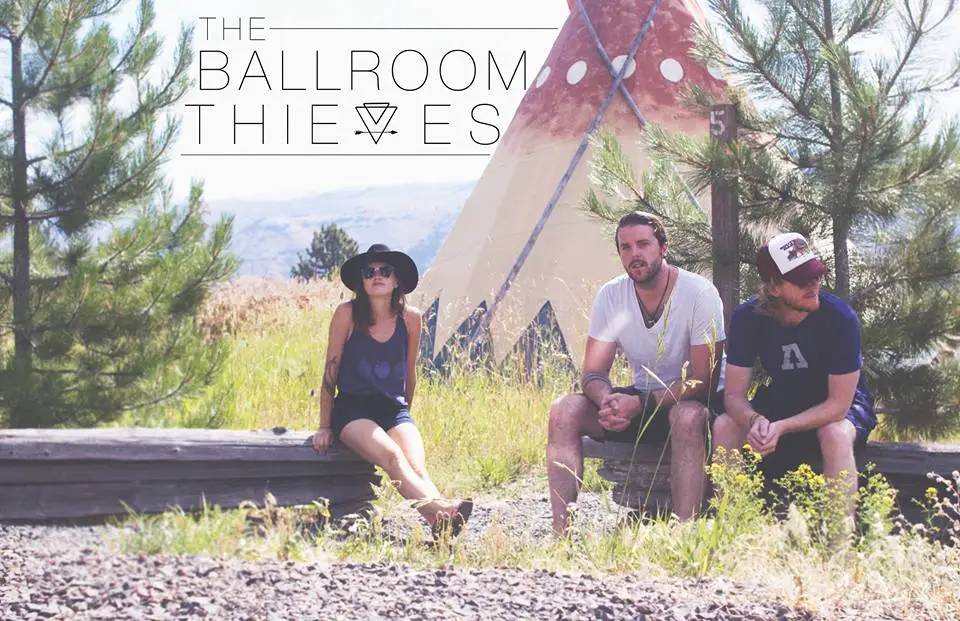
The Ballroom Thieves are performing in Denver, Colorado this weekend (https://www.facebook.com/events/989757557708115/). This will be a unique and an exciting experience to catch this rock-folk trio particularly at this intimate Denver venue (Larimer Lounge). When I think folk, I typically think perhaps of enjoying thoughtful inspirational music on the couch. Ballroom Thieves is that plus upbeat, rock flair in a concert hall -- armed with an electric guitar, drums and a cello. Grateful Web visits the young trio again during their tour around the US and before their latest, expected record release in Spring 2015. Below is Grateful Web’s talk with drummer, Devin Mauch:
Grateful Web: Thanks for joining us today so early. Well, I guess it’s not that early if you’re in the east coast.
Devin: Yeah, it’s not too bad. It’s noontime for us. Thanks for hitting us up.
Grateful Web: Devin, you’re the percussion guy in the band.
Devin: Yes, I play drums and sing
Grateful Web: When did you start playing drums?
Devin: I started playing drums mostly as a hobby. My brother was playing in high school. We had drum kits around the house. I was always playing guitar and piano but it was there. I was fooling around with it in high school. It got a bit more serious in college. I was always just self-taught. At this point, I’ve made a small career out of it. Yeah, since high school is when I’ve been playing.
Grateful Web: Then, you met up with Martin [Martin Earley, guitar/vocals) first I presume.
Devin: Yes, Martin and I went to college together. We met there and started playing together.
Grateful Web: Let’s talk a bit about the sound of Ballroom Thieves. On your website, you’re a “rock band in a folk suit” and another article reads you’re “rock disguise as folk”. Can you elaborate on the description?
Devin: Sure, we’ve evolved a lot over the last couple of years. I think the roots of this band are definitely in the folk music -- the folk movement. We find a lot of inspiration from that genre and the history behind it. We were raised on all different kinds of music: classic rock, old country, etc. Martin has really begun to bring in a significant amount of electric guitar into our sound. Callie [Calin Peters, Cello/Vocals] plays a cello but not in the classical sense that you expect to see from an orchestra or something. She’s definitely got kind of her own gritty style. With the combination of those things with my kind of organic drum setup, we just feel like folk doesn’t explain it very at all. We’re a bit more of a rock band but the folk influence is undeniable. Yeah, it’s fun thing, “a rock band in a folk suit”. It’s our way of sort of marrying the two genres and saying we’re trying to do our own thing, you know.
Grateful Web: Do you intentionally try to throw the “rock” in there somehow or does it just come naturally?
Devin: Yeah, it all comes naturally. There is no intentional push to be one or the other – or to be more rock than folk. I think naturally, especially in the last year, the writing has definitely been geared a bit more towards rock. And, the sound feels a bit more rock. But, Martin, who writes a lot of our lyrics, has a very folk way of writing lyrics. He’s got a bit of folk style to it with the storytelling – intricate lyrics and all that.
Grateful Web: I saw the band’s YouTube ‘Brother’ video performed in Austin Texas. [https://www.youtube.com/watch?v=9b9qDuiUhcU]. I hear rock. I hear folk. It sounds amazing. I think a fan posted that you’re a mix of Nirvana and John Denver. [laughing]
Devin: [laughing] The comments get pretty crazy. But you know, we appreciate anything.
Grateful Web: How did you come to have cello in a rock band? I don’t always know there’s a cello until the video. Anyhow, was that an intentional decision?
Devin: Martin and I started as a duo in college. We were playing as a duo for a year or two – two years maybe. We always had this fascination with the cello as an instrument. We talked about if we add a third or if we start to build this band up the cello is something we’re interested in having because of its versatility and just the wide range of dynamics and sound that it could get. It really lends itself to not being cornered into one genre or one sound. You can really use it in so many different ways. We had a different cellist for about two years from the beginning 2012 to mid-late 2013. We parted ways and we found Callie who’s our current cellist. The cello plays a huge role in the music. It’s funny that you say you don’t notice the cello as much. But, I think that’s in recorded music to date. We have our first full length coming out in the spring and that is the first project that Callie has written and recorded on. Our previous work is with our old cellist. I think the cello plays a much more vital and obvious role in the upcoming record.
Grateful Web: I’m excited about that. I’ve read she’s classically trained from Berkley and that she likes musically kind of where the band is going.
Devin: Yeah, she went to Berkley specifically to avoid becoming like an orchestral cellist – and exploring the other area that her talents could lend itself to. I think she saw Berkley as a place that would push her not in one direction but offer up different ones. She’s studied cello I think since 10 so she’s really run the gauntlet of all different kind of styles. She’s kind of settled into this vibe that just really fit well for stuff we’re writing now – the rock-folk fusion thing.
Grateful Web: Again yeah, we’re definitely excited about that. You guys toured with Railroad Earth. What was that experience like?
Devin: Yeah, we didn’t do a bunch of shows. I think we did three with them. It was really cool. They’re obviously way bigger than us. They’ve been around for so many years. Whenever we get to play with a band that has experience like that, it’s valuable in so many ways. We’re still so very young and we have a lot to learn. They were really really kind people. Playing with them was just really special. It was really cool to see how so many years of fan building really pays off. So, playing with them like at the House of Blues was just cool. The genres are totally different but it was cool. We still definitely were inspired by what they were doing and what they’ve accomplished.
Grateful Web: I know you guys had talked about a mix of upbeat songs at your shows. You certainly get that with Railroad Earth.
Devin: Oh yeah, definitely.
Grateful Web: Do you guys personally listen to that genre of music – or what do you listen to?
Devin: We listen to a ton of different stuff. We spend so much time on the road, in our van, traveling. We’re constantly looking for and listening to new and different kind of music. Like I said, we were all brought up on a full range of stuff: show tunes, classic rock, Billy Joel, James Taylor, John Denver, Bob Dylan, and all the old classics. More recently, what we listen to a lot is our friends and people we meet on the road and people we play with who are doing the same thing that we’re doing. Maybe, they’re in the same position career wise that we are. We got friends like Darlingside, Tall Heights, The Ghost of Paul Revere, and Carbon Tigers from Chicago. We talk to them probably a few times a week just to see how everything is going. And, we listened to them probably at least every other day. I think lately we’ve been mostly listening to a lot bands that we play with and meet on the road – just looking for inspiration with everything that’s coming in the music world right now.
Grateful Web: Yeah, sure. You guys are out of Boston, Massachusetts. When we last met with you, I think Ballroom Thieves wanted to branch out from Boston and tour other parts of the region. I think you are doing that now. How has that been going?
Devin: It’s been pretty cool. This year, particularly, 2014 has brought us all around the country. We’ve really been everywhere except the deep Southeast -- we didn’t go to Florida. But, we spent a lot of time in the Northwest, in the Midwest, in the Southwest. It’s been really cool. It’s been a taxing year on our…our bodies – and mentally. But, it’s been so inspiring and cool to see different places and spread the music – and just get out of New England a little bit. It’s still obviously awesome to come back home and play in the Northeast and New England. Since we talked last, we added many many miles to our van.
Grateful Web: Like you said, it’s taxing physically and mentally I’m sure to train up to or work up to that. On your Facebook site (https://www.facebook.com/ballroomthieves), I saw a photo of the band decked in water rafting gear. Did you guys actually go rafting?
Devin: Yeah, that was really a cool little story actually. We were up in Walla Walla, Washington. We played a show up there. During the show, we said, “hey”, if anyone has any recommendations of fun things to do around here, cool play places to stay, we don’t really have a plan but we’re really open and would love to experience, you know, whatever you guys got going on here in the local culture – or whatever. After we finished playing, this guy, younger guy, came up to us and just said hey I own a little bed and breakfast around the corner. I’ll take care of a room for you guys tonight. I’ll take care of food. Also, if you’re down for it, I’ll take you on a white water rafting trip tomorrow morning. And, he just [laughing]…he did this all for free without us really expecting anything at all.
Grateful Web: [laughing] No kidding…
Devin: And, that was from that morning. We went there and he gave us all the gear. It was pretty cool. We had never done that before.
Grateful Web: But, you guys were definitely down.
Devin: Yeah, that’s like one of the coolest part of this job is meeting local folks and being exposed to how kind people can be – and just hooking us up with all these adventures and stuff.
Grateful Web: Did he do the steering for you guys?
Devin: We actually each got our own kayaks. So, it wasn’t like everyone in one big boat.
Grateful Web: So, there was a river – like white water? [I obviously know nothing about this activity]
Devin: Yes, it went from rapids and something I’m sure a professional would see it and laugh at it…but for us, we were like, “Oh my god. If we die, this is gonna be a really badass way to do so”. [laughing] And then it would be calm for while and you can kind of relax and look at nature and the stuff around. It was really secluded. It was cool.
Grateful Web: Well, I’m glad you guys still have all your limbs. So, the Thieves have two EPs out there and I think you mentioned an album, LP, coming in the Spring?
Devin: The two EPs one came out in early 2012 and another came out just about a year ago.
Grateful Web: The last self-titled EP one is on SoundCloud (https://soundcloud.com/theballroomthieves)
Devin: Yeah, they’re all on SoundCloud, Spotify, Pandora, iTunes and all that stuff. But yeah, back in June we recorded our first full-length record with Dan Cardinal in Boston. We had a hell of a good time. The product is something that we’re really proud of. It will be coming out in April next year. And, we’ll be playing pretty extensively around it. We’ll have to talk to you again in the Spring.
Grateful Web: Yes. You’ll be playing your old and new stuff on tour?
Devin: Yeah, we’ve been playing a lot of new material live. So, I would say 60-to-40 new stuff to old stuff when we play this weekend. We’ll talk about the new record and we’ll be playing several songs off the new record. Some of those songs are already available in YouTube videos from our friends at Audiotree: (https://www.youtube.com/watch?v=zselyC3FSyE). We have a couple of videos with them up from the record. We’re excited about all that.
Grateful Web: Great. Well, thanks for joining us Devin. The Ballroom Thieves December 7th 2014 performance will be here in Denver at The Larimer Lounge. The remaining tour can be found at http://www.ballroomthieves.com/ . Yeah, if you have anything else Devin, I’ll leave the last word with you.
Devin: That’s about it. We’re really excited to be back in Denver. The whole state of Colorado has been a really cool market to explore this year. Hopefully, people will come on out. Thank you so much for talking to us again. We really appreciate it.
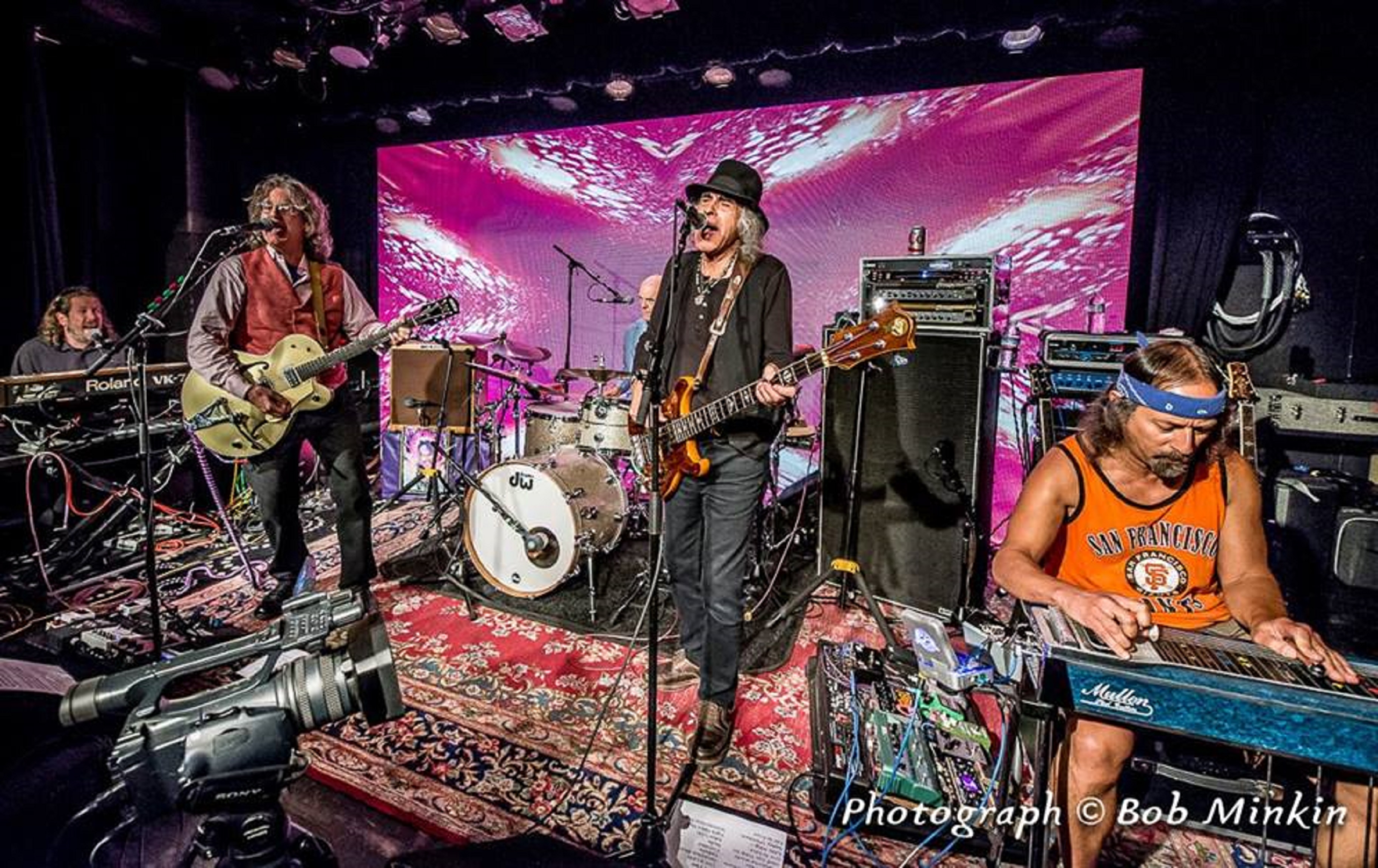
In the midst of the “Fare Thee Well: Celebrating 50 Years of Grateful Dead”, Grateful Web talks to Roger McNamee of Moonalice. McNamee shares candidly Moonalice music, technology, their philosophy and vehement choice to live and play by their own credo -- perhaps similar to that of the Grateful Dead – to thrive – and have fun -- in today’s music industry.
GW: Hello Roger. Where are you at?
Roger: I’m in the Bay area. There’s a local band here that’s having their 50th anniversary reunion – that means it’s all hands on deck.
GW: You’re performing at Sweetwater today.
Roger: We had one last night and we have another tonight – a couple of sold out shows with Jason and his friends. [Jason Crosby & Friends] Last night, Stanley Mouse was there. There was an exhibit from the Haight Street Art Center of some of the original art behind the Grateful Dead iconography. So, we had the original paintings from Live Dead – the album cover. We had Rick Griffin’s original art for the 25th Anniversary logo and few other things like that. It was really fun. It was a just great celebration.
GW: The reunion is a separate event from the Sweetwater concert?
Roger: I’m talking about the Grateful Dead reunion in Santa Clara. Because of the Grateful Dead reunion, every show in the Bay area has an extra thing because there are 30 or 40 thousand people in from out of town. I want to say there are probably six or seven Grateful Dead theme shows tonight. There were only three or four last night – the pre-preshow stuff. We happen to be playing in Bobby Weir’s venue - and that’s a good thing.
GW: That’s sold out tonight as well.
Roger: Right, last night and tonight. It’s such a wonderful place. If you ever get out here, you have to visit it. It’s almost a perfect venue from a fans point of view. It’s not huge. Capacity is 300. Great food. Awesome audio. Everything sounds really good. Bobby and the team that put it together did an amazing job.
GW: That’s special for you guys to play there.
Roger: We play here a lot. It’s our home venue. Yes, it’s special because it’s one of our local places. In San Francisco, we play there and Slim’s the most. We also play at the Great American Music Hall, Terrapin Crossroads, the Ashkenaz, and others. There are a lot of venues in the Bay area and we get around to most of them.
GW: Well, you answer my first question about playing at Sweetwater.
Roger: Let me give you a little bit more. It’s very old school San Francisco. The people who work there are all our friends. We work with them to create unique experiences – and not just us. When Steve Kimock does his residency there, they work really hard to craft really special, really fun things in the old Chet Helms Family Dog style. You’ll have thematic nights. You’ll have mix art with music. You’ll mix books with music. Jason and I did a great show as the Doobie Decibel System where the drummer from Zero, Greg Anton, came down and talked about his book – he wrote a thriller about a musician called Face The Music. It’s a completely awesome book. So, we had him come down, talk about it and sign copies. It’s that kind of place.
GW: Right.
Roger: This is special time to be a musician in San Francisco. It happens by pure accident about a year ago a couple of our most successful jam bands had members who had children. The bands couldn’t tour. In one case, a key player who’s also in another band had a world tour. So, both ALO, the Animal Liberation Orchestra, and Teal Leaf Green were not active for a while. The result of which was that a whole bunch of great musicians were free agents. Stu Allen had left JGB. James Nash was around – from The Waybacks. They weren’t touring that much. You had Reed Mathis from Tea Leaf Green. You had Steve Adams and Lebo [Dan Lebowitz] from ALO who were just around a lot. You had Jason Crosby. So, what wound up happening is that this notion of somebody in France began to happen. Initially, it’s a way to do something on Monday and Tuesday nights when the place would otherwise be kind of quiet. But, it turned out to be so successful that now that whole thing can be any night of the week. We built this incredibly creative thing because it’s different players and different player’s music. Last night, I want to say we had Brian Rashap and Mother Hips was there. Steve Adams. On bass, you had Pete Sears, Brian, Steve, me, Jason…I’m trying to think who else plays bass. We had three drummers: John Molo, Jay Lane, Cochrane McMillan from Tea Leaf Green.
GW: Is this normal for all these guys to show up on a given night?
Roger: For these friends show, it’s completely normal. I would say every other week there is one of these friends shows now. It started at Sweetwater. A different thing happened at Terrapin Crossroads, at Phil’s place [Phil Lesh] where they used the bar. In the bar gig, initially it was Midnight North, which is Graham Lesh’s band. They got the thing started by bringing in a lot of people to sit in with them – everybody and their grandmother. Next thing you know, five nights a week in the bar there is a friends band – just a collection of cool people. These are not gigs that pay a huge amount. But, they pay and there’s a lot of visibility and a lot of audience. It’s actually a cool thing because Phil Lesh and Bob Weir are effectively paying for it. I want to say it started a year and a half ago. It really picked up momentum about six months ago. At Sweetwater, you’ll see Lebo, James Nash and Jason do some of these friends shows. Jason’s I think has been the most successful but it’s the same people at all of them so it doesn’t matter. You get all sorts of people. Shana Morrison was there last night as she usually is at the friends shows. She’ll do a couple of songs. Tonight, Reid Genauer from Assembly of Dust and Strange Folk will be there to do some songs. You never know who’s going to show. Sometime Weir shows up.
GW: These are not your typical shows.
Roger: That’s what these shows are. What’s cool is all these people get to play with each other. Now that it happens at least once a month and sometimes a couple of times a month, the repertoires are getting pretty tight. The San Francisco music scene is more fun now than anytime in the last 25 years that I’ve lived there. Which is not to say there hasn’t been great music throughout, but there is this creative thing of people getting together and taking music to where it’s never been before. I’m really lucky because we have Moonalice and the Doobie Decibel System. I personally get a lot of swings at the ball – I get to play this a lot of different ways. The music place is a tough place to be right now economically and this has really helped. It’s really helped a lot of people you know…pick up a paycheck while they would have been ordinarily more or less unemployed.
GW: This is good for Moonalice as well?
Roger: Unbelievably good. It’s a scene. If you will, we do the same thing. Participating in these gigs we sell a lot of tickets and it’s huge fun. Our players play with their friends.
GW: It’s fun for the fans.
Roger: It unbelievable. The audiences here are into it. If you go to Coachella, your expectations are to hear polish versions of songs on the radio. If you go to Sweetwater, you have no idea what you’re going to get. You can be sure of one thing. It’s not going to be the polish version on the radio. My point is San Francisco can be tough. It’s such a magnet for big bands that the local scene sometimes hasn’t been as generous to up and coming bands as some other cities. What’s weird and for whatever reasons, thanks to Bob Weir and Phil Lesh, there is this whole new scene that’s developed. I don’t know where it’s going to go or how long it’s going to last, but man it’s fun to be part of it.
GW: Moonalice initially started to create this 60’s San Francisco sound.
Roger: Yes, that’s T-Bone Burnett, the guy who did O Brother, Where Art Thou?. I think O Brother, Where Art Thou? was the largest selling soundtrack of its decade and maybe at one time, ever. It was hugely successful. T-Bone got the idea that he was going to produce a series of American Roots albums. If O Brother, Where Art Thou? was kind of Hill Country Bluegrass kind of stuff, he wanted to do every other categories of Americana music. He initiated three projects more or less in parallel. One was Raising Sand, with Alison Krauss and Robert Plant. Another one was for Elvis Costello and the third is Moonalice. In each case, his theory was, instead of starting with an existing band, he would have these artists put together a new band and start all over again. Of the three he did simultaneously, Raising Sand was the huge winner. It got the Grammy. It sold a zillion copies and had a successful tour. Elvis’s album disappeared without a trace. Our album disappeared without a trace. But, they’re brilliant albums. I’m sure Elvis is incredibly proud of his and we’re proud of ours. You just couldn’t compete with Raising Sand. It was too big. And, no worries. It was no problem. But for us, it was as a huge positive and it forced us to look around and leverage what was in our own local community – so Twitter, Facebook. We figured out all these ways to build an audience. In a sense, the genre of music we got hit by – San Francisco Psychedelic – is almost the perfect one to do that strategy. There are jam heads all around the world. If you’re into jam music, you’re always looking for new stuff. So, there’s the nourishment of putting things out on the web and letting people sample it for free. We all grew up as Deadheads. We always thought that the ethos of the Grateful Dead for the 70’s was when you signed up as a Deadhead, every once in a while you get a newsletter, periodically they send you a small LP, and then in ’76 you got this offer to buy these tickets when they came back out of retirement. That’s what we grew up with. That’s the ethos of music we really like. We’re organize our whole thing as that as the philosophy. There are going to be all these bands that are tributes to the music of Grateful Dead. I’m going to say we are much more attribute to the philosophy of the parking lot and all the things that made the Deadheads: art, posters, music, photography, crafts and all the stuff people want to make. So, Moonalice is kind of an excuse for a lot of creative people to do their thing. We give them a lot of room. We don’t charge them so they can really build a business. We don’t police them except to say, look don’t embarrass us.
GW: Moonalice is techy – broadcasting concerts in HD.
Roger: Check out last night's show! [http://www.moonalice.com/videoplayer/2015-06-25/25127] That had a camera position where you can really see the light show. I was watching a bit of it on the way home and it looked great. We now have an LED wall and damn it looks good.
GW: I saw something like that in one of your videos. You guys try to stay on top of the technical area?
Roger: It’s not that we try to stay technical. That’s not the right way to think about it. The right way to think about it is that we live in the world of technology. Our community is loaded with people that know that.
GW: You embrace technology.
Roger: I didn’t even have to do that. If you go back to the beginning of the computer industry, people who were born in the mid 50’s and grew up in the ‘60s who listened to our kind of music started it. There was a reporter who wrote a great book, What the Dormouse Said. It’s about the interrelationships of essentially psychedelics – both the drugs and music…and the technology industry. To say that the two have a lot in common is a gross understatement. The personal computer industry was started by hippies. We don’t have to do anything other than be receptive. Steve Jobs famously said never trust anybody who hasn’t taken acid. That was the philosophy of the personal computer when it started. My point is we are surrounded by people our age who know a shitload about technology. They’ll go, “hey, I got a this really cool idea. Do you want to try it?” Unlike other bands, the Grateful Dead’s automatic reflex is to say ‘yes’. Well, we thought that’s a good idea – how about if we just say yes. Do you know how our videos got started? We didn’t have a plan at all. A drum tech, a guy name Glenn Evans, who is by the way the drummer in the one of the most successful metal band (Nuclear Assault) in the world is now doing a global stadium tour. He hurt his back so he wasn’t able to play for a few years and he was drum teching for us. He bought a video camera and asked to video our show. Hell, that’s sounds like a great idea. He put a camera behind a soundboard. A fan said he’ll give him five bucks for a copy of the video file. Really?
GW: Of the video?
Roger: Of the video. He was making DVDs and selling them for five or ten bucks. He got a second camera, doing two and mixing them to make the video look better. That worked out pretty well. Then, he got a third camera and suddenly the time it took him to mix was a month for every show. It wouldn’t have been a problem except we were playing 10 or 15 shows every month. After one month, he’s 14 shows behind and after two months he’s 28 shows behind.
GW: When you say mixing, is he mixing in sound with video?
Roger: It’s like a three track video file if he wants to take the best angle to make one composite. He was taking three versions with different angles and mixing them into one – cutting and pasting. He was doing what a movie editor would do. Then, somebody said why don’t you just do a live mix. We’re all going, “what’s that?” I didn’t know anything about video. Instead of mixing afterwards, you mix it while the show is going on. You have a director. We’re not going to have cameras guys; we’re going to put all cameras on mic stands. And, Glenn is going to do a live mix while the show is going on. He knows the music and he knows where to make the cuts. That’s how we started. We did a first live one and we did it on a service called Live Street when it was first starting out. They had this deal up to 50 simultaneous viewers – it was free. In the first show, we hit 50 viewers sometimes in the first set. Glenn gets a phone call from Live Street going “dude, we need a credit card or we gotta shut you off.” We had to give him a credit card at the set break. We said we got something here. So, we borrowed all the equipment and the guy we borrowed it from let us keep it for a couple of weeks. We were doing all that with WiFi in the hall. However, hardly in music hall had enough bandwidth to do video. What can we do? We can use cell phones. We put together six cell phones for enough bandwidth. But, you know how bad it is if you only have one bar of bandwidth. No matter how many phones you have, if you only have one bar then you only have one bar. You can have one hundred phones and not get data. This was an attempt to do 480p. The network wasn’t good enough – 3G phones.
GW: Are you guys musicians or engineers? [laughing]
Roger: Hang on, the musicians weren’t doing this. Guys were joining our crew were doing it.
GW: Ok.
Roger: You follow me. They were all musicians. They weren’t in Moonalice but they became part of our crew. Long story short, what happened was in the beginning you can only broadcast to a pc. Then a bunch of things happened. Imagine each show was for hours. We were doing a hundred shows a year – that’s 400 hours of broadcast time. Hardly anyone on earth does 400 hours – baseball teams do but that’s pretty much it. 400 hours was a ridiculous amount of broadcast. For some reason, our service provider guy took away our bandwidth. We had to find a new guy. We stumbled upon some guys who had a new dish that was only two feet across and can fit in a suitcase. That changed everything. Suddenly, you can take all this stuff on the road. Since these were new, we essentially became their tester and we got a great deal. Nobody was doing that many hours in that many places for testing their network. We were providing them with valuable research data.
GW: You need a lot space for all that data?
Roger: It’s practically free – this is Silicon Valley. They give this stuff away. In fact, we just got a new deal with Akamai for storage – and it’ll cut our storage cost in half. You’re right; we have tens of terabytes of video. Now, we broadcast in 1080p so the files are huge. Looking at them in 16” display is great. We’ve done about 500 videos and I think 350 are in HD – that might be high.
GW: I saw a YouTube video of a businessman, investor, Yale grad, venture capitalist name Roger McNamee discussing HTML 5 compatibility. Is that you?
Roger: Yep.
GW: I thought I’d ask. I don’t believe everything I see on the Internet.
Roger: Yeah, I’ve been playing music professionally my whole life. I was in a band in college that should have been successful. One of the guys quit and we didn’t realize we were just supposed to find a new keyboard player. We let the band breakup. I had huge student loans and nobody to support me. I had to get a real job. Through a series of accidents, I wound up having a successful day job career.
Meanwhile, I’m playing 1500 shows in the last 20 years. I’m not doing much business stuff anymore. I’m pretty much a full time musician now. I did the tech thing for a long time and I’ve been gradually freeing my time up over the last four years. Now, it’s 125 shows a year. I don’t have an office anymore and I don’t’ worry about that.
GW: Moonalice's initial vision to create this 60’s San Francisco sound, is that where you guys are still headed?
Roger: Listen to last night show and tell me. Music is in the ears of the listener. Our goal is to play music that people like us likes to listen to. If you listen to last night’s set, you’ll hear it falls into a certain style you would find that is totally recognizable.
GW: I was listening to a few tracks: “Blink of an Eye”, “Dance Inside the Lightning”, “Kick it Open”, etc. Moonalice sounded great in my car and I’m sure you’d sound great live.
Roger: Some of those were from a long time ago. Do me a favor? Listen to some stuff from 2014 and 2015. In fairness, we have evolved a lot. I’ll give you some covers of the songs you would know from what we played last night. We open the show with the only Grateful Dead song we played last night -- “Might as Well”. Then, we played two songs together from the Derek and The Dominos Layla album – “I Looked Away”. We did “Across the Universe” from the Beatles. “Eight Miles High” by the Byrds. Those were the covers from last night. Like the Dead, we do a lot of rockabilly songs and a few country songs. We’ll do “Twenty Flight Rock” by Eddie Cochran and “Summertime Blues”. We do “Can’t Buy Me Love” from the Beatles and “Revolution”. We don’t play a huge numbers of covers but we play a lot in each show.
GW: How do you choose your covers?
Roger: It sort of when somebody wants to sing it – that’s usually the way it starts. Pete really wanted to do “Across the Universe”. I wanted to do “Stuck Inside of Mobile with The Memphis Blues Again” and “Revolution”. The first time you try it and if it goes well, people get excited about it. If it doesn’t go well, you’ll never hear from it again. What’s funny out here is that even though we’re all Deadheads, we know practically every Dead song, we’ve all played with members of the Dead – John was the drummer for Phil for years, Barry played in Phil’s band, Pete played with Jerry, we’ve all played with Bob Weir and Mickey Hart because our old band used to back those guys up when they did political benefits.
So, the Bay area it’s the Grateful Dead all the time. We typically don’t play that many Dead songs simply because everybody else does. But, it’s not that we can’t. [laughing] This year will be our fourth straight year of playing Grateful Dead night at the San Francisco Giant’s ball park. For that, we play all Grateful Dead’s.
GW: Of course. I know you guys tour quite a bit.
Roger: 90 shows a year.
GW: Do you find time to write?
Roger: It turns out that’s really easy. We typically don’t write together. Somebody writes the core of the song, brings it to the band and we finish it together. Pete Sears used to write one song a year and now he writes one a month. Pete’s songwriting has blossomed – it’s amazing. My songwriting has gotten a ton better and prolific. Barry has been writing a lot of instrumentals. Next week, we’re actually going to get together for a couple of days to work on new songs. John’s got some drum beats to build songs on top of. That has really worked successfully for us. The reason I wanted you to listen to our old stuff is because our repertoire today is mostly songs we've written in the last 12-18 months. We still play songs from the old days. Last night, we played “Tell Me It’s Ok” and “Fair to Even Odds” which we played from the beginning of the band.
Last night, we’ve played “Tunnel 64” which we’ve only been playing for three weeks [https://www.youtube.com/watch?v=M1mKYoq9FC8]. “Summer Rain” is a year old [https://www.youtube.com/watch?v=2iSfYovB-p8]. “High Five” [https://www.youtube.com/watch?v=dtQSDmRumlI] and “Summer Rain” we just recorded for the first time this year.
GW: “It’s 4:20 Somewhere”, that’s a new song.
Roger: That’s a team songwriting thing. I have a portion of it. We have 4.6 million downloads there. We save it for special occasions. There are certain situations that cry out for it and that’s when we play it. [https://www.youtube.com/watch?v=iH2tX0Q3U0o]
GW: Why do you think “It’s 4:20 Somewhere” resonates with fans – 5 million downloads?
Roger: With all things in culture, timing really matters. You can see attitude towards Canada has really changed dramatically. You live in Denver – you can see it in your own life. When we put that song out roughly five years ago, we were right in front of all that and we just happen to hit the timing exactly right. Facebook was exploding. Because we use Facebook as our primary distribution mechanism, that was a piece of dumb luck you can never reproduce. You can never do that on Facebook again. It’s a band nobody has ever heard of. Now, people’s Facebook habits have settled. When we did it, people's habits had not settled and we got a lot of benefit from that.
GW: Moonalice as a group has a favorite song they like to play?
Roger: It’s a great question. It would be interesting to see what people said. I think everybody has a different view and it does evolve. Right now, the one that is growing the most where it’s getting most interesting is an instrumental that Barry wrote called “High Five”. We just recorded it and that album will come out, knock on wood, in a few months.
GW: Is the song available out there?
Roger: Yes, it’s available in live recordings. [https://www.youtube.com/watch?v=dtQSDmRumlI] You can listen to last night’s version of it. There is no individual crop version of it yet because we haven’t put the song out. We play it every third night. We played it last night. We played it in Oregon last week. I think in terms of long term durability and probably the fan favorite is “Tell Me It’s Ok”, which is the song that finished the show last night. [https://www.youtube.com/watch?v=ishmsW23dTA] If you said we had a radio show and we can only play one song, that song would be a song of peace called “Joker’s Lie”.
GW: Thanks for the tip.
Roger: It just keeps evolving. People our age, if they’re really lucky, are still in the heritage act they were in when they were 20 or 30 years old. In which case, they’re playing 30 shows a year making a ton of money for playing the same 20 songs in the same order every night. That’s the heritage act – you’re playing the hits.
That’s the best gig out there. My favorite example is when we’re playing a gig in New York. Jay Jay French, founder of Twisted Sister, comes up to us and says man I love what you guys are doing. I thought dude, you’re Jay Jay French, what do you mean you love what we’re doing? He goes look I love what I’m doing. I love Twisted Sister. It’s really awesome. But, we play the same 17 songs for four years over the last 20 years. That’s what people want. He said I would love to be in a band that you can play whatever the hell you feel like. We played in Oregon four consecutive nights and we didn’t repeat one song. There’s a cost to doing that and there’s a benefit – the benefit is spiritual. If you’re not quite so lucky, you’re probably playing in a tribute band. In which case, you’re playing the same 40 songs in the same order night after night but they’re someone else’s songs.
GW: Going back to Jay Jay French’s scenario, it’s what the fans want.
Roger: It’s what the fans want. Twisted Sister is smart. They give the fans what they want. Can you imagine going to see Paul McCartney and not hearing any Beatles song? That would suck.
GW: Yeah, I need to hear “Yesterday”.
Roger: I like to hear something better than that – like Sgt Pepper or We Can Work It Out. The point that Jay Jay was making was that if you’re really successful in music, it does become a business. As a business, you have to give the customer what they want. Your creative license is greatly reduced. And, that’s not a bad thing. Let me give you an example on the other side of the equation. Bruce Hornsby. Bruce has always insisted on playing new stuff. He now plays in places smaller than Moonalice because people want to hear the hits. And, he doesn’t play them. The point is he’s willing to accept that. That is his choice.
GW: How does Moonalice reconcile all this – trying to go about business, making a living and playing what you want to play?
Roger: I guess what I would say is at heart – we’re hippies. We have created a collective in Moonalice where we have chosen a path of maximum creativity. Like all bands, we had a period of invest. Financially it’s a struggle. But, it’s ok. We’re in it for a different set of things. That question is a really good question for a lot of bands but it doesn’t quite match our situation. We’re in it for different reasons. Whether you like those reasons or not, we’ve made those choices the same way Bruce Hornsby has and other people have. There were other paths available to us that I think would have been more financially successful than the one we chose. But, it might have not been as spiritually fulfilling and for sure it wouldn’t have produced the creative thing that this has. I mean last night's poster was 841 – 841 posters in 8 years. That’s a lot. Stanley Mouse was at the show last night signing posters for people. Who does that? Not enough people is the answer.
GW: The posters are amazing.
Roger: When we started out, we had these guys that wanted to do posters. We’re going to do a different deal than everyone else. Poster art has been made by bands and promoters forever. We said look we’re going to do a different deal. We’re not going to take your copyright which everyone else does. The financial deal with working with Moonalice is not better than others. But, there are two huge advantageous. One is there's way more work with us. And two, we don’t take the copyright. That is a big deal. If ever somebody wants to license it for something, than the artists get paid. We created this really friendly, very hippie model thing with the artist to the point where they got so good at it that somebody has contributed a building in San Francisco where we’re going to have an art center – The Haight Street Art Center. We get possession of it in November – it should open in January or February. It’ll be a combination of a really great print shop for them to make their art and also a gallery for them to show off stuff – essentially a museum. Because of this art center, last night at the show people are now contributing great art for the museum. Last night, we were showing some of it off. Haight Street Art Center has the original painting for Live Dead – the album cover front and back. They were showing off Rick Griffin’s original paintings for the 25th Anniversary logo for the Dead. They had a whole bunch of Dead theme stuff plus Stanely. And tonight, Bob Minkin will be there signing his live Dead photo album book, which I think is the greatest book of Grateful Dead photography I’ve ever seen. The point is you come to our show and people like that they are there. That’s the vibe. So, your choice is to be incredibly commercial to maximize every penny or you can make it more fun than that. You only go around once. We’re not puppies anymore.
GW: You guys choose the latter.
Roger: Yeah, that’s our value system. Here’s the benefit. If you’re playing the same song every night or you’re playing a limited set list – I think this applies to Dark Star Orchestra as much as it applies to Twisted Sister – it’s really hard to get better when people expect you to do the same thing over and over again.
GW: You don’t grow.
Roger: It’s hard to grow. If you’re Dark Star, you have to play Grateful Dead tribute shows. You can’t go in there Rob Barraco singing Opera. That’s not how it works. In our thing, it doesn’t work that way. We constantly hear that Moonalice gets better and better. What it is really is that we keep doing new stuff. I guess we do get better but we are allowed to and we have this opportunity to create the impression that we really are getting better. Does that make sense. Those are the wrong terms. I mean people come not because they’re going to hear some specific song but they decided it’s ok to come to hear whatever song is played because whatever it is -- it’s likely to be played in a way it has not been played before.
GW: And you’re probably going to like it.
Roger: I’m saying when you went to a Dead show in the early to middle days that was true. Eventually, you got to the point where once they start “China Cat”, you know they’ll finish with “I Know You Rider”. Once they do “Scarlet Begonias”, you know it’ll wind up in “Fire on the Mountain”. With us, you have absolutely no fucking idea. We connect songs all the time but not in predictable ways.
GW: Roger, I appreciate your time. We can’t wait for you guys to come to Denver.
Roger: Actually, we’re going to be in Boulder this summer.
GW: Moonalice is going to be in the mountain town Frisco, in Boulder, and Denver – I think Moonalice is booked this summer – 20 or so concerts.
Roger: Think of it as playing roughly four shows a week, every week from March until the end of October [2015]. We squeeze our entire season into those months. We play three or four shows a week. When we come to Denver, we’re coming with Brothers Keeper. Those guys live in Colorado, which is really nice. We’ve done a ton of touring with them this year. Doobie Decibel System, which is my duo with Jason Crosby, we did a tour with them early in the year, January. Moonalice did one back east which was incredibly successful – in April or May. This will be our third run with them this year. We are super compatible with them.
GW: We’re looking forward to seeing you guys. That’s all I got Roger. I’ll leave the last word for you. Again, I appreciate you having Grateful Web today.
Roger: Hey listen. I love playing music. I love sharing music. I love being around creative people. I love the fact that music is a great excuse for people to be creative, do art and to do all kinds of things. It’s a load of fun. For anybody who hasn’t seen us, I just encourage them to go to our website. Listen to a few shows. Watch a few shows. [http://www.moonalice.com/media] Our theory is we spread our music for free. They can experience us and see if they like it before they spend money. We think that’s the way to do things. We’ll give you everything we’ve done up to this point. If you want to run away and join the circus with us, please come by. I think you’ll like the people you meet when you get here.
GW: Nicely said Roger. Thank you.
Roger: My pleasure my friend. Take care.
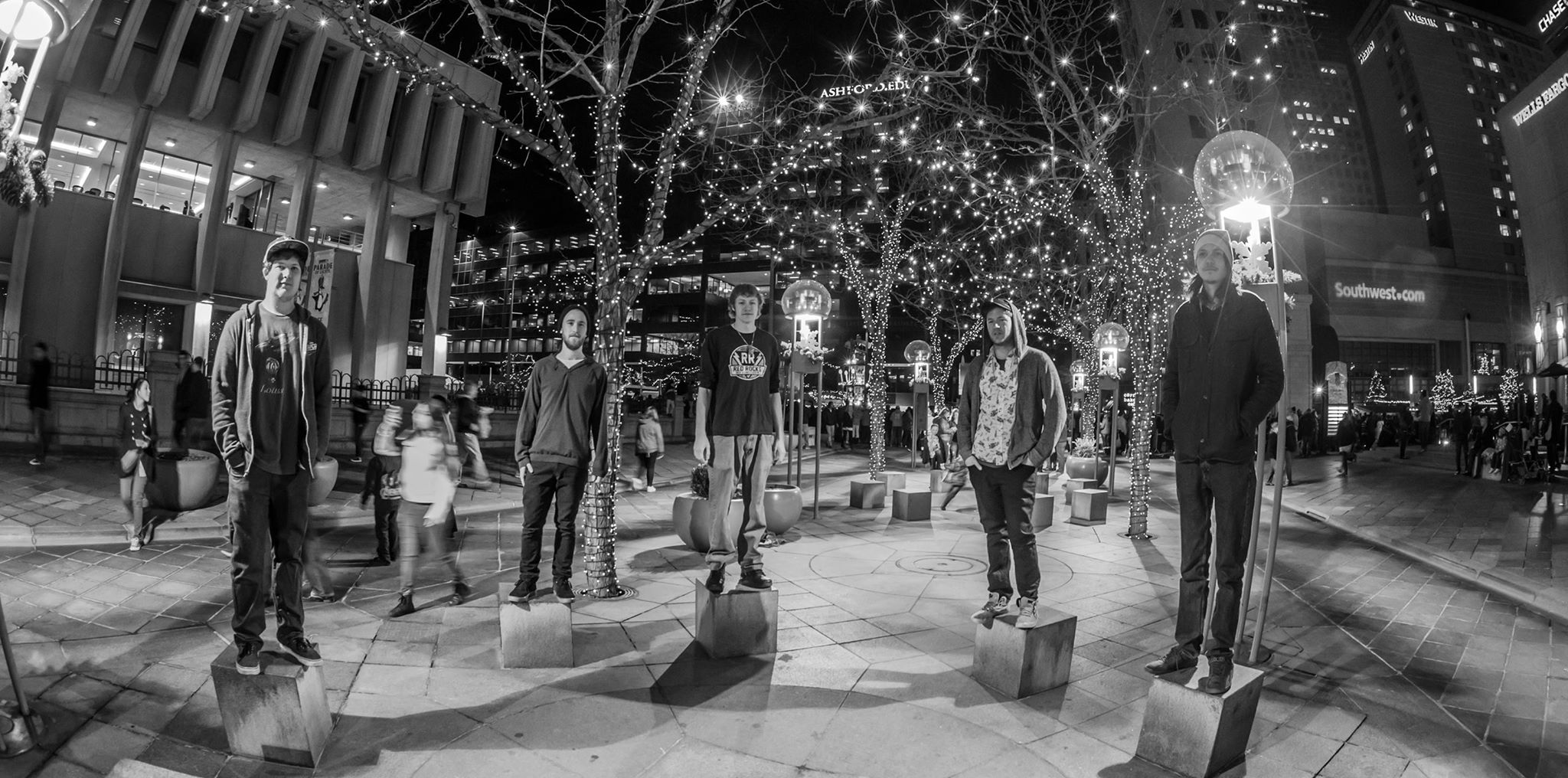
In and around Denver, swiftly permeating the Denver music scene and festivals is Greener Grounds. If you have not heard of this young, instrumental group, you will soon -- Greener Grounds is featured as the “Top 5 ARISE Festival Colorado Bands” in The Untz. Whether you are into jam, rock, trance, funk, dance, electronica, jam-tronica, psychedelic…the fusion of the previous, it doesn’t matter. Check Greener Grounds’ recent EP release, Photosynthesis. Grateful Web had a chance to talk to several members of Greener Grounds before their appearance at the much anticipated 2015 ARISE Music Festival.
GW: I appreciate your time today guys.
Greener Grounds: You as well, thank you.
GW: When and how did Greener Ground get started?
Roland: We started officially in January of 2014. We really started playing a lot of shows at the beginning of this year and near the end of last year. Everything has been moving quickly. We’re working as hard as we can, practicing as much as we can, trying to get better at our music and trying to take it as far as we can.
GW: You guys knew each other before the band?
Roland: Yes, Joe [Joe Shur – Guitar], Mat [Mathew Buelt – Guitar] and I [Roland Hansen – Keys/Synth] went to the same high school together. We’ve known each other for years. AJ [AJ Gillman - Drums] we found him on Craigslist. That worked out perfectly. Danny [Danny Littler], the bassist, AJ met him when he arrived in Colorado. Not sure how they met, but AJ bought Danny in, he jammed with us, and it seem to fit. So, there was Greener Grounds.
GW: Greener Grounds started out fast. You have an EP out there already, Photosynthesis.
Roland: Yes, that’s right. Photosynthesis just released earlier this month. All original, sidetrack EP. Our first recorded music as a band and we’re really excited about it. It’s up on iTunes, Spotify, Soundcloud, and the hard copies we sell at all our shows. You can also grab it on our website.
GW: All five tracks on the EP sound great!
Greener Grounds: Thanks.
GW: I like “Trails” [from Photosynthesis EP]. The whole guitar & bass 20 seconds into the track with the rapid drums and disco/synthesizer feel later into the jam. How did that track come about?
Joe: I pretty much come up with the concept of all our songs. And, we’ll collaborate from a riff or a bass of the song that I’ll make up – that’s how we come up with pretty much all our songs. “Trails” was written abruptly one day in practice. We just came up with that simple little riff. Danny came up with the keyboard riff to the intro of the song and we kind of took it to a dancy song from there.
GW: All your songs you can really move to and dance to them.
Joe: Yeah, we like to groove it.
GW: [laughing] Greener Grounds is an instrumental band. In developing songs, is it easier or more difficult without the vocals?
Joe: I would say it’s almost easier in a sense. But, it’s also kind of neutral – it really doesn’t have an effect to it because none of us have ever tried singing or writing lyrics. So, we really don’t know how it would go. We’re all new to songwriting so we’re putting all the effort into making the harmony and beat for the song. I feel like we’re seeing through our instruments when we come up with all our different grooves and stuff.
GW: You guys played at Sonic Boom this summer. STS9 played at the same festival. STS9 is mentioned as one of the band’s influence. Did you learn anything from them or any takeaways from playing with them in the same festival?
Roland: Yes, STS9 has definitely been a big influence on everyone in our band in some form or another. On a festival line-up with them was truly something for us. We’re playing ARISE Music Festival in a couple of weeks – a lot of great artists too. And, we play Resonance Music & Arts Festival in September 2015 with a lot of our musical idols as well.
GW: What can fans expect from Greener Grounds at Arise Music Festival – stuff from your new EP?
Roland: We’re definitely going to be debuting some new material as well as playing most if not all of the EP. Arise, we are looking forward to a lot. The first day before the festival starts is the Permaculture Action Day with the Polish Ambassador. Three of the five us are going to be up there doing that. Yeah, we’ll be up there all weekend. We’re playing Sunday at 7:00 PM on the Starwater People’s Stage. We also have a press conference with you guys [Grateful Web] on Saturday at 2:00 PM.
GW: I think the schedule is posted at Arise Music Festival website.
Playing at a music festival, say ARISE, is that different for you guys in terms of experience or preparation versus playing a traditional concert hall, say at the 1up in Denver?
Roland: We have kind of a different energy when we’re preparing for those sets because the festival sets there are a lot of attention on you. There’s always a good chance for new exposure to a lot of new people. The stakes feel a little bit higher. We’re always just very excited and ready to get out there and do it.
GW: The stakes are higher because some of your peers are there as well?
Joe: We say more because a lot of people who haven’t seen us, especially going out of state for festivals, it’s definitely different to see the out-of-state crowds, different crowds and different faces…more people that we don’t know. Those sets are something we look forward to and they’re going to be really fun.
GW: Yeah, like you said – more opportunity for new fans.
Joe: Yes.
GW: You listed some cool bands as influences: Zeppelin, Grateful Dead, The Motet, Disco Biscuits. Last on that influences list is Lord of the Rings. [laughing] How does Lord of the Rings come into play here?
Greener Grounds: [laughing] That’s because we’re all nerds. And, we like to get mystical with our music in a sense.
GW: Some of your sound is mystical. You're into Environmental activism – what do you guys do with that?
Roland: Getting involved with different environmental protection agencies, permaculture agencies, and different things like that. We don’t have any partnership right now but we are on the hunt. We want to do our part to help this planet and keep the grounds green sort of speak.
[Members of Greener Grounds will participate in the Permaculture Action Day with the Polish Ambassador: http://www.arisefestival.com/2015/permaculture-action-with-the-polish-ambassador]
GW: That’s where “Greener” comes from in your band’s name?
Roland: That was a part of it for me personally. It’s up to interpretation. I think for a lot of people it represents brighter/better days, better life and the move in that direction.
Joe: There’s also a new fresh start for us as a band too. AJ just came out here from Philly. Danny not knowing us before hand and now we’re starting a new chapter.
GW: Greener Grounds is starting out well from the hype I’ve heard.
A description of your music reads “psychedelic funk-tronica” – describe that for us.
AJ: Our music is a little hard to describe. I think everybody might have a different opinion. We take from so many influences and styles that we don’t ever sit on one for too long. I wouldn’t categorize us as anything. That’s why there so many different bands all falling under the same category as jam bands because it’s hard to put a label on it. We’re trying to build a unique sound. We’re trying to sound different. We’re trying to make our music danceable. I think the most you can say about us – for me at least – is that we like to play dance music with instruments.
GW: What would you say the difference is between you guys and say The Motet or STS9?
Joe: I wouldn’t say we’re that much different from a band like the Tribe. Because when you listen to an interview with them, they’re saying the exact same things. That, they don’t put a label on their sound and they’re doing what they like to do. They’re trying to make people dance. Motet is a funk band. We like to have fun on stage which is something you see at their shows. We like to put smiles on people’s faces – musically. We’re out there to make people dance, have fun, and feel good playing the music we’re playing.
GW: It’s hard it seems to be placed in such and such category. You guys are so musically diverse and have all sorts of interest.
Joe: We don’t want to put limitation on ourselves. If we call ourselves a funk band, we’ll get stuck playing funk. If we’re a rock band, we’re stuck playing rock song. Without any category to fall in to, we can literally do whatever we want. We can start...[moment of lost phone connection] in a hip-hop groove and make it feel good.
GW: Yes, exactly. Well, that’s all from me guys. On the horizon, Greener Grounds has the Arise Music Festival, some shows in Denver, and the Resonance Music & Arts Festival.
Greener Grounds: Resonance Music Festival is in Ohio at the end of September 2015, 24th – 26th. There are some great bands in the line up like Nahko, Perpetual Groove, and big headlining acts yet to be announced. We got tons of stuff coming up. We’re going to try to build more shows around Resonance Music & Arts Festival while out there. We have our local, upcoming headliner at Cervantes August 29th. We’re really excited about that. We’re hoping we can get that place completely packed out.
Other than that, we don’t have many places in Denver right now but we have tons of mountain stuff we’re working on. We have lots of unannounced dates confirmed in the mountains and outside Colorado. Lot of dates everyone should be on the look out for in the future. Greener Grounds, we’re really going to be moving this year.
GW: That’s great. Facebook is the best spot for your latest show schedule?
Greener Grounds: Definitely go to our website. Facebook as well, Soundcloud, Twitter, iTunes, Spotify and pretty much all music and social media platforms.
GW: Excellent. Looking forward to seeing you guys out there. That’s it for me. I’ll give you guys the last word.
Greener Grounds: Just a big thank you. We love you guys. We’ll see you at ARISE!
GW: Thanks Roland, Joe and AJ!
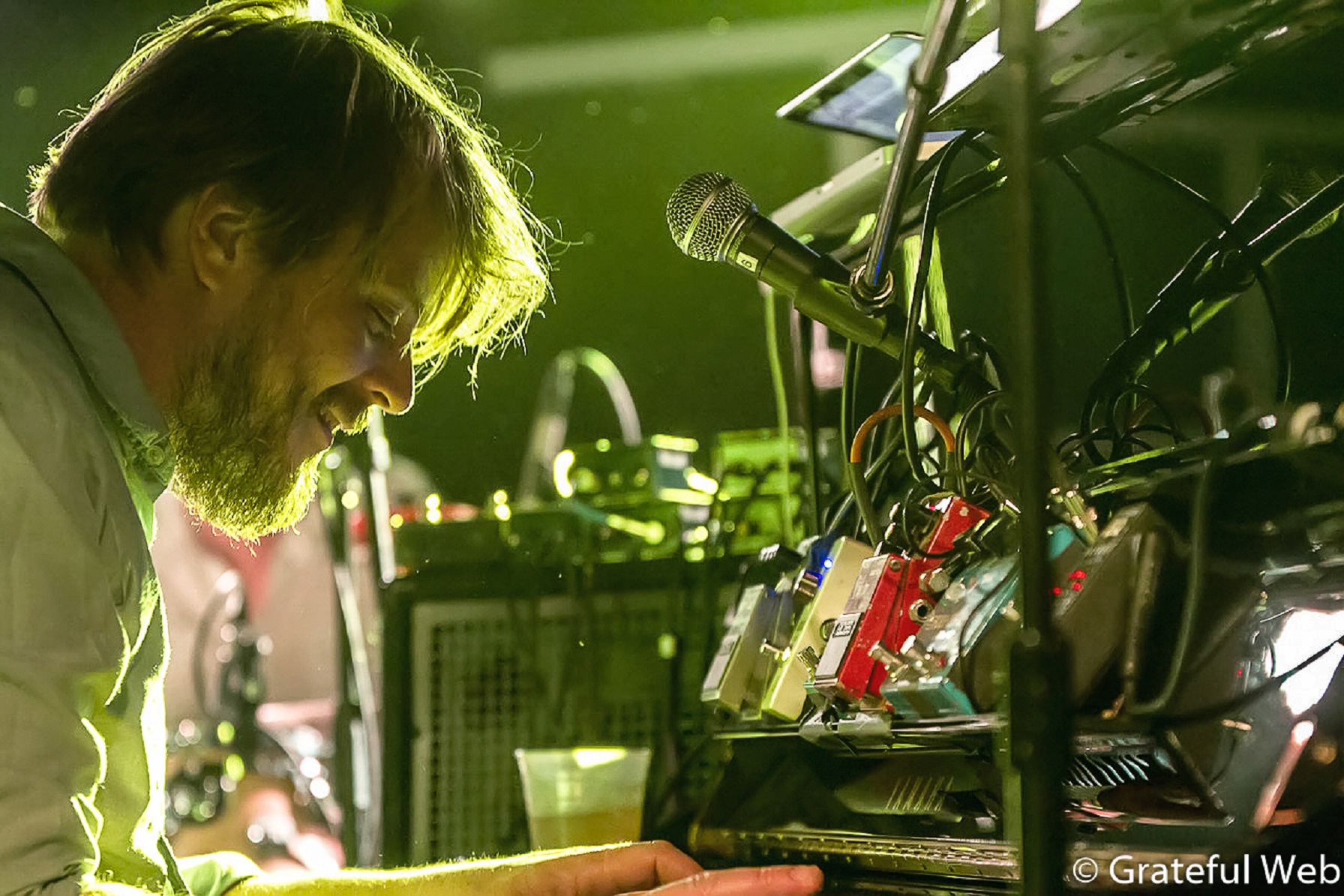
A live act virtuoso and seemingly always sparked by his curiosity and musical adventurism, Marco Benevento, is developing another instrument – his voice, which is featured in his 5th and latest record Swift. Just coming off his performance and celebration at the Gathering of the Vibes 20th anniversary, Marco graciously talks to Grateful Web in the late hours, just after midnight. Marco talks vocals, piano, Swift…goats, royal potato & Bob Dylan.
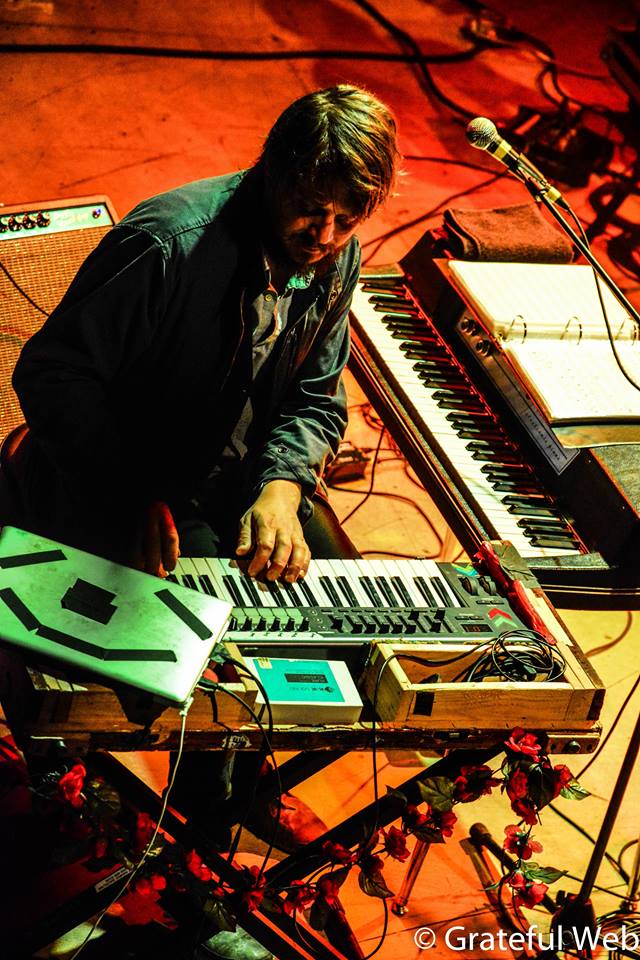
GW: Marco, this is Vinh from Grateful Web. How’s it going?
Marco: Going good. Sorry, I missed your call earlier. Reed [Reed Mathis of Tea Leaf Green] just sort of decided to spend a couple of days with me right after Gathering of the Vibes.
GW: No, it’s fine. How was Gathering of the Vibes?
Marco: It was their 20th anniversary. I just played there with Branford Marsalis, Warren Haynes, Joe Russo, and Jackie Greene. Reed was there playing with Billy Kreutzmann and his band. He just decided to come and hangout after the fest because he has a couple days off before his next tour – and he has not been out to my house.
GW: That’s cool. Wasn’t Reed part of your trio way back.
Marco: Yep, he was. He’s on the first three records.
[Marco Benevento first three albums: Love at Tonic, Invisible Baby, Me Not Me.]
GW: Your latest album is Swift, which is said to be your “boldest and most bracing” album of your career. Can you elaborate?
[Swift album: https://shop.royalpotatofamily.com/product/marco-benevento-swift/]
.jpg)
Marco: It’s the first record where I’m singing. The focal point is not really so much around the piano but it’s more around the singing and the songs. So, there is less improvisation and more…groove oriented music and doesn’t involve a lot of changes.
.jpg)
GW: Your last album TigerFace has two tracks or so with vocals. What were the factors that pushed you towards adding the vocal instrument?
Marco: The door opened with adding vocals to my music with Kalmia from Rubblebucket. She’s the lovely vocalist on TigerFace on the first two songs. I love Rubblebucket very much. To have her sing on it was such a blast. It was a treat for me because I’m a huge fan of their music. When I heard the vocals I thought, “oh, I should try to sing it myself”. So instead of missing Kalmia vocals when we’re playing gigs, somebody could actually take that role. I decided to do it myself. Realistically, we have five records out and one of them has vocals. Half the show is instrumental and half is more vocal oriented. I think in a night of lots of improvisation and instrumental music it’s nice to throw in some nice simple vocal melodies to change the night around a little bit. In a way, we get people’s attention more, they start dancing more and sing along.
GW: How’s the vocal endeavor going so far and is it going to continue?
Marco: I enjoy doing it very much and I’ve been doing it with various other projects. I’m learning a new instrument for sure but it feels very natural to do.
GW: Do you feel you’re more expressive with the vocals versus just the instrument?
Marco: Yes, it’s more expressive. It’s sort of hops into another genre in a way leaving the experimental rock and jazz thing. It puts it into this almost radio friendly sounding music.
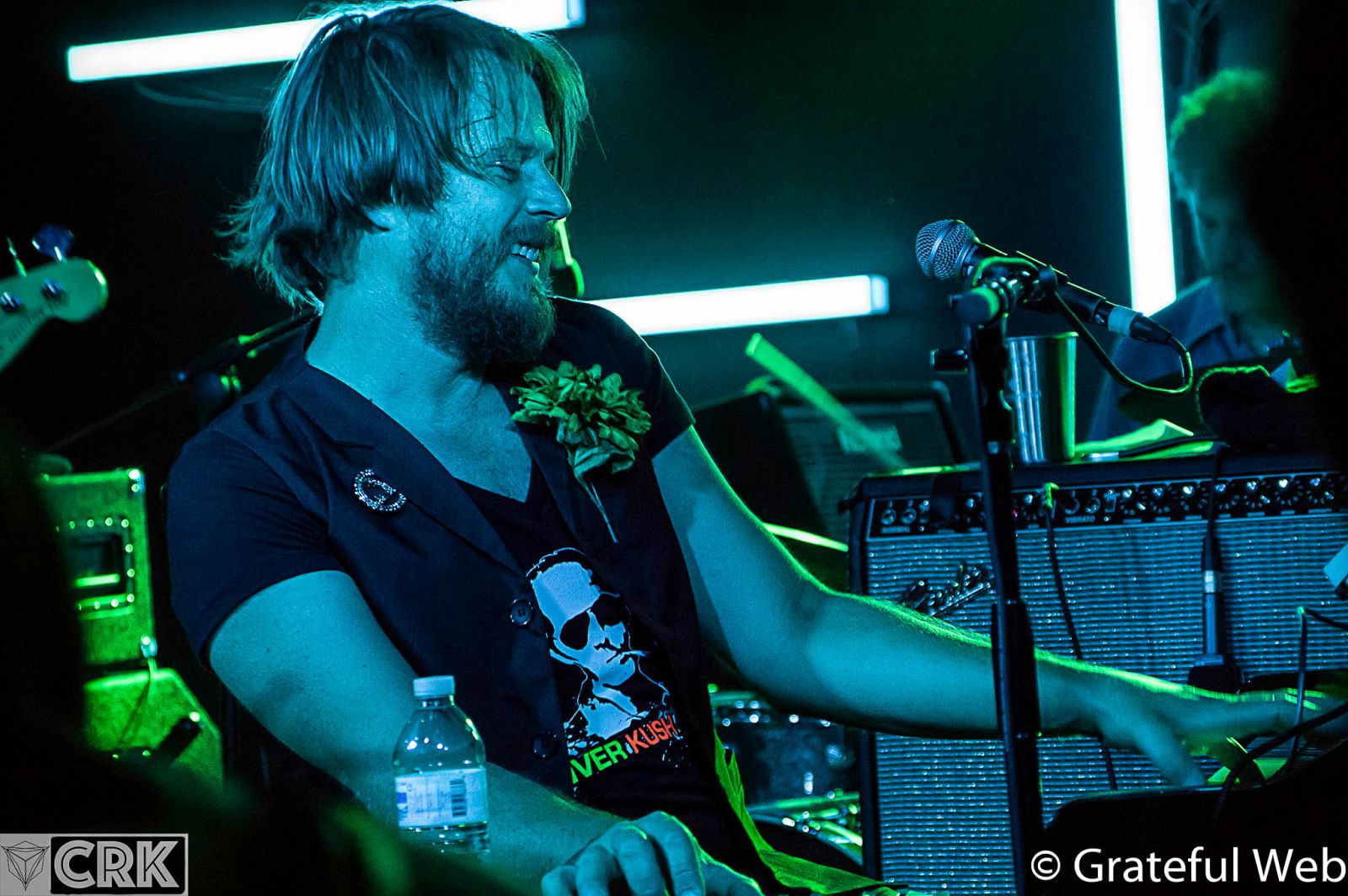
GW: My understanding was that Swift had been recorded and then you re-recorded the album with Richard Swift?
Marco: No, that’s not true. We went to the studio and recorded the record there. We had made some demos at my place. We also made demos in Oakland, California. Then, we just went to Richard Swift’s place and made the record in three days.
GW: You had quoted “I was sick of going back to my studio and turning a session into something else. I wanted my process to be different”. How was the process different with Richard Swift?
.jpg)
Marco: After we recorded, I left everything in his hands. He finished it all as far as the mixing, possible editing ideas and whatnot. I had never recorded a session and then taken my hands off the session, “alright, you mix it, let me know when you’re done, then we’ll get it mastered…I trust what you do”. I’ve never done that with my own band. It was nice to just play the music, leave, two weeks later get the mixes, and from a tasteful musician that I respect hear something that he feels is good. It’s like, ‘oh, cool!’. Richard saw the vision and he made it sound as good as he could. To me, it was nice and it was different. It was also cool to be sort of an outsider as far as the finish product goes. On other records, I’ve taken them home, overdubbed tons of keyboards, edited stuff around, made the ending the intro, the intro the ending and changed lots of stuff around – musically speaking. It was nice to just commit to what we’ve played. It was sort of a hands off experience.
GW: You’re obviously happy with the record.
Marco: Yes for what we did, that was exactly what I wanted to do at the time. I’m extremely happy with it.
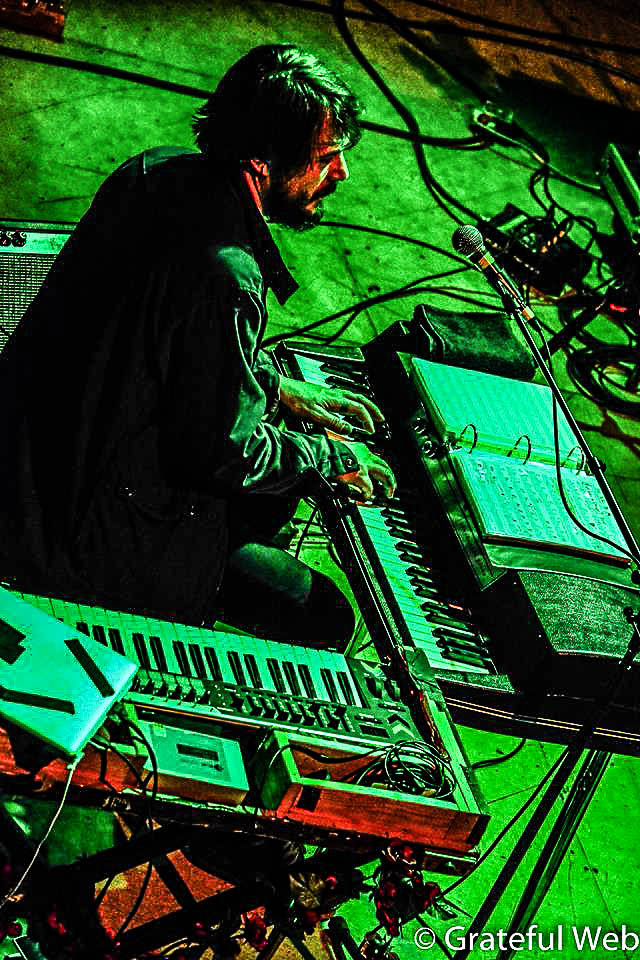
GW: That’s going to happen in the future as well?
Macro: The next time I’m going to make it in my own studio…inspired by Richard’s studio and all these other studios I’ve been to. I’ve collected a bunch of gear. I have my own place and I feel like I’m ready.
GW: There is a track on Swift – I just saw a kind of cool video on it. Actually, the whole album seems like a lot of fun including this video/track “If I Get To See You At All” at a farm house, young kids playing with you, and roosters running around. Any meaning behind that song?
[Marco Benevento Videos: http://marcobenevento.com/index.php/video/]
Marco: There’s really no meaning behind the song. The whole video came up because of my relationship with GoPro…works for GoPro. He sent me some cameras to make my first video for the record “At The Show”, which is a black and white video. Then, he gave me some more cameras to make another video and that was “If I Get To See You At All”. That was just my experiment with their cameras around my property. There were also some footages of some shows we did in the fall.
GW: Yeah, I saw that you had mixed some concert shows into the video.
Marco: Yeah, it was more my own experimentation with that camera. I was just messing around and whatever. I just decided to put it up on YouTube as the video for the song. It’s more like a personal journey for that particular time.
GW: Those are your kids?
Marco: Yep!

GW: Looks like they’re having a good ole time with you. I see roosters running around.
Marco: Oh yeah, we have a good time together. We have chickens and goats. We have bees as well.
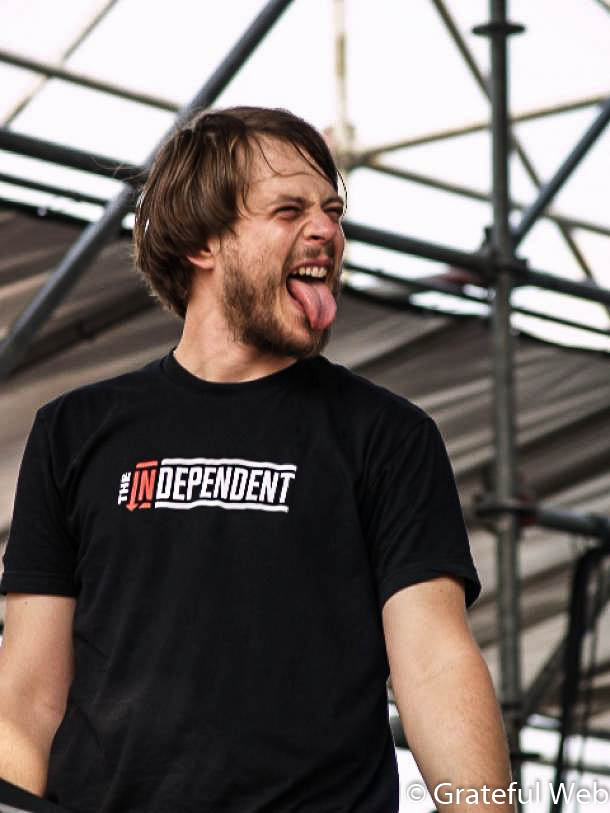
GW: Do you like living out there – in a more rural place like that?
Marco: Yes, I was in Brooklyn for ten years. Before Brooklyn, I was in Boston for four or five years. I did about 15 years of city living. I thought it was time to get some more space and live somewhere I can have a studio and have a little more room to raise kids. We have two kids. And, I have like over 50 keyboards/pianos so it’s hard to live in an apartment with all that stuff.
GW: Yeah, you definitely need more space. Speaking of pianos, a buddy of mine and I were at one of your concerts and noticed your piano with all the effects and I guess pickups attached to the back of the piano. What is that?
Marco: The way the piano is rigged up is pretty simple. There are what they call transducer pickups taped to the back of the piano. Basically, they allow me to have a quarter inch out on my piano. You can buy these things anywhere really. They have pickups for a cello, an upright bass or an acoustic guitar even. Then, it goes in various pedals and guitar amps and allows me to have distortion and tremolo delay on the piano itself which is very unique…and mixed in with the clean sound of the piano is my favorite thing these days.
GW: Yeah, we saw all that hanging off your piano and thought ‘whoah!’ Great concert – it was fun.
Marco: Awesome!
.jpg)
GW: That’s not a setup you learned at the Berklee College of Music?
Marco: No, it was something that happened by accident. I was at my house and trying to figure out basically how to get effects on the piano (live) aside from sticking a mic in the piano then running a mic into effects and what not – which would be disastrous. I was at my desk thinking about that. I happened to open a drawer that had this old acoustic guitar pickup in it. It was a Dean Markley $20 or $30 guitar pickup and thought what if I stuck this on the piano. It would actually pick up the sound of the piano because you stick it on the guitar and it picks up the sound of the guitar. It kind of sucks for a guitar because a guitar isn’t as loud like a piano. And, those cheap pickups don’t really work that well. But for a piano, it works great; it’s a lot louder because of the soundboard. So, I plugged that into my amp -- the one I used on the road, the Sears Silvertone amp. It has a tremolo on it. When I played the piano through the amp and turned the tremolo on, I was like ‘oh shit’; this is the beginning of something cool.
.jpg)
GW: [Laughing] And you’ve used it ever since?
Marco: Yeah basically, maybe like higher end transducer pickups that picks up and sounds a lot better. I also figured out which pedals can respond better to the piano. You can’t go to Guitar Center and say ‘I need a distortion pedal for a piano’. So, you have to really experiment with the distortion pedal because they’re all different.
GW: With that rig, do you have technical difficulties or failures at concerts?
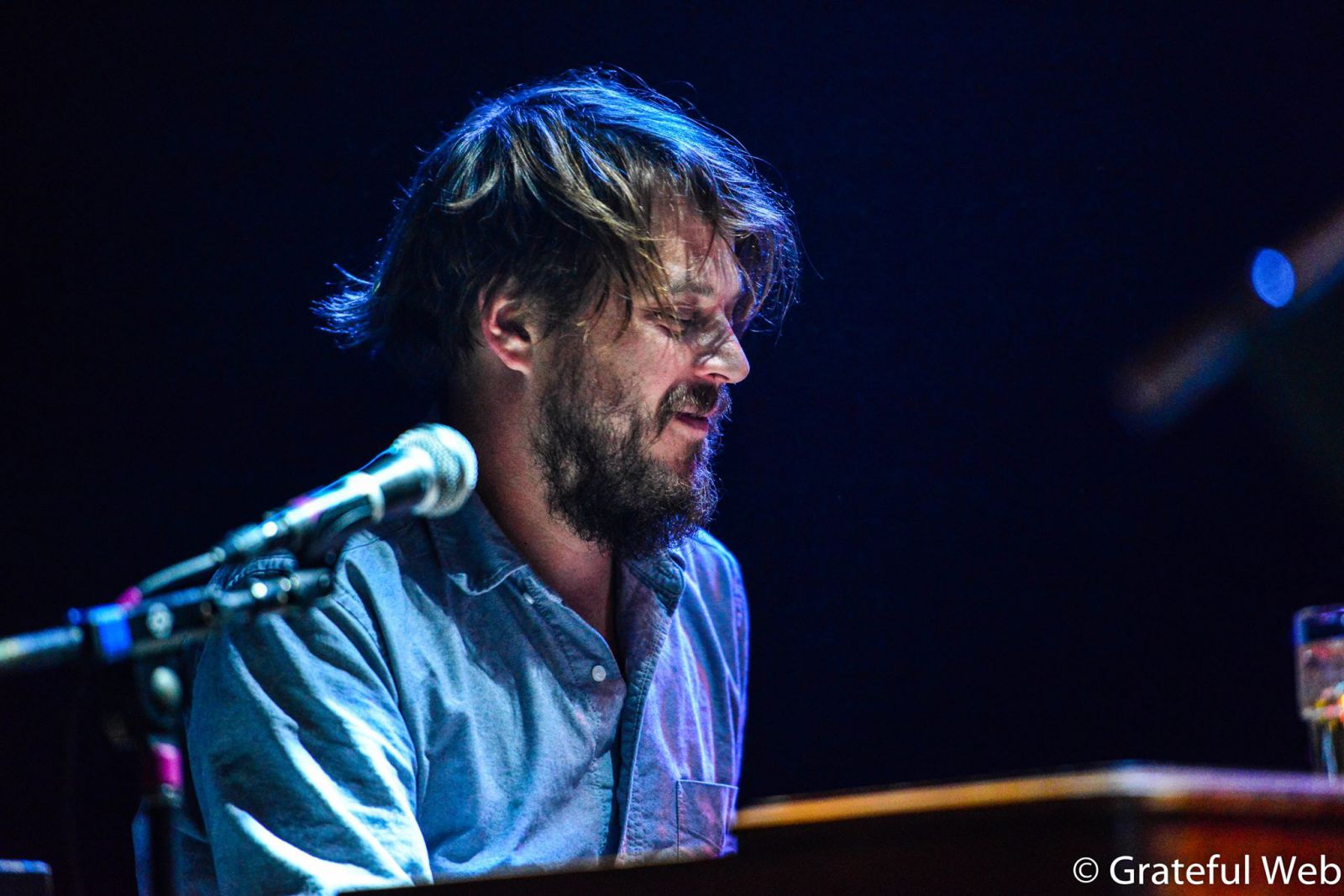
Marco: Surprisingly, the piano and the effects on my piano are the least of my worries. I’ve never run into any problems. Knock on wood with the piano. I run into problems with the vocals because I run vocals through effects as well. That could be tricky. Yes, for the most part, it’s been running pretty smoothly.
GW: Great. Last thing here. You co-founded the label The Royal Potato Family. What do you do specifically for that label?
[The Royal Potato Family: http://royalpotatofamily.com/]
Marco: I was the one that decided to use that name for the label.
.jpg)
GW: The Royal Potato Family
Marco: That was a name that comes from a joke that Bob Dylan told our drummer, Matt Chamberlain.
GW: Oh yeah? What was the joke?
Marco: The joke is ‘You got a royal potato family. You got a king potato, a queen potato and a princess potato. The princess potato turns 18 and it was time for her to go out and find a man to get married. She went on a date with the first guy and she brought him home. The king didn’t like him at all. So, she went out with a bunch of other dudes and found another one that she liked. She came home and the king said no no no this guy is a flake – try to find someone else. She went out for the third time. A month later, she finds Dan Rather. She comes back with Dan Rather. She tells the king I want to marry this guy. I’m ready. This is it. The king says you can’t marry him; he’s just a commentator’.
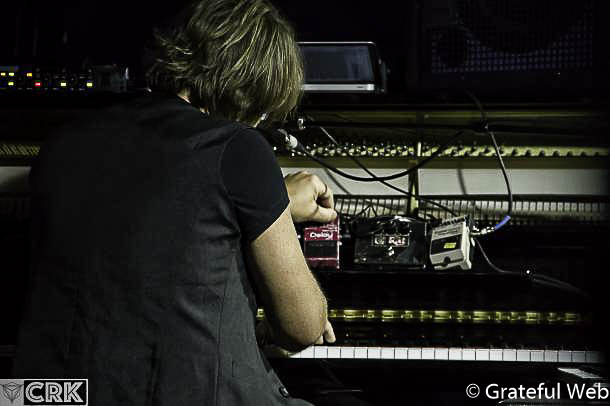
GW: [Silent pause]. That just went way over my head man. [laughing] It’s late. Ok, that’s all from me Marco. You got upcoming tour dates in August, looks like a busy tour schedule in October 2015 and an even a busier schedule in September 2015. [Marco Benevento Tour Schedule: http://marcobenevento.com/index.php/tour-dates/]
We’re looking forward to seeing you out there and hearing some more of you.
Marco: Alright, I’ll see you soon my man.
GW: Ok, I appreciate it Marco.
[The punchline of the Royal Potato Family joke eventually came to me 15 minutes after the interview. Texted Marco, I got it – ‘common potato’. Marco replied, ‘common tater’.]
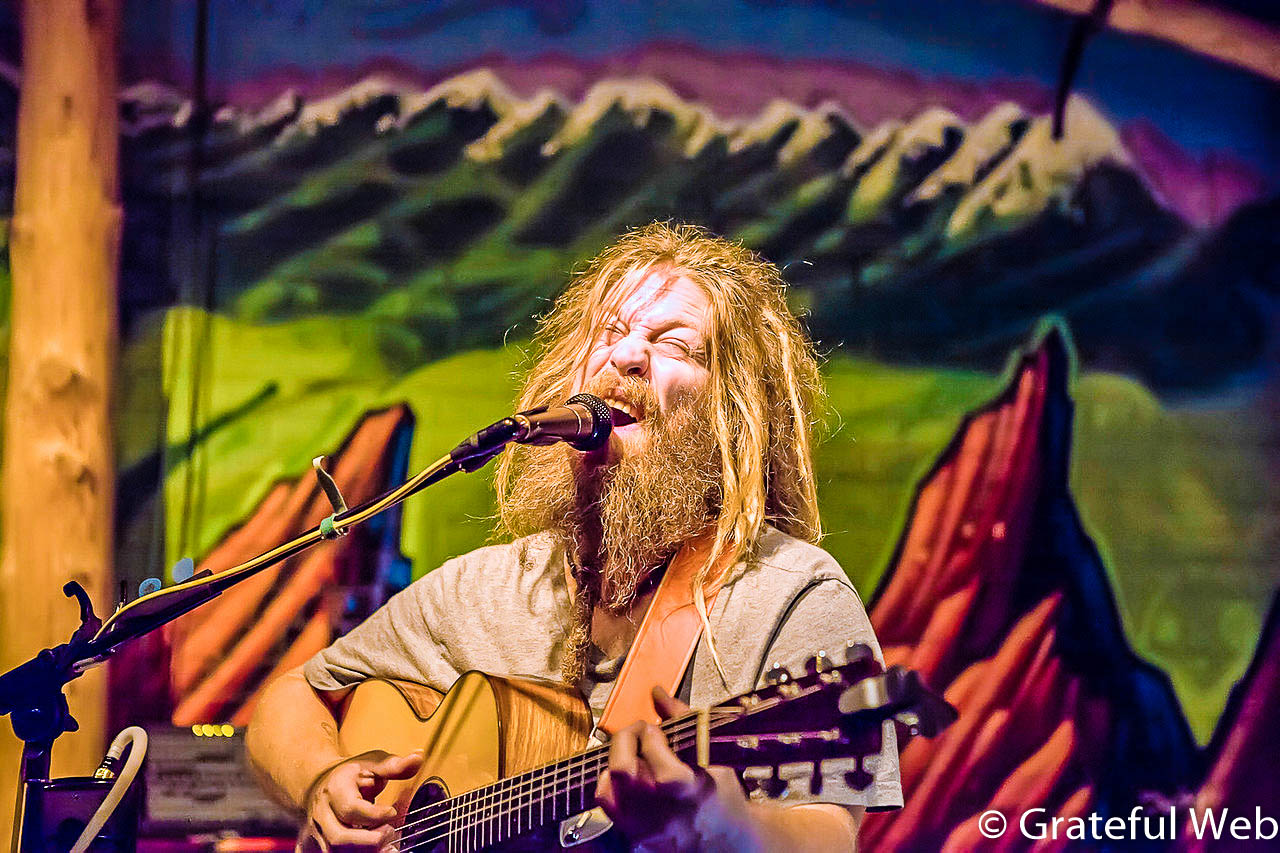
Before his appearance at the 2015 ARISE Music Festival, Mike Love graces his fans packed outdoors in a modest, standing patio venue in historic district of Denver. His latest record Love Will Find A Way will be released September 1, 2015 along with additional shows and festival dates across the US during September of 2015. Grateful Web sits with Mike Love to discuss his new album and his revolutionary music that is the focus of his rise.
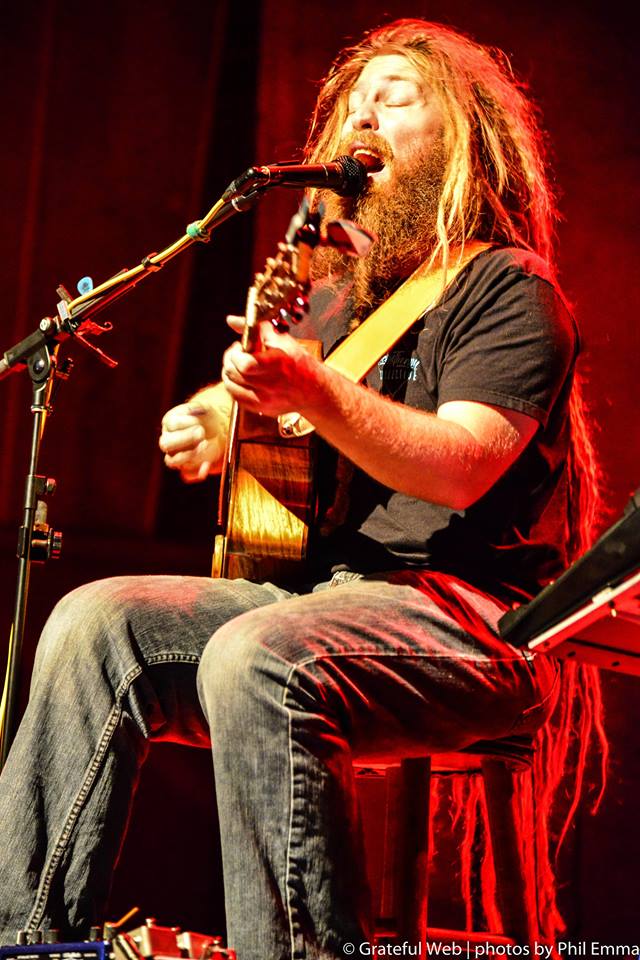
GW: Mike, welcome to Grateful Web.
Mike: Thank you. Thanks for having me.
GW: You’re are from Hawaii?
Mike: Yes. Born and raised in Oahu.
GW: Sweet. What was it like growing up in Hawaii?
Mike: It was awesome man. We’re at the beach all the time. We go hiking. Those are the kinds of stuff we grew up doing.
GW: You surf?
Mike: We more grew up on the east side which is more like body surfing.
GW: Is that like the half-board…boogie board thing?
Mike: It’s body boarding or body surfing. Body boarding is like with the boogie board. Body surfing is just with your body.
GW: I saw a documentary some time ago related to Hawaii and locals giving a hard time to Caucasians. Did you have issues growing up in Hawaii?
Mike: No, I never had. I’m sure maybe in certain parts of the island. I don’t know; I think that tourist or people who come from the mainland who have no respect for Hawaii and the land may run into problems with those who do have respect for the land. If you grow up there, you just go with the flow of the ways of the island – and everything is all good.
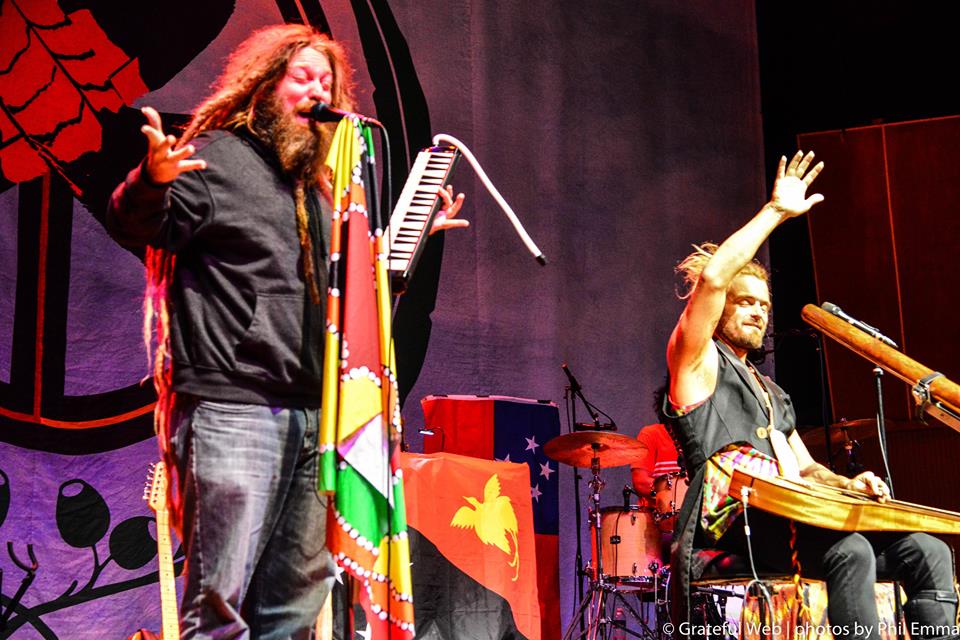
GW: Maybe it’s not so much the color of your skin, but…
Mike: Because of your attitude and the way you act.
GW: You live in a musical family.
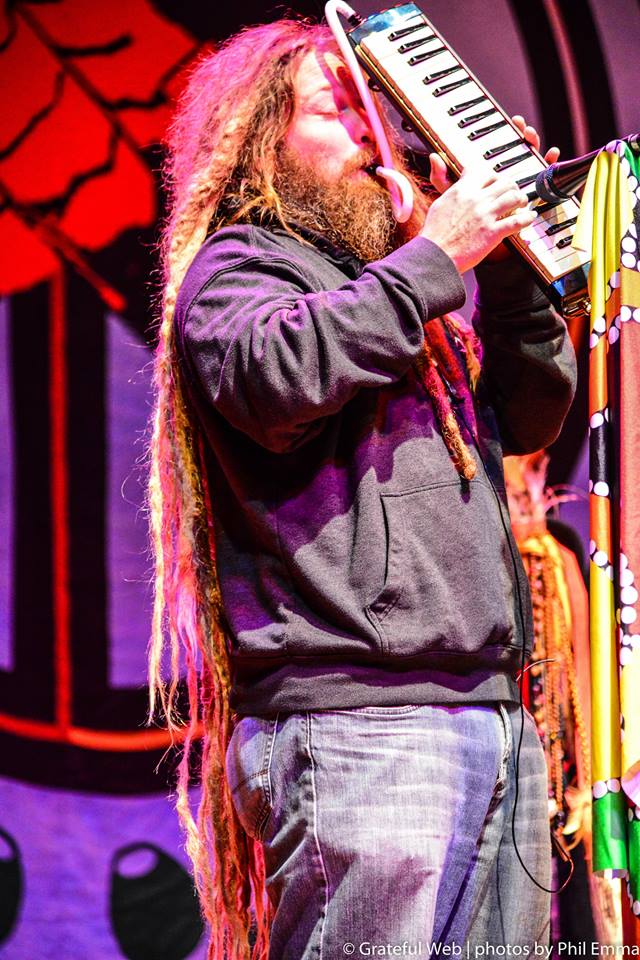
Mike: Yes, my dad is a musician. My grandpa was a musician and great grandpa. My sister is a musician.
GW: What instrument did your dad play?
Mike: He plays guitar, sings and writes songs.
GW: They’re a big influence on you.
Mike: Yes, I would say that my family is the biggest influence on me just in life. In music – maybe not so much the way that you sound – and the message, the energy and the feeling, those are influenced the most by my family. My whole philosophy and my whole way of being I think are influenced by my family. And, I think that’s the most important aspect of my music. When people ask about my influences, I always say my family is the biggest. Musically as well. My dad, all the time growing up, was singing songs for us. He taught me how to play guitar, he got me involved in music, my parents were always getting me involved in music and encouraging me to learn music. Whenever I had a desire to do something musically, they always helped me out supporting me and they still do.
GW: You had your first gig at 16 years old?
Mike: Yes, I did my first public gig at 16.
GW: Tell me about that.
Mike: Oh gosh. I was just in a rock band in high school. We sounded horrible. We just rocked out. It was great. [laughing] I was playing bass actually for a band.
GW: Bass. What other instruments do you know?
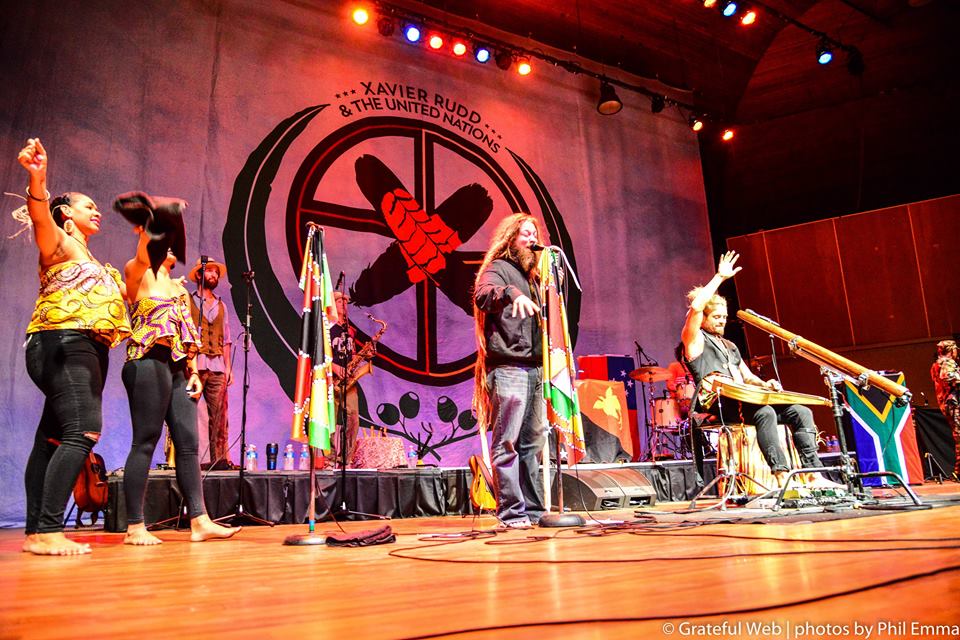
Mike: I grew up taking piano lessons. I played trombone…just tried to play everything a little bit. I think all musicians especially song writers, who write songs and arrange music, should at least try to play everything a little bit. Because if you get a feel for an instrument, it’s easier to translate to somebody who plays that instrument. If I had a piano part in mind and had a really good piano player who’s doing the part for me (and who plays far better than me), I can at least hash out a basic idea of what I want on the piano for them. It’s a lot easier to translate to them then just saying “well, I don’t know what I want on the piano but what you’re doing is not it”. If you have an idea of what you want to do and can get it across to another musician on their instrument, it’s helpful as a songwriter. I have friends who write songs and don’t play instruments too much. In the studio, they tend to go in and are kind of at the mercy of the musicians or the producer because they don’t really know what they want or even fathom what another instrument sounds like in the context of their song – they don’t know how that instrument works. So, I think being able to play drums, piano, bass, and trombone makes it easier for me to write horn parts, write string parts, and write piano parts.
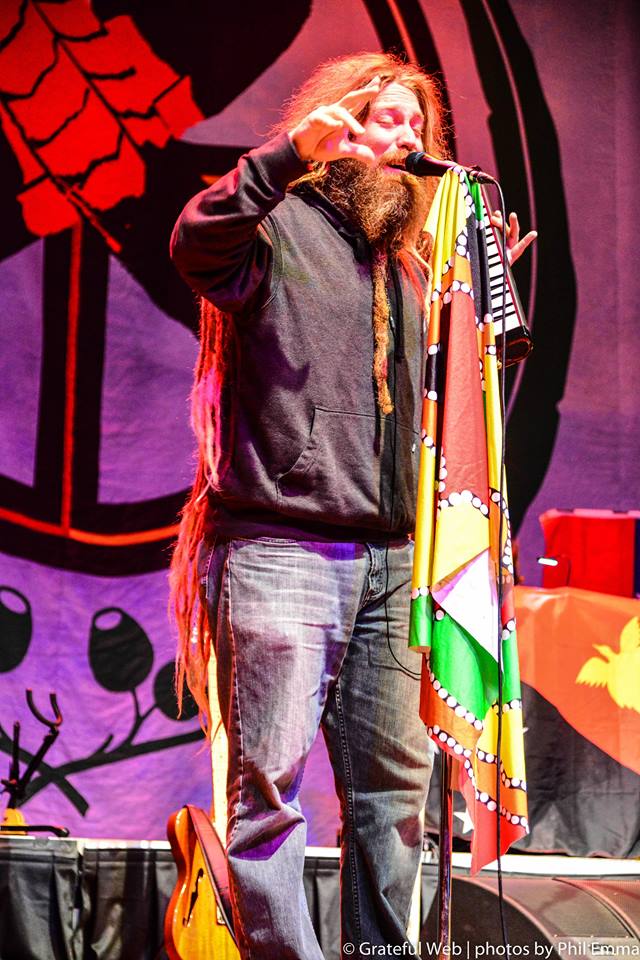
GW: At that age, you knew you were going to be here today?
Mike: I definitely always knew that I was going to play music. All my life, music has been in every aspect.
GW: Your folks are doing music for a living as well?
Mike: No, my parents are both teachers. Not music teacher, my mom is a pre-school teacher and a college…my dad is an English teacher. Music was really never their goal. My dad writes songs all the time – it’s a passion for him. My grandfather and great grandfather were both composers, gospel composers. So if you look in a church hymn book, you’ll see their music. [laughing]
GW: No kidding. [Laughing] Being so passionate about music, what do your folks think about you now making a living in music?
Mike: Yeah, they’re stoked. They’re really proud. They really believe in my music and they love it. When I first started playing music and writing songs, I can definitely see a point where I started writing songs they really liked. That was cool for me to see where I grew musically to a point where they genuinely and actually liked my music rather than just liking it because they feel sorry for me, or because they love me and want to support me.
GW: What was it that they really like about your music – the sound, lyrics, both?
Mike: Just everything combined. The musicality, knowing the positive messages I was putting out, and seeing the effect it had on people makes them really proud.
GW: The message in your songs: love, hope, struggle, moving forward, mother earth, animals, a lot of good stuff. Do you want to talk about it a bit?
Mike: The reason that we make music as musical healers is to help people and to bring a message that we feel is necessary. It’s a message that has sort of come through me and I just feel bless to be able to put it out there and help in every way possible. Yeah, it’s a message of healing like you said. It’s a message of hope. It’s also a message of awakening, of revolution from the mental and spiritual oppression of the system we’re living in.
GW: When were these messages instilled in your songs? I figure at 16 you were more just rocking out.
Mike: Exactly. Growing up in Hawaii, I think…
GW: Did you just say Hawaii? [‘w’ pronounced like a ‘v’]
Mike: Yeah, that’s how it’s pronounced. In the Hawaiian language, most of the time the ‘w’ is pronounced as a ‘v’.
So growing up in Hawaii, just that connection with nature, that connection with the earth was really a natural thing for really everyone living there. I didn’t know anything else. So, I think it was naturally already part of the message in the music that I was making would kind of come to fruition. Overtime, those ideas that were meaningful started surfacing more in the music. There was a certain point in my life where I had a major spiritual awakening and a lot things changed in my life. That led to a big change musically. That was kind of at the point where I realized that I wasn’t making music for myself – for my own ego. I was supposed to be making it to help people. At that point, I realized all this music that is out there doesn’t really come from us. These ideas are all out there; everything is all out there. All we are really doing is channeling these ideas and making ourselves open to them coming through us. Once I made that realization that I’m just a vessel for the music to come through and put out to help people, everything for me musically changed. I started writing a whole different kind of music. It was a healing kind of music. And, that was really at the point where people started paying attention to what I was doing too.
GW: This awakening was about five years ago?
Mike: No, this was maybe 10 or 12 years ago.
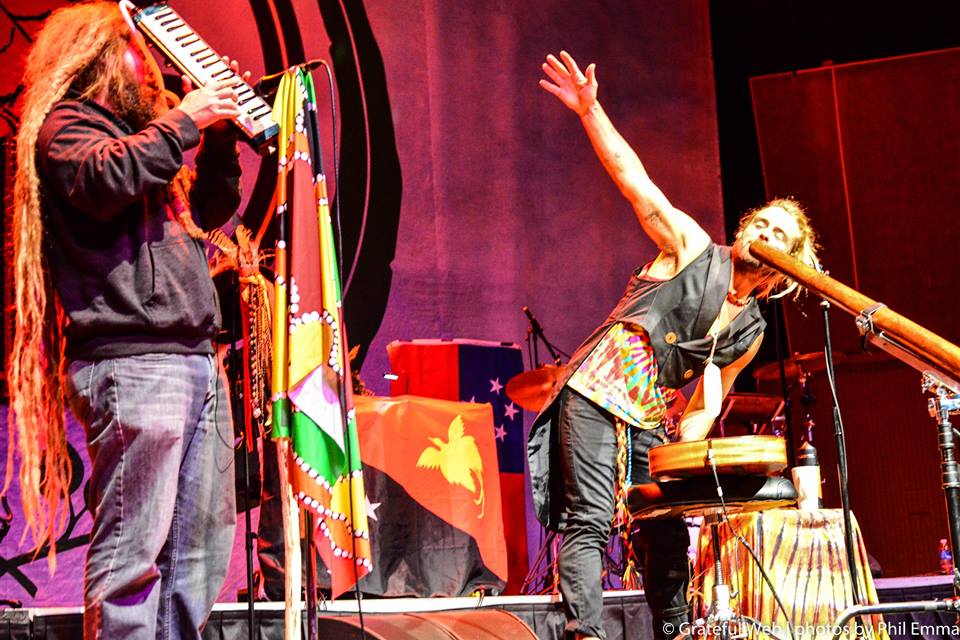
GW: What was that spiritual awakening – a religious awakening?
Mike: No, it was more of a shedding of the ego and the realization that we’re all connected and put here to help each other. I don’t necessarily follow a particular religion. I’m more a student of all spirituality.
GW: You are vegan
.jpg)
Mike: I am Vegan. At that point, I wasn’t vegan yet but I did become vegetarian. That was a big change in my life. It definitely made a difference in me. I started fasting, meditation, just awakening and being more aware the realization of the connection of everything and everyone. Up to that point, I felt like I was living a selfish life. Even though I love all my friends, love my family, and I thought I was a happy and good person, I wasn’t really fulfilled. I’m still of course growing and learning all the time.
GW: Let me get into your albums. Your first record is The Change I’m Seeking. I’m just going to run through some tracks if you don’t mind. I like “Barber Shop” and bass on the there.
Mike: That was a song I actually wrote quite a long time ago. It’s related obviously to my dreadlocks and a lot of my reasons for growing dreads and growing my beard. It was just a major rejection of the vanity of honored society. That was just a song of all the ideas of going to the barber shop, going to the salon, going to get your fancy clothes, your makeup and all of that stuff. And, just how what a trap it is, how pointless it is and how in the end, it just gets you wrapped up in something meaningless.
GW: “Barber Shop” is a metaphor for all that.
Mike: Yeah, exactly. It’s a fun song. I really still like to play it. It’s got a fun and uplifting energy. It’s a funny song in a way because it just has that kind of carefree more comical attitude to it.
[“Barber Shop” Video: http://www.mikelovemusic.com/videos/2015/4/10/mike-love-band-barber-shop]
GW: Yeah. It’s on my playlist now. “Permanent Holiday” is cool. It sounded like you looped the bass and the vocal effect.
Mike: I loop a lot of stuff. In that tune, I loop a beatbox, I loop a bass line, loop some guitar line, and stuff. There’s a section in the middle that is a unique thing that has been something for me that people have identified with where I have a phrase where I break up the sections into syllables and sort of loop it that way. It comes in with a certain section of syllables and then another section. At the third section, it all comes together and then it makes sense. It sounds at first that I’m not speaking English laying down nonsensical syllables.
[“Permanent Holiday” video: http://www.mikelovemusic.com/videos/2015/4/10/mike-love-permanent-holiday-hisessionscom-acoustic-live. At 4:24 in, Mike begins the section where he loops the syllables.]
GW: It’s funny you brought that up. I had the “Permanent Holiday” lyrics in hand trying to follow that syllable loop section – did the lyrics match up with the song?
Mike: No, I never wrote that part out.
GW: Ok, I was futilely trying to follow the lyrics to it and just couldn’t make it out. [laughing]
Mike: [laughing] I just have the finished part of it listed in the lyrics. That song has been really a successful song for me. Part of it is because it’s so unique to what I do. I haven’t seen anybody else do anything like that. At the time I wrote it, I wasn’t really thinking that this is going to be something people will identify me with. But, it has been.
GW: Is there a name for it? [laughing]
Mike: No, I don’t. Beyond that unique aspect to it, it has this resonance that people respond to. I think because it’s about something so simple in our lives. More people feel trapped in at least some aspects of their life, working a job that they don’t necessarily believe in or feel like it’s not fulfilling to them spiritually or giving them happiness. I think a lot of people are working to pay the rent and take care themselves. People don’t have just a clear path. I’m blessed in that my path has been clear to me since I was young. I just believed in it and kept going. I knew if I kept going that I’d be ok. I never really have been somebody who worried about money. I learned at a pretty early age that if you don’t’ worry about money, you’ll always have enough. If you do worry about it, you’ll never have enough, you know. So, I just always realized that I’ve always had everything I need. I’m still alive so I must have made it here somehow. I never really had problems with not having enough money. In times when I needed something, it came. I just always believed that would happen. That’s kind of the key and part of the key to my success. But, in that song, it’s a ‘permanent holiday’ from that idea of being stuck in something that you don’t’ want to be in, being in a place that you don’t want to be because you feel like you need something that’s going to help you survive. I think the true path to being on a holiday is just believing in yourself, knowing your path, and knowing where you need to be. For some people, it’s just harder to find. I think that song resonates with people because they all want to find that. Some people view it as like…just being on a permanent holiday as in being on vacation all the time…
GW: Versus perhaps finding something fulfilling…
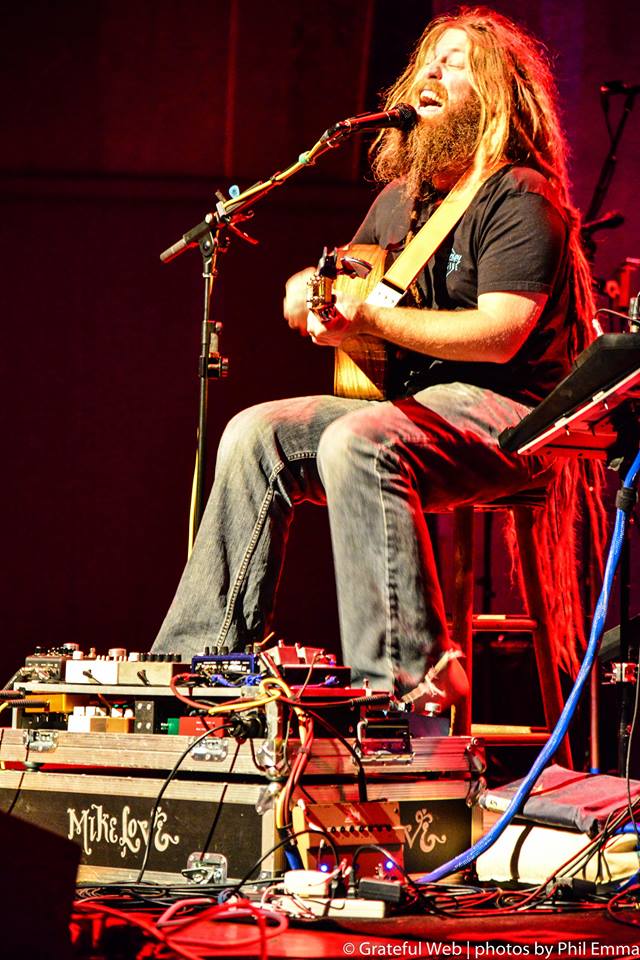
Mike: Right. For me, I feel like I work harder than a lot of people. I enjoy the work that I do so it’s not hard for me. But, I do put a lot of energy and time into it. But it’s fulfilling, so it’s not something that drains me. It gives me energy. That’s the holiday that I’m on. I’m on the holiday of being away from a system where I need to do this & that and things I don’t’ want to do – and basically enslave myself just to be able to get money to pay for something I really don’t’ need.
GW: I guess realizing you have everything you need and not looking fruitlessly for more...
Mike: Exactly. You might have a great job making half million dollars a year but you still aren’t necessarily fulfilled. And, you still might not be doing something that’s actually helping anybody. If you’re making that much money, more likely than not, you’re doing something that’s hurting people.
GW: Onto your next album, Jah Will Never Leave I Alone. “Rockaz’ Jam” is an inspiring song.
Mike: That’s album is kind of different. I got together with a friend of mine. He’s a bass player in a band -- that when I was coming up and playing reggae music – in Hawaii that really inspired me the most. The name of the band is Ooklah the Moc. They’re a local Hawaiian reggae band. They do progressive roots music and kind of dub style stuff, heavy in awesome syncopated drum & bass patterns, cool breakdowns and really cool vocals and horns and stuff. I used to watch them play all the time. The bass player is kind of the band leader.
GW: Is he the same bass player in the “Barber Shop” video?
Mike: No, that’s a different bass player.
GW: Is that whole album like that?
Mike: We used to play with that other band. I recorded an album at the studio with that band. Then, we started working together a lot and playing together in a band. He has a studio called Father Psalms studio. He’s a bass player but plays a lot of different instruments too, an excellent drummer, guitar player and an awesome producer. We started working together, we write songs at his house and work on ideas. That whole album is written with me and him. That song in particular was a song where he had a jam written out, I wrote lyrics to it, and played some solos.
GW: I heard horns, synthesizer, and different stuff than from your initial record.
Mike: Yeah, it’s all different.
GW: Are you working on another album?
Mike: Yeah, I got a new album coming out in a month, September 1st 2015.
GW: Tell us about that record.
Mike: Yeah, I’ve been working on it for the last two years. It’s just been a great mountain of work that I’m really excited about. It has a lot of songs I think are the best material that has come through me – just a lot of uplifting, hopeful music. It’s an album about the times we’re living in. The title of the album is called Love Will Find A Way. It’s about the times we’re living in, the struggle that mankind is going through, so much confusion, so much deception, and so much corruption. All over the world, there are suffering, disease, oppression, slavery, genocide happening and countless wars. It’s really hard to wrap your head around how many atrocities is taking place. We live in a relatively sheltered world. The media keeps us sheltered from what’s really going on and feeds us half the story or half the lie of a story. There’s so much evil taking place in the world now. Sometimes, it feels like there’s nothing we can do about it. Sometimes, it feels like it’s too hard to do anything about it. The elite groups that are in place forwarding these agenda are so powerful that it just seems sometimes impossible to really even think of what to do to overcome any of this evil that is going on in the world. The idea of the album is that at the core of everything, at the core of all living thing is love. Even in the darkest, hardest and most troubling times, that love will connect us, bring us and carry us through even in the most impossible situation. All the music on the album is dedicated to the idea, the idea that hope is needed at this time – in time where it seems so dark. I’m really excited to share it. There are countless of amazing musicians that have helped me out on this album. It has been a huge undertaking. A lot of different instruments. My band I play with now; we have a tight knit relationship. It’s a four piece band: me, a drummer, a bass player and a keyboard player. We did all the basic tracks. Beyond that, I just called upon all the musicians that I really believe in who are amazing to do all the horns, the strings. Then, I have my music teacher from pre-school until the whole elementary, a steel drum player who taught me the steel drums…he played steel drums on a couple of the tracks.
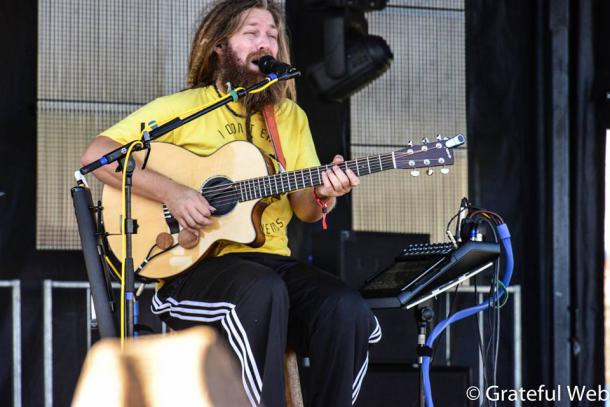
GW: That’s pretty special.
Mike: Yes. I have another Friend, Dan Lebowitz, who you guys may know. He’s plays with ALO and plays around a lot in the jam band scene – guitar player.
GW: He’s from Hawaii.
Mike: He’s in San Francisco. He played pedal steel on the album. Marcus Urani from Groundation, their keyboard player, did a huge arrangement of keyboard on one of the songs. It’s amazing. One of my closest friends and musical collaborators Paula Fuga, another singer, sang on it. Also, Trevor Hall…also sang on it. It’s a cool song, “Love Will Find A Way”, with four different lead vocalists going back and forth. I’m really stoked on how that all came out. I’m really excited all the music I’m sharing.
GW: Looking forward to it in September? [2015]
Mike: September 1st, yep!
GW: You’re doing a tour.
Mike: Yes, all of September.
GW: I think you’re doing a 20 date tour in September or something crazy like that.
Mike: Yes, more than that.
[Mike Love Tour Dates: http://www.mikelovemusic.com/shows/]
GW: That’s all I have Mike. You got the ARISE Music Festival tomorrow.
Mike: I’ve heard so much about the festival so I’m excited to check it out.
GW: I’ll give you the last word.
Mike: Thank you so much. I’m grateful for this opportunity to share this space with you, getting my word out, and to your viewership. Thank you man.
GW: Thanks Mike.
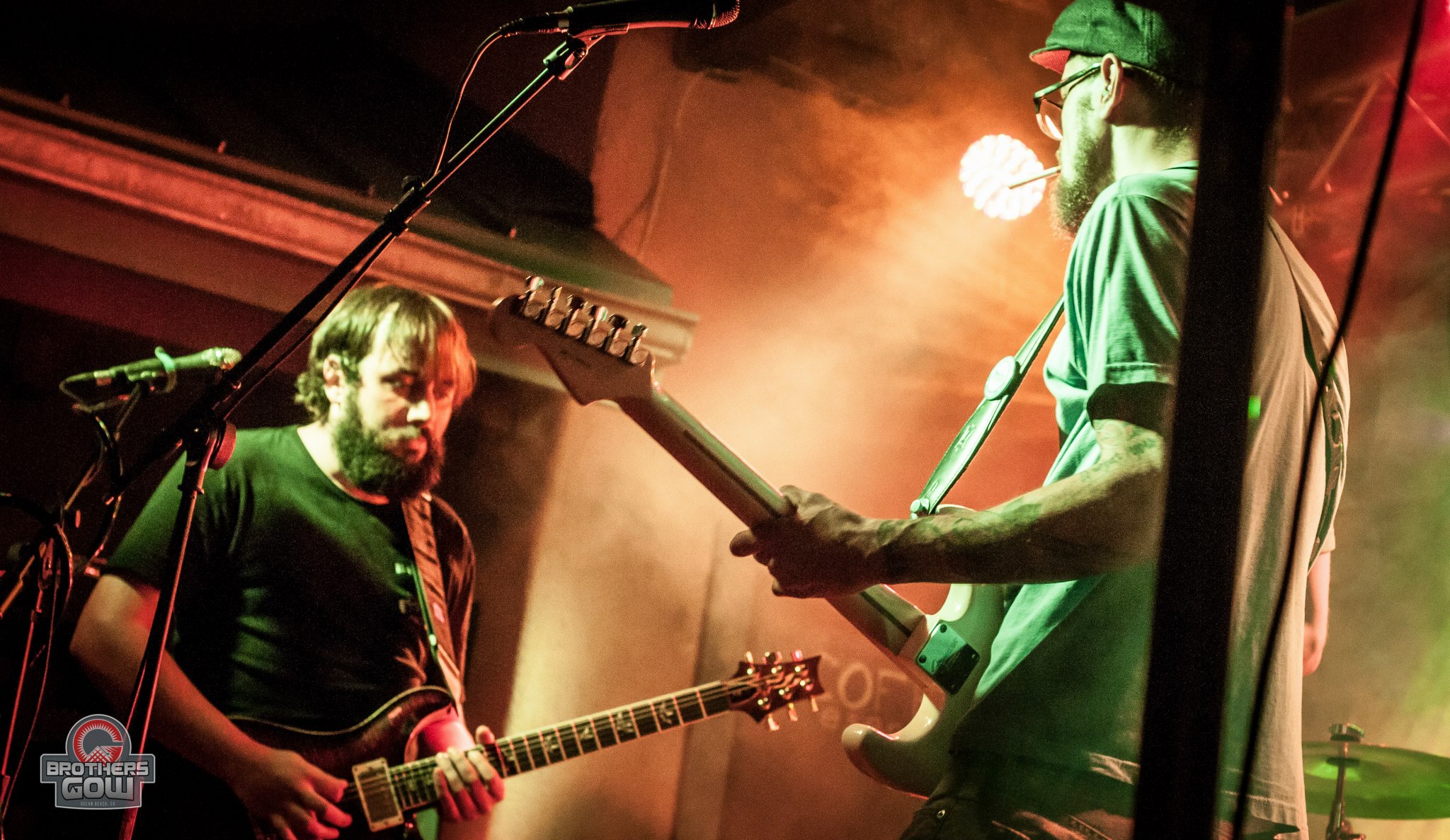
Childhood friends and bandmates of Brothers Gow are increasing their tour dates and broadening their live show reach. Amid the bands busy schedule, Brothers Gow finds time to support their foundation which provides musical instruments to surrounding grade schools in the local San Diego school district. Kyle Merrill and Ethan Wade of Brothers Gow talks with Grateful Web before sound check at their show in Boulder, Colorado.
GW: You guys are from San Diego?
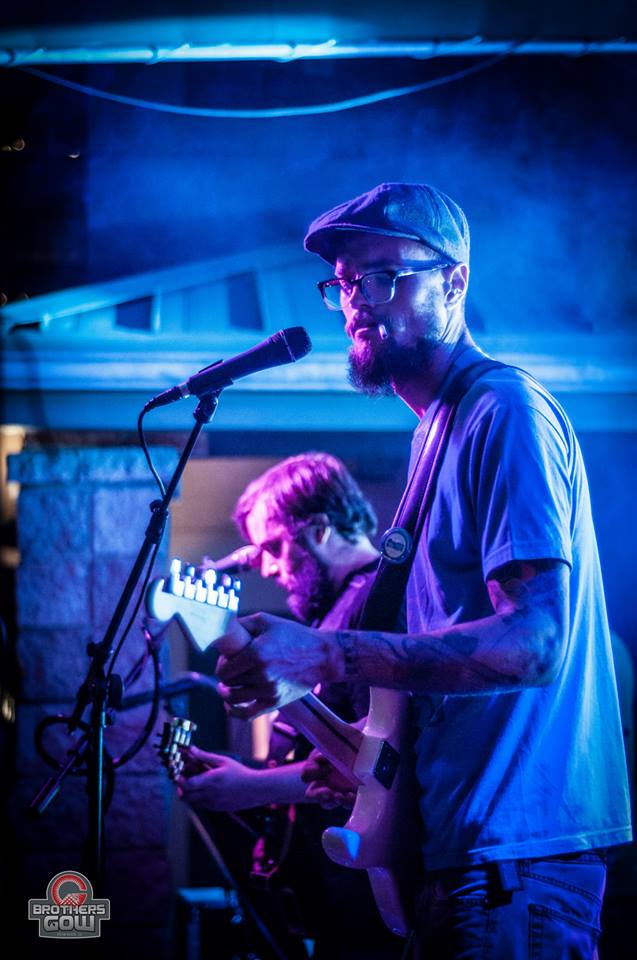
BROTHERS GOW: We’ve been there for three years.
GW: Not Flagstaff?
BROTHERS GOW: That’s were we started the band. That’s where we all went to college and kind of started it there. We kind of started it there for fun, something to do. After a few years, we thought, ‘whoa’, let’s keep doing this. This is awesome.
GW: Why go to San Diego from Flagstaff?
BROTHERS GOW: Flagstaff is a small town. There’s only one place we can play in Flagstaff. We wanted to go to a bigger city to see how we can do. We went to San Diego on a tour. It was so beautiful. The show we played was packed. The first time we ever played there we thought let’s move here. A month later we went there.
We lived in Concord for a year after college…east bay, east of Oakland, strip mall city, terribly slow for us as a band. After that one show [in San Diego], we went home and packed our stuff.
GW: San Diego is bigger with lots of people?
BROTHERS GOW: There are lot of cool venues near the ocean. Naturally, there are a bunch of people there already. It was cool. We were feeling the way the town felt – reminded us of college with the ocean, small town yet a big metropolitan area.
GW: Your latest album is Reflection. Your fourth album. It sounds great.
BROTHERS GOW: Thanks. We’re definitely happy with it. It was a lot of cool songs that we wanted to hear how it would go in a studio setting. We’re pleased with the results. We’re looking forward to making another one.
At this point, we’re not focused on when we’re going to released an album. All the cards would have to fall at the right time. Our biggest focus is touring. In the next six months, we won’t have time to think about it.
GW: Think about the writing?
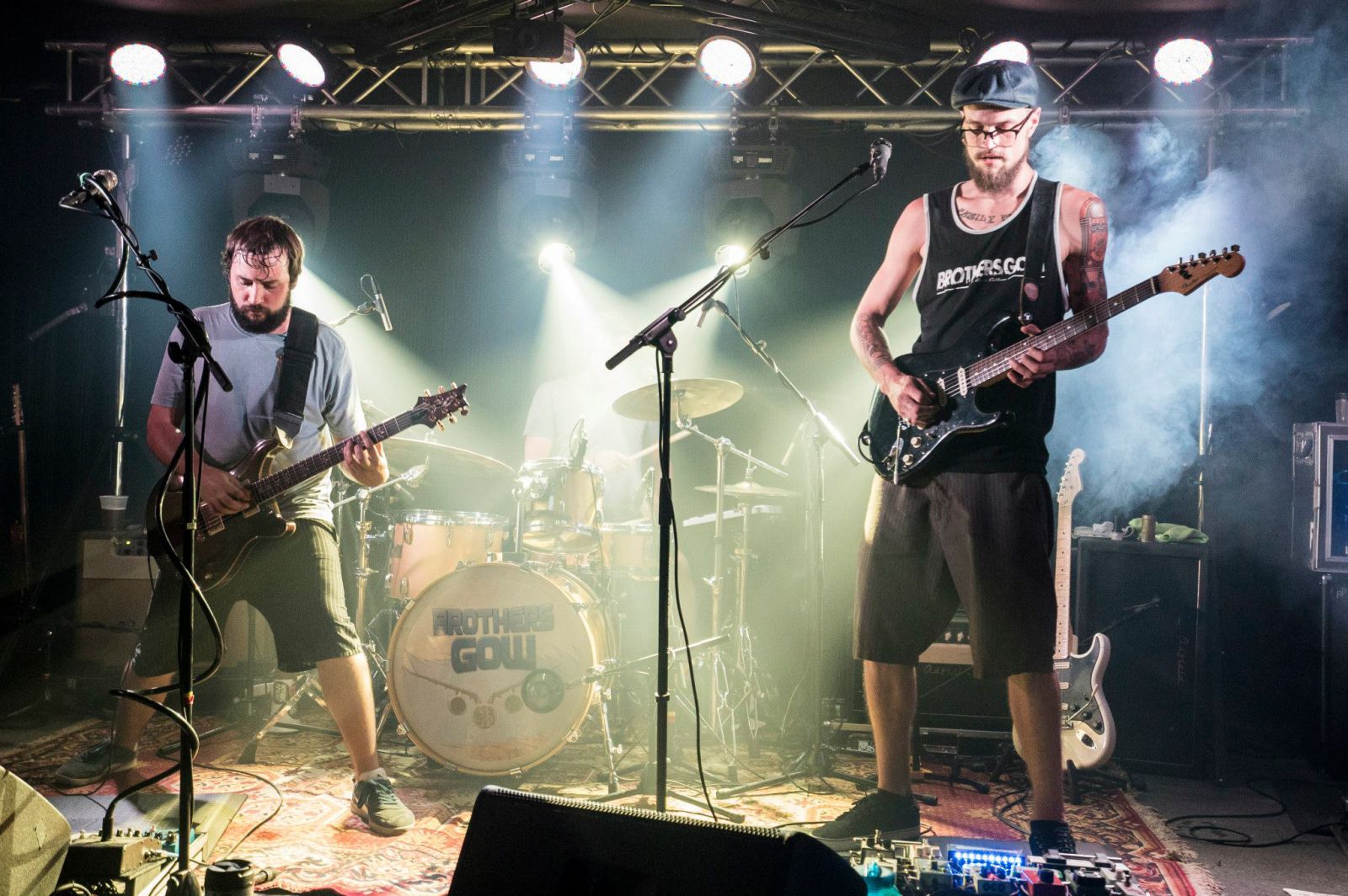
BROTHERS GOW: The writing always kind of happens in a way. We definitely have enough material do a whole other album. As far as timing and funding too (we need a new vehicle), there are logistical stuff.
GW: Touring is the focus.
BROTHERS GOW: At the moment.
GW: How many days are you on the road this year?
BROTHERS GOW: We’re approaching 100 shows by the end of September/October. [2015] We’ve been busy and next year is shaping out to be even more so.
GW: I saw your OB video [Brother Gow at Ocean Beach Street Fair]. It was great! Do you typically do covers?
BROTHERS GOW: We do especially when we go to a new town where people have not heard of us before. We’ll play a cover and then our originals.
GW: You guys are definitely great live.
BROTHERS GOW: We put a lot of work into it, into which cover we choose and we try to make them our own as well – a twist on all of them.
Another big thing is the fluidity of the set. It’s all thought out. We don’t write a predefine set list and play that the entire tour. Each night it changes. We try and cater to shows in close proximity. We have a lot of people who come to a show and drive to the next show. We don’t want them to hear the same thing. Not to the point where it’s completely sporadic. You’ll hear your favorite hits. With the covers, we’ll hit them at the right time. Keep them on the dance floor.
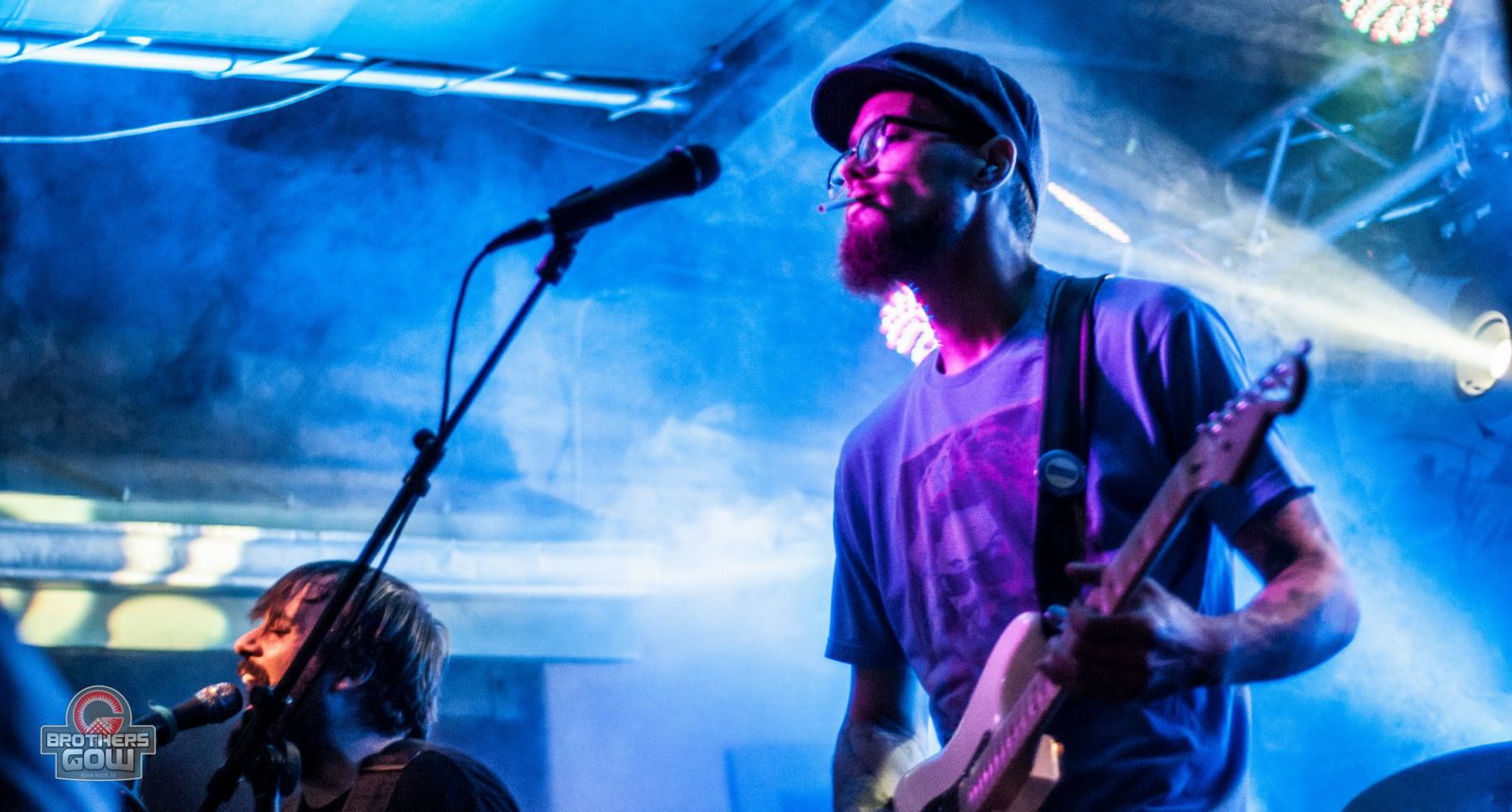
GW: You have a pretty cool lightshow.
BROTHERS GOW: Yeah.
GW: High maintenance is the light show?
BROTHERS GOW: Yes, to keep them up. Matt Collier is our lighting director.
GW: Is he your manager as well?
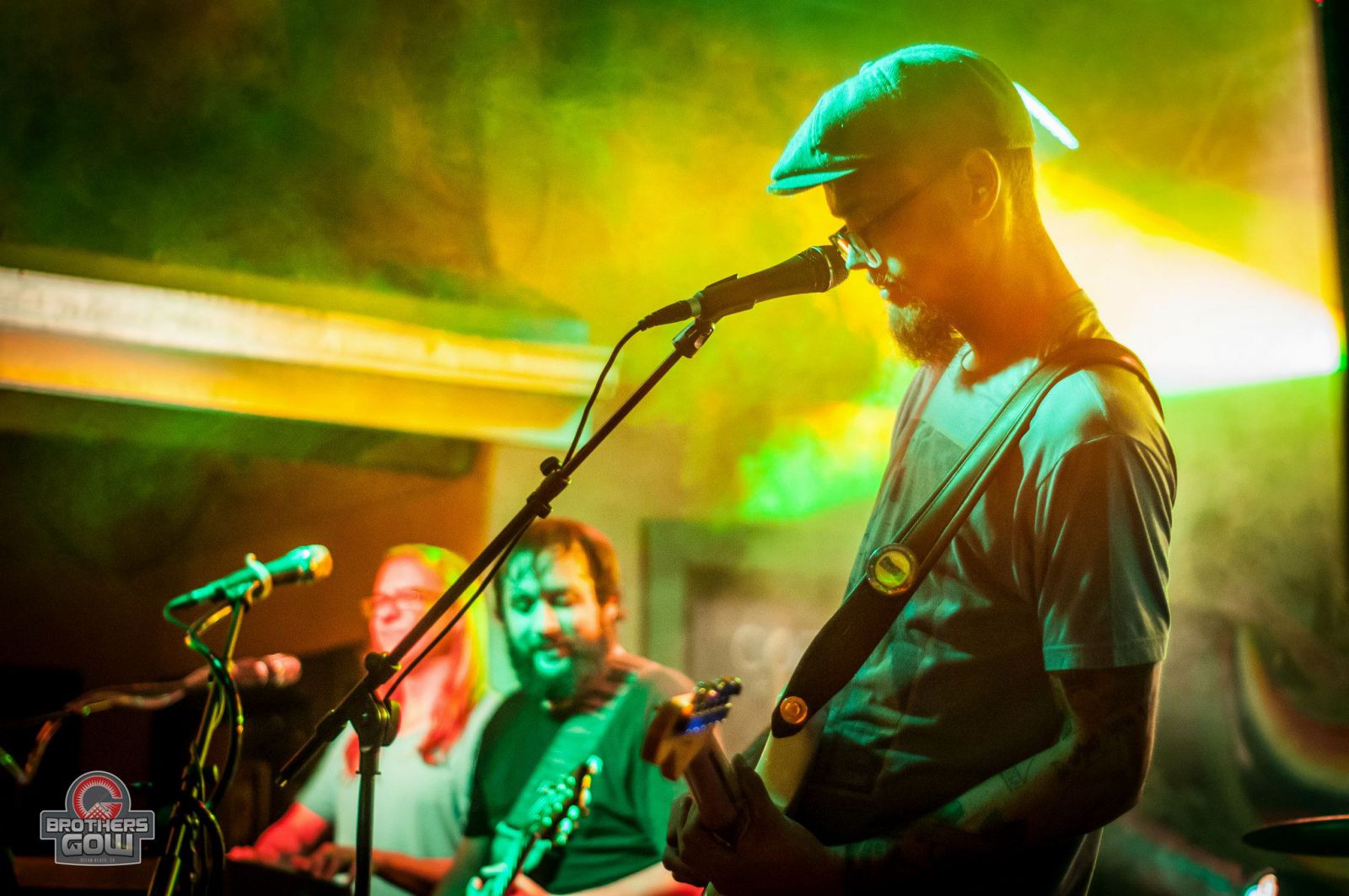
BROTHERS GOW: He plays manager for sure in certain aspects. He’s been collecting them [lighting equipment] for a while. He’ll do other gigs for big production companies when we’re not on tour. So, that’s really cool for him. And, it’s all Brother Gow’s lighting. It’s nice because of the marketing too.
GW: Is ‘Gow’ a bandmate’s name?
BROTHERS GOW: It’s our keyboard player’s, Alex [Alex Gow Bastine], middle name. Alex and I [Ethan] have been really good friends since first grade. We’re like brothers. Then, the other story is…he was 21 and I was not 21. He got a new ID. He gave me his old ID because we’re trying to go see a Ziggy Marley concert that was 21 and up. We thought “How are we going to get in. Your name is so recognizable. If they read the name and see ‘Alex Gow Bastine’ – even if the pictures are different, they’re going to be like what the heck”. But, it’s ok. We’ll tell them we’re Brothers Gow. When we formed the band, let’s call it Brothers Gow.
GW: So, you guys [Ethan & Kyle] have been there from the beginning?
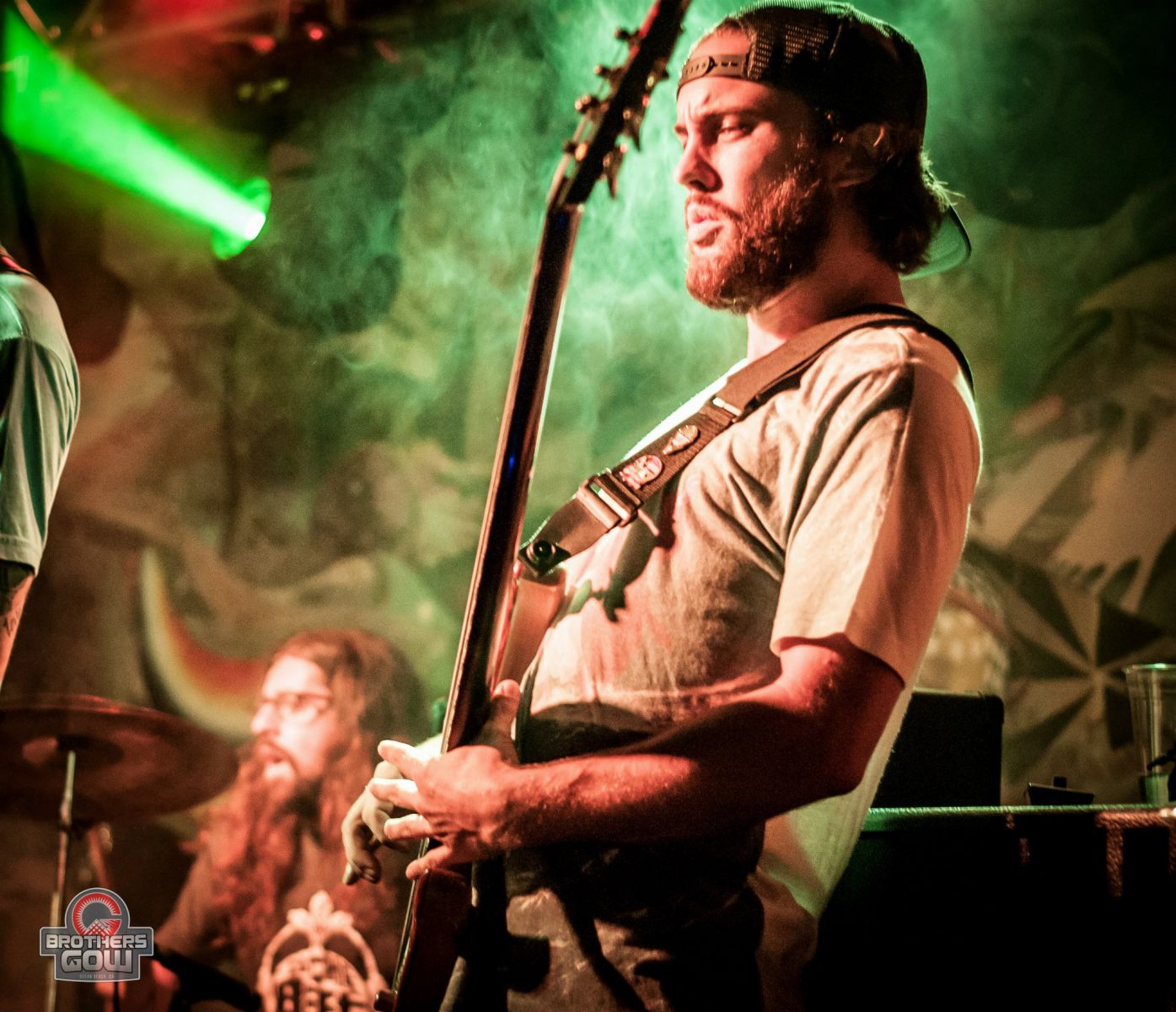
BROTHERS GOW: I [Ethan] moved to their school district in 8th grade. Carson [Carson Church, bass player] moved into our school district junior year of high school. We all go way way back. But, Alex and Kyle would definitely be the oldest connection. We met Nathan [Nathan Walsh-Haines], our drummer, who played in sort of a rival band in Flagstaff in college. We kind of swooped him up when the time was right.
GW: Nice. And the old drummer?
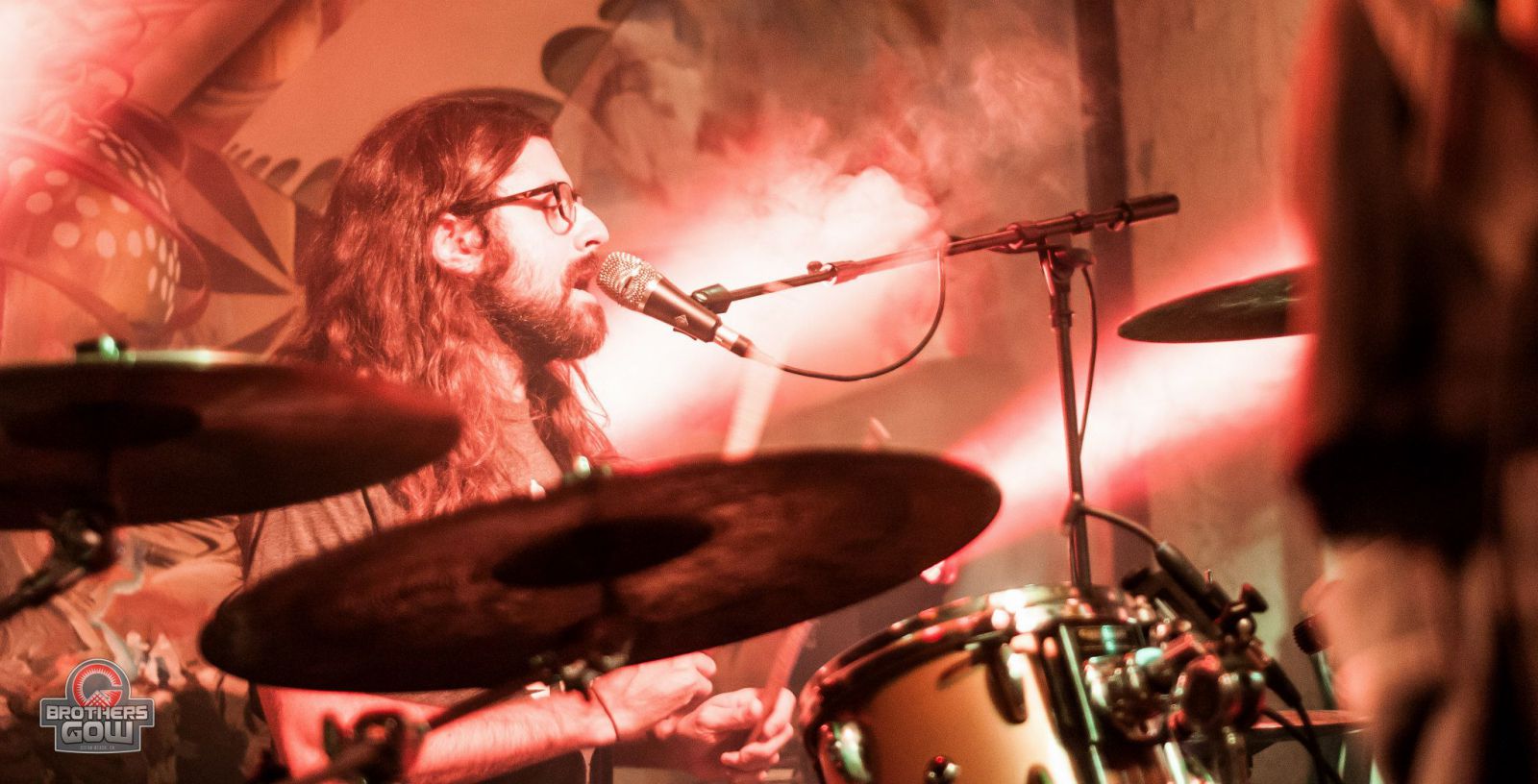
BROTHERS GOW: He was an old friend of ours. We had professional differences. He was focused on different things. We wanted to be on the road. That wasn’t quite what he had in mind. It was a decision that had to be made. Such is life. He’s doing what we want to do and we’re doing what we want to do. For us, it benefitted greatly because Nathan has such broad spectrum on the drums that it really opened up what we can do as a band. Not to say that our old drummer wasn’t good at what he did. Nathan is so skilled and so open to learning about different things that we can experiment with him in ways that we hadn’t before.
GW: The tracks in your albums all sound different. You guys are so malleable – even the vocals. I can’t tell the tracks are from the same band. It’s pretty cool.
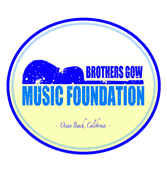
BROTHERS GOW: I think now for us the focus is trying to explore all those genre options yet trying to create this sound that is our own and unique to our songs and also fluent throughout all we do. Since recording that album, [Reflection] I think we honed in on what our sound is like a little better but still be able to be on a broad spectrum.
GW: Brother Gows has a foundation?
BROTHERS GOW: Music programs and everything are being cut in schools when budget gets slashed. A lot of us had cool music programs that we went through in school. We wanted to give back to our community because we fell in love with Ocean Beach (San Diego) right when we got there. We wanted to do something to give back. We wanted to put instruments in the local classrooms. Actually, the Ocean Beach ten councils just this morning called us. They’re going to give us an award for community service that we’ll be getting in October [2015]. We are really stoked.
GW: Great. You gave them instruments?
BROTHERS GOW: We donated 18 or 19 string instruments like guitars and ukuleles to the elementary schools. That was the first thing we did. We played them and showed the kids. It was really cool. We did another for the middle schools. We got ten (a lot nicer ones) for the middle school kids.
GW: You just went out and bought these instruments?
BROTHERS GOW: We basically do a benefit show and we’re not going to take any money from it. Everything we make from this one show will go towards it. We’ve also done an event where we got local businesses to donate goods and services. We did an auction and live raffle with the guitars we got and signed. We ended up generating $1500 for guitars in one night.
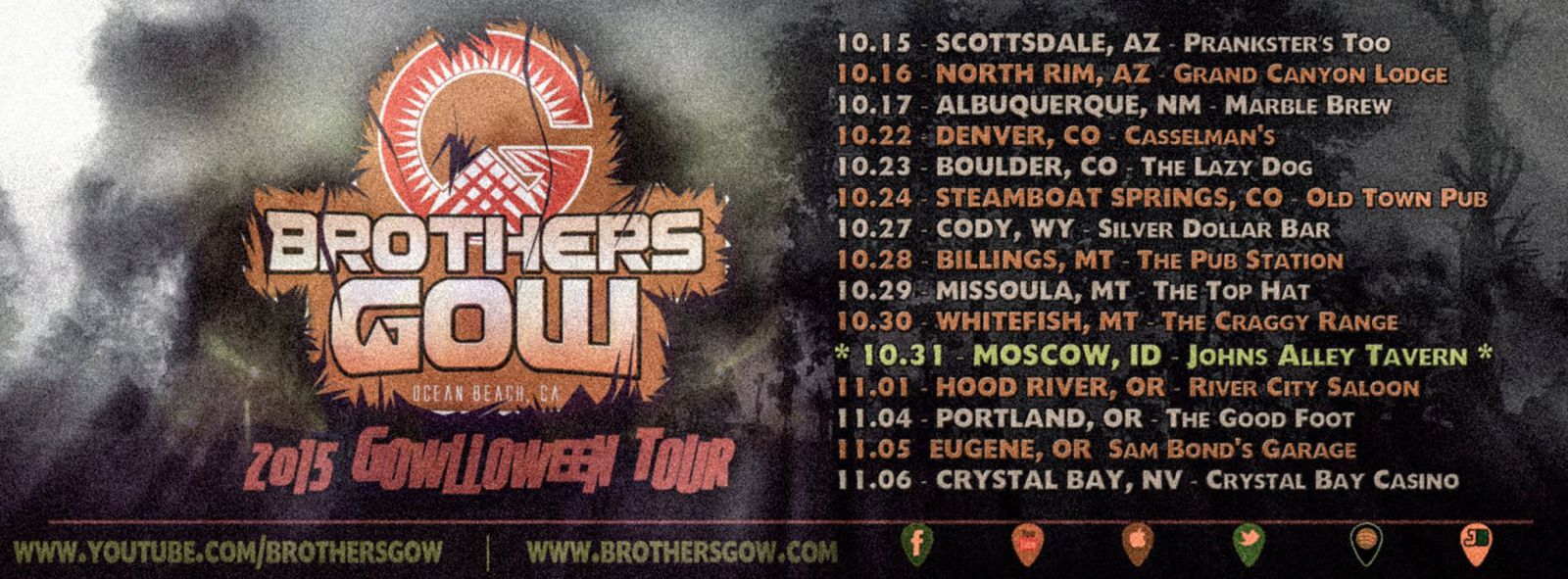
We worked closely with a local guitar shop there called Moze Guitars. They’re like a mom-and-pop shop in San Diego that takes care of a lot of pro musicians in San Diego. They were able to hook us up with a decent deal per unit of the guitars. We’re able to make the money go farther with them onboard than if we had gone with say Guitar Center or something.
It’s been really a cool thing. We feel likes it’s a noble cause in the community. We felt the love in return ten folds. It’s been great.
GW: That’s must feel great to donate not only money but your time as well. That’s awesome. That’s all from me. [ Kyle and Ethan need to start sound check before show] I’m going to give you guys the last word if you have anything.
BROTHERS GOW: Come to the shows sometime. It’s only a matter of time when we are in your town.
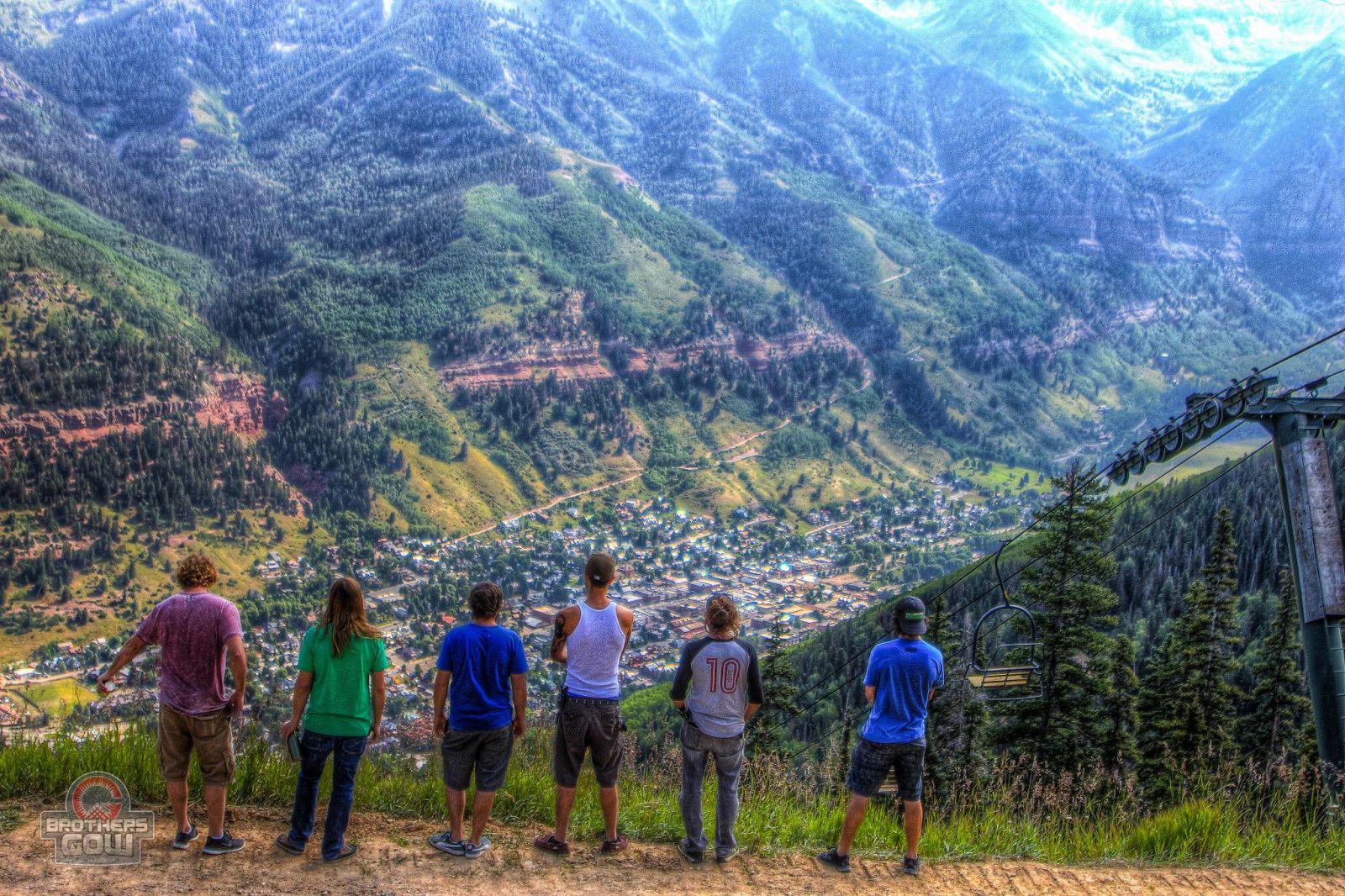
GW: You’re in Telluride tomorrow than on the way to Flagstaff.
BROTHERS GOW: Flagstaff is the homecoming show. It’s also my birthday. [Ethan’s]
GW: Happy Birthday! Thanks a lot man. Good luck with the show.
BROTHERS GOW: Thank you
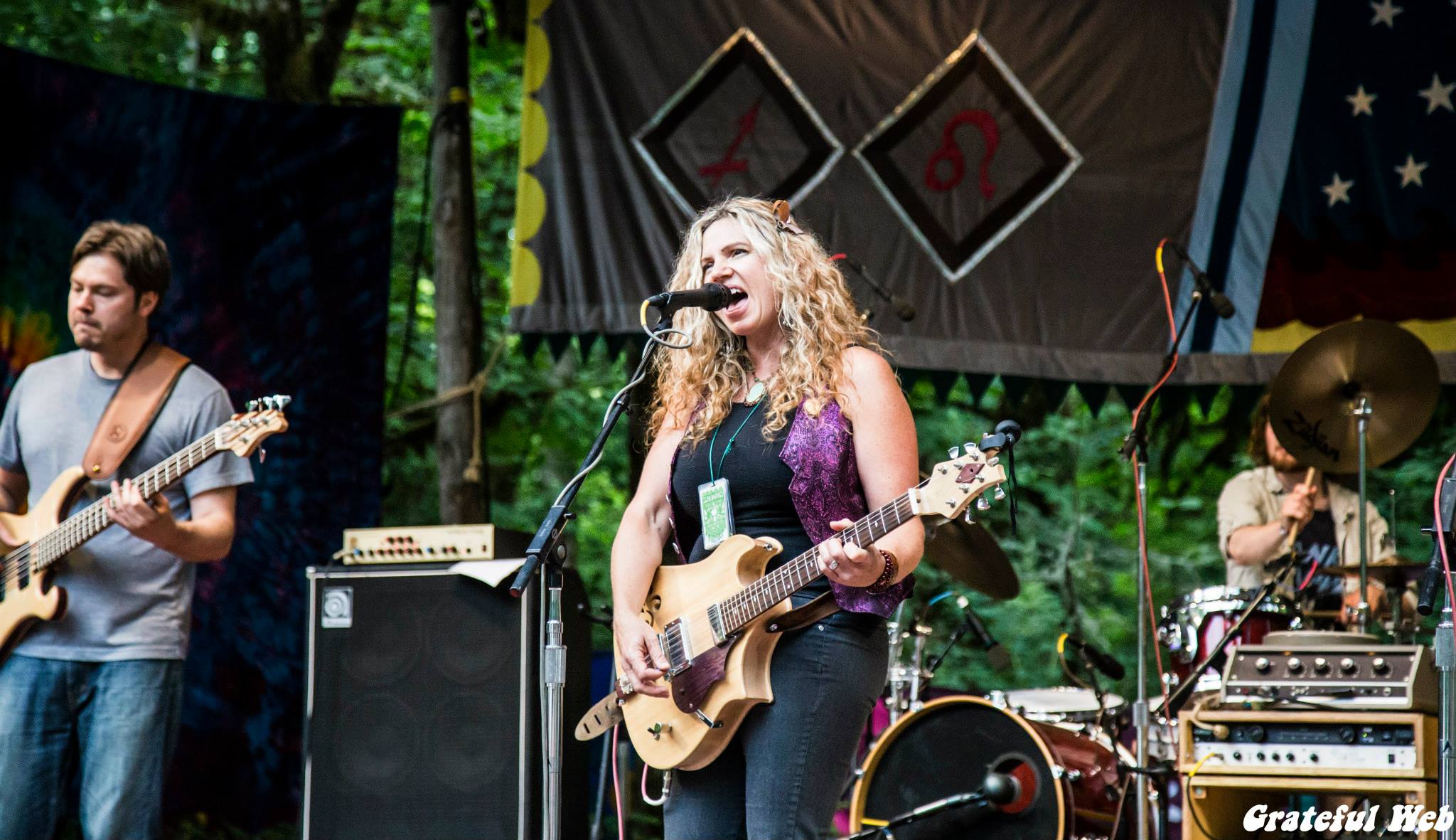
“The Ballad of Black Bart” inspired by an Oregon outlaw on Blue Lotus latest album Across The Canyon. Blue Lotus singer and songwriter Brandelyn Rose chats with Grateful Web on this release, while in tour in Colorado.
GW: How is Denver treating you?
Brandelyn: It’s good. It’s my first time here. We don’t know anyone out here.
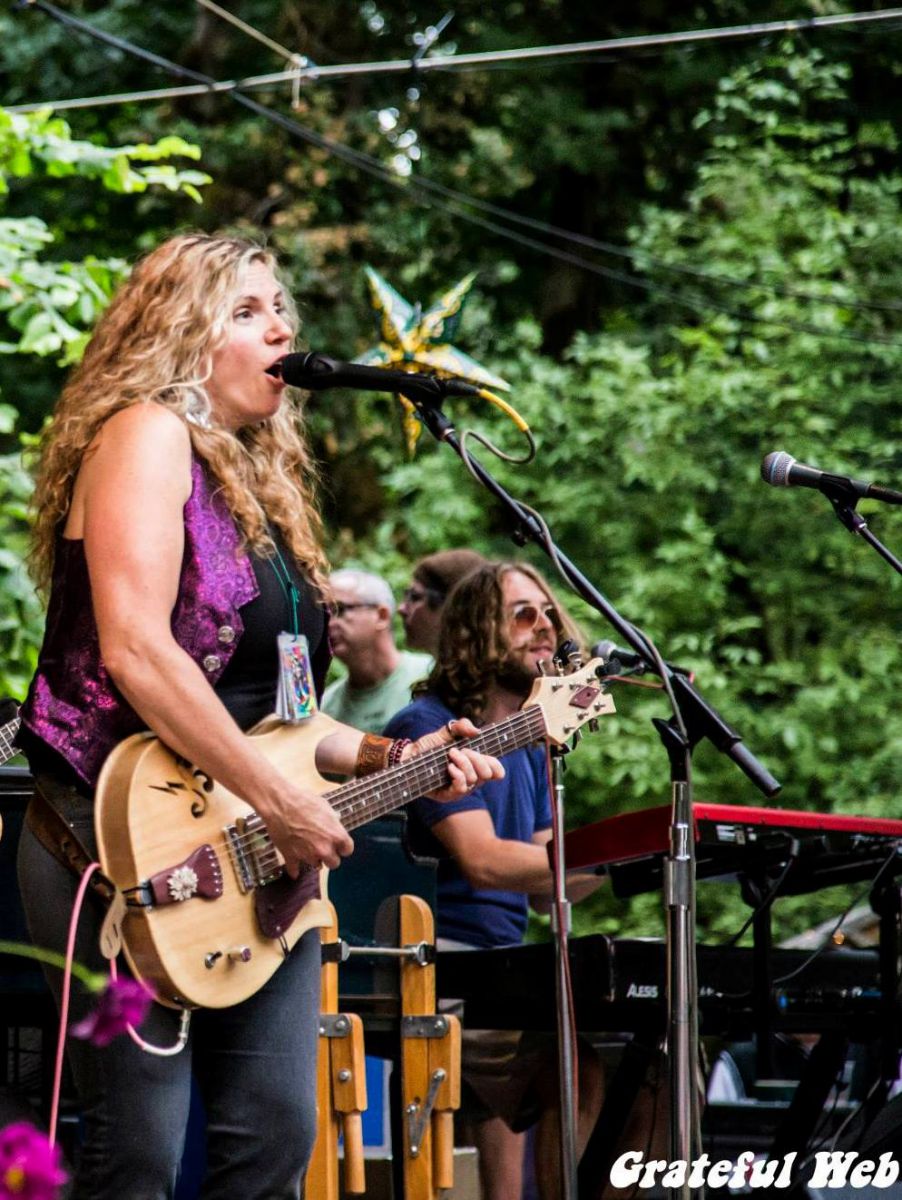
GW: First time in Denver?
Brandelyn: Oh yeah. We’ve never been to Colorado at all. We don’t have any fans out here.
GW: That’s going to change.
Brandelyn: Yeah, Jay gave us four nights to showcase our stuff to as many people as possible in a four-day period. We are just hoping people show up. We don’t know anybody out here. It’s been really fun. We had a great time. We played in Crested Butte Monday Night. Then, we hit Boulder three nights and we have one more show tonight.
GW: You hit the mountain town, Boulder and now Denver. That pretty much covers it, I think!
Brandelyn: Right? I think Fort Collins too a little bit.
GW: Yes, Fort Collins is up north [of Colorado] some.
Brandelyn: It was more like timing when we would be coming through. We are headed up to Montana and we have a bunch of festivals and things coming up.
But, I really appreciate you coming out. Aaron has been really awesome coming out and doing photography for us. We played a fair and he came out and did a blip about the fair.
GW: Which fair was this?
Brandelyn: We played Oregon Country Fair this year on the main stage.
GW: Awesome!
Brandelyn: Yeah, it was really cool. We got to play right before Beats Antique and ALO [Animal Liberation Orchestra]. This summer has been really fun.
GW: Is that your first festival – the fair?
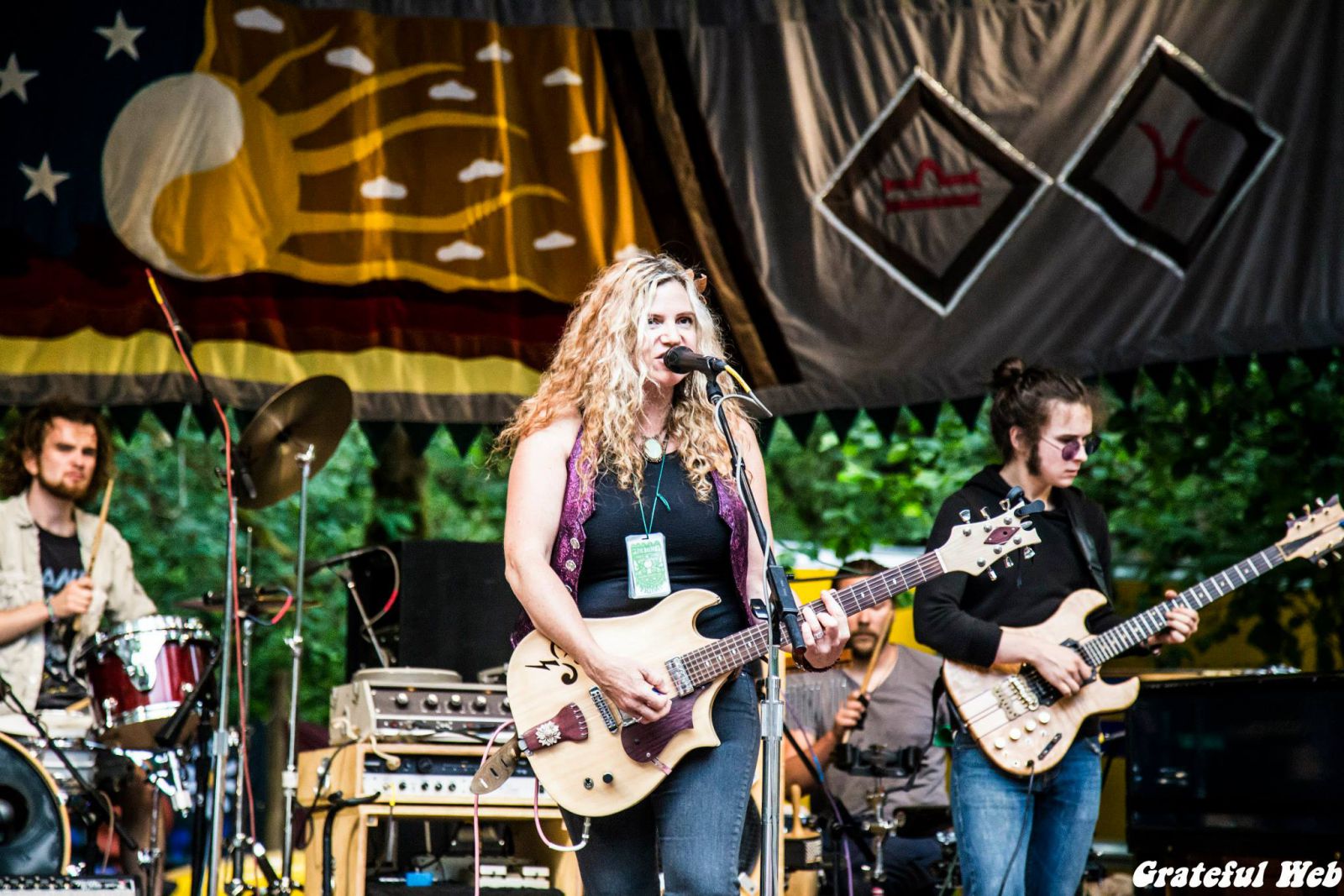
Brandelyn: No, we’ve been together for five and a half years. We’ve been doing the festivals for the last year and a half, probably. Last fall, we started touring. We’ve been touring just over a year now in mostly little three-day run out. Once a year, we do a three weeks long tour which covers basically Montana, Idaho, and Washington. This year we added Colorado to the loop.
GW: We’re definitely glad. Hopefully, that expands your base.
Brandelyn: Yeah, it’s so awesome. I so appreciate you guys, really, helping to connect. We met also some people from the Colorado jam scene.
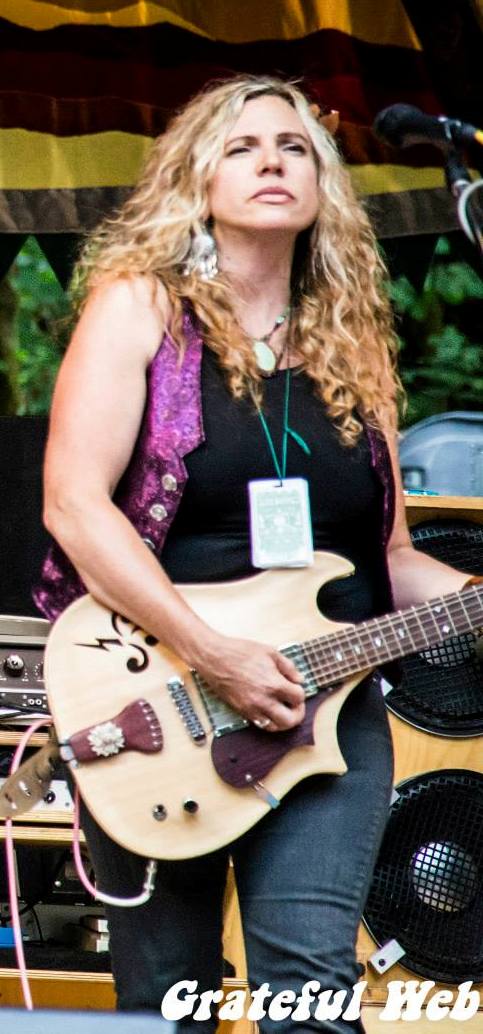
GW: Your first gig was a post-show at a Phish concert?
Brandelyn: Yeah, our first show was after Phish, at the Gorge, under a popup – for like 2000 people.
GW: That must have been pretty cool.
Brandelyn: It was really exciting. I hadn’t played in front of people before and neither had Felix [Felix Blades, Lead Guitar/Vocals]. Felix was 14 years old.
GW: No kidding. He’s so young.
Brandelyn: He’s really young. He was 14 and I took him up to the Gorge. It was so funny.
GW: So, did he rip at 14 years old.
Brandelyn: Oh yeah. He’s amazing. He’s somewhere between…I don’t want to compare him. He’s his own entity – for sure.
GW: Any epiphany from that experience or lasting impression?
Brandelyn: I was surprised. We hadn’t played live before and that kind of crowd response was flooring. The other thing is that a lot of those people who saw us at that very first show are still our fans.
GW: Oh, really.
Brandelyn: They come up to me all the time when we’re out of town, “we were at your first show. We follow you”.
GW: I took a friend to your show last night. We’re fans too. We thought we heard some blues influence at the show.
Brandelyn: I was a Deadhead. I write our music – there’s a whole process that goes on. My influences are kind of blues roots music and then rock-and-roll. I love improvisational rock-and-roll. Felix is into the psychedelic rock-and-roll – the really 60’s sounding. Bob Dylan was a huge influence for me as a songwriter. When I started out, I was basically a singer/songwriter playing folk oriented blues – folk and blues. I met Felix and we morphed it. We took my songs and worked them into a live electric format. Felix love Stevie Ray Vaughn. He loves Bob Dylan too. He loves Trey and Jerry obviously. He loves the Yardbirds. He’s really into early early 60’s psychedelic rock and early psychedelic rock performers – he’s fascinated by them.
I love Robert Hunter. Robert Hunter is kind of my hero. Robert Hunter wrote some amazing lyrics for the Dead. I love him and Bob Dylan. I really love thought provoking, abstract…I’m thinking of how to say it. Open Interpretation. Drawing your own meaning and topic. I don’t write a lot about kind of common…love. It’s not my thing.
GW: Even though the band started in 2010, you’ve been at this and performing for some time now.
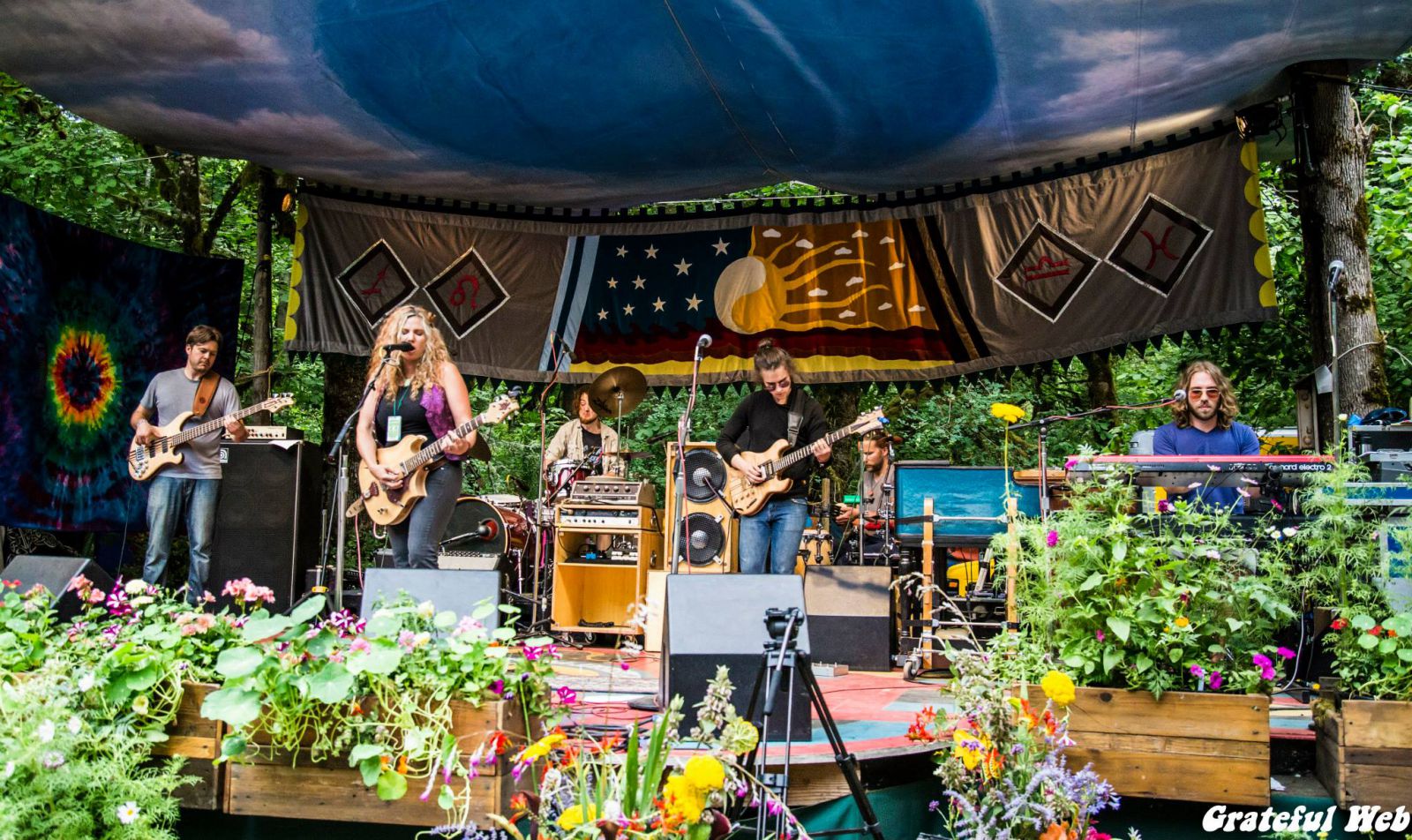
Brandelyn: Yeah, we’ve all been playing for a long time. Felix started at five years old and really started to hit it at 12. He’s taken different instructors from Eugene. He’s learns theory and gone to school for jazz theory. Ben [Ben Bosse], our bass player, has played in several bands and is knowledgeable. Our drummer [Alex Huber] went to Cornish School of Music up in Seattle – super talented. I’ve been playing since I was 12 years old and writing songs since I was 13 out in the communities. I started performing at 15 maybe with solo, acoustic stuff. I was always driven to play music. I write so much that I want to get the songs out for people to enjoy them.
GW: The lyrics comes to you.
Brandelyn: Yeah, it depends. Each song is really unique. I have days with a pen where the song comes out in ten minutes like “Mining Diamonds”, one of the songs we played last night.
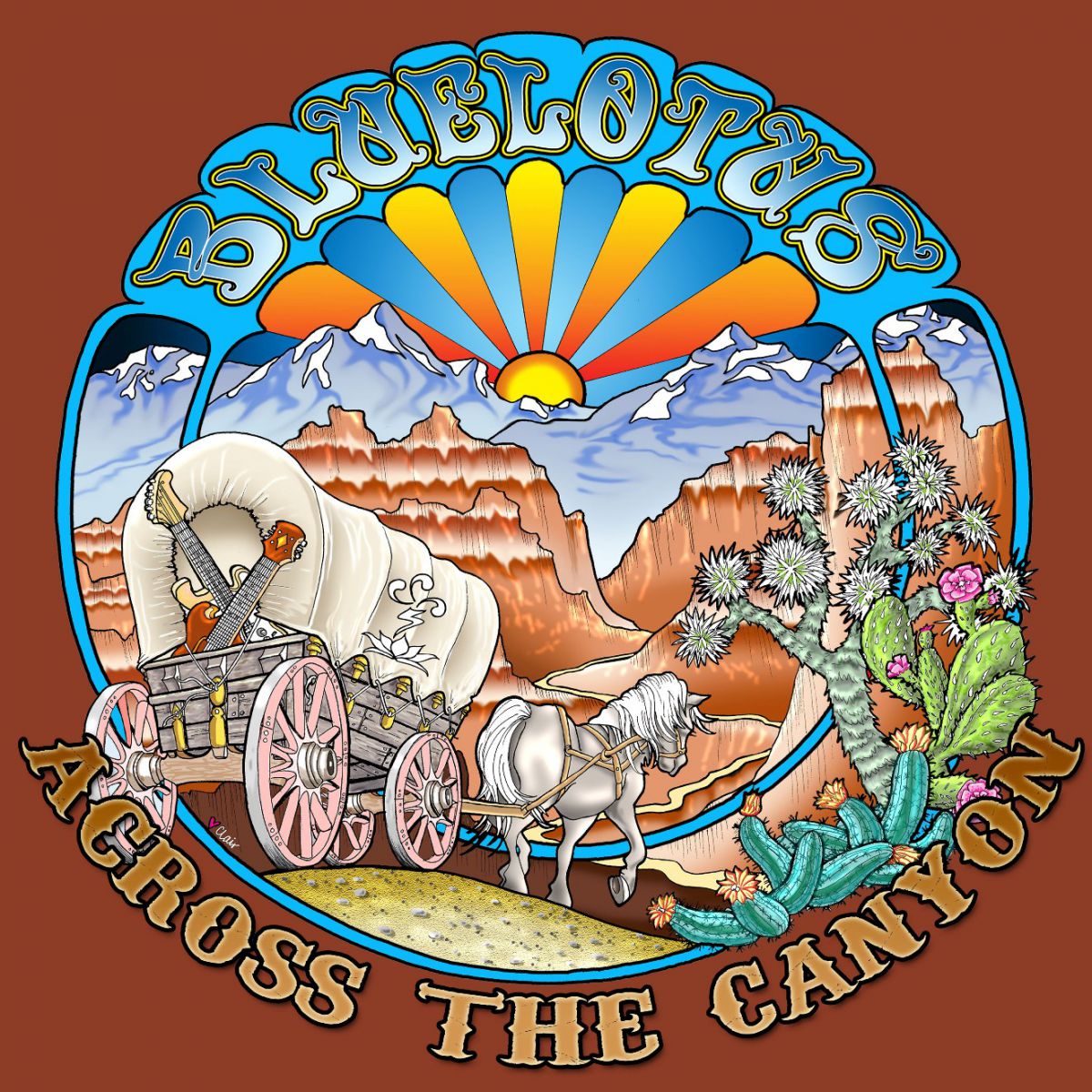
GW: “Mining Diamonds” is live on Blue Lotus latest album?
Brandelyn: Yes, it’s a live track on our studio album. We combined both live and studio performance. Our fans really love the jams and extended improvisation so it’s hard to do a studio album.
GW: Across The Canyon is your latest album.
Brandelyn: Right. There were three that were live tracks from performances of last year.
GW: “Drift Away” is a live track that was also on your 2013 album, A Thousand Other Things.
Brandelyn: We had a little cross over. We tried to take some of our favorite that we had done – even if they were studio – and make sure we got them live because certain songs we love. They’re exciting and creative. We picked our favorites.
GW: What’s another favorite on Across The Canyon?
Brandelyn: I love all of them. They’re all unique. Each one so different and has a different quality. “The Ballad of Black Bart” is one of my favorites. It’s one of my favorites that I’ve written too. It’s an actual story of an Oregon outlaw. I basically tell his story in the song of his life in Oregon. It’s really interesting. He used to rob. He was a real…dude. [Laughing] He use to rob stagecoaches.
GW: He was a real, actual…
Brandelyn: Yeah, he was a real Oregon outlaw. I was inspired by his story. He used to live in the city and pretend to be one of the rich banker folk. At night, he would run up into the foothills and rob stagecoaches. He run back into town and everyone thought he was a wealthy land owner. Yeah, he got away with it for like I don’t know -- 10 years or something. Never hurt anyone, never killed anyone.
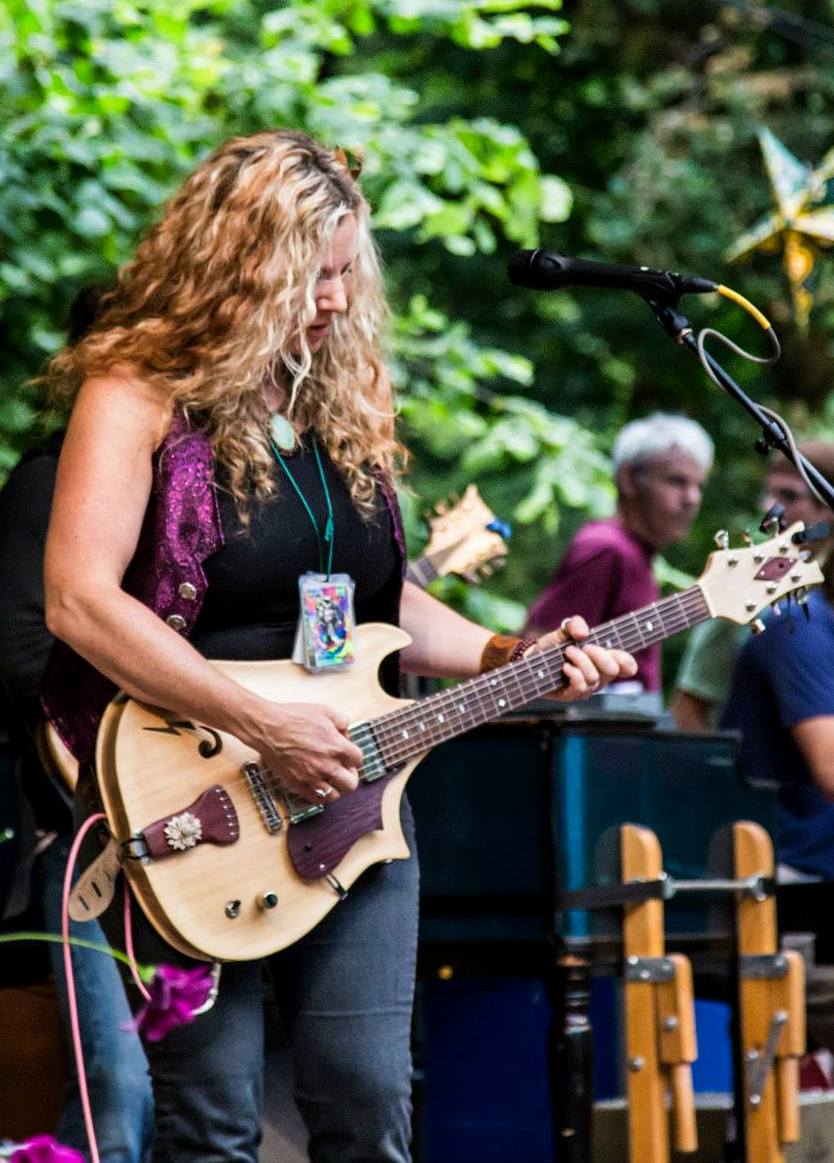
GW: That’s funny.
Brandelyn: Yeah, it’s hilarious. He finally went to jail for like four years. When they let him out, he disappeared and no one ever saw him again.
GW: Really.
[You can read up a lot more on Black Bart on the internet]
Brandelyn: He’s probably in Mexico. [Laughing]
GW: We’ll have to listen to that track. [“The Ballad of Black Bart”]
Link to Blue Lotus music – click “Audio” menu:
http://www.bluelotuseugene.com
Brandelyn: Listen to it. You’ll love it. It’s really fun. I did a lot of research on different vocabulary that was used at the time, in the 1800’s. What was the language they used to describe certain things.
GW: Do you remember any of the vocabulary? Is it kind of western-ish type things?
Brandelyn: Western and old like ‘batter’, spelled b-a-t-t-e-r I think. I’d have to look it up. ‘Booty’ is gold coins and money. I used a bunch of different language from the day in the song which is fun to do. It’ fun to move back to a time and place. Hunter does a lot of that too. He’s a master of it.
GW: A Thousand Other Things [Blue Lotus’ 2013 studio album] is the only album I found on iTunes.
Brandelyn: That is old with our old drummer. Have you heard our new album.
GW: Yes, Across The Canyon is on the Blue Lotus website under Audio where I found “Mining Diamonds” and “Drift Away”. There are really cool tracks on that album and on the 2013 album as well where I found “Mama Freight train” and “Along the Road w/You” -- really good songs.
Brandelyn: “Along the Road w/You” is one of my favorites. I love that song.
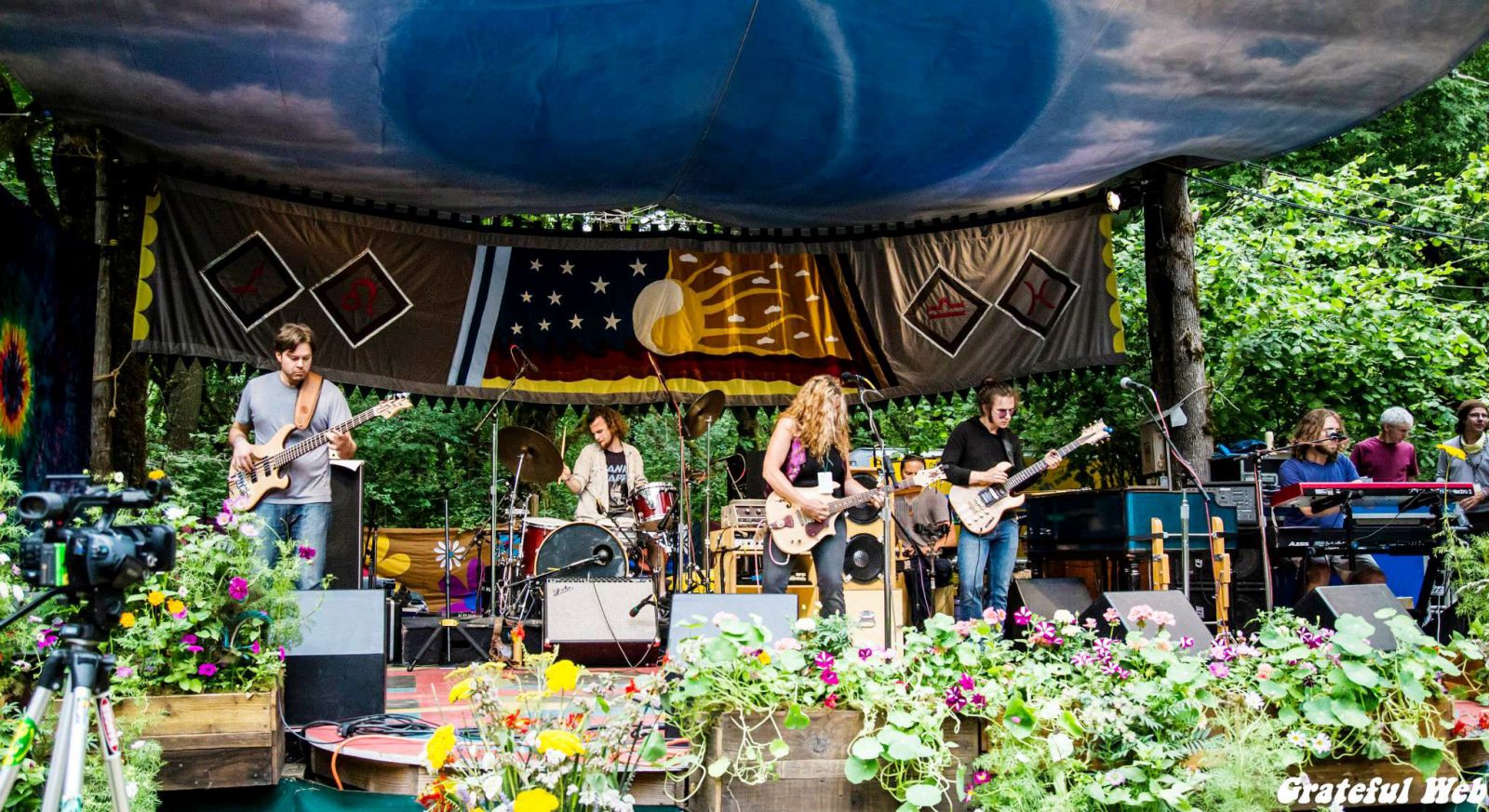 GW: It’s a beautiful, sweet song. Talk about that track?
GW: It’s a beautiful, sweet song. Talk about that track?
Brandelyn: That one I was inspired. I’ve been listening to Fruition which is so funny. I love them and sometime dream them while working. I was listening to them one day. I don’t know what inspired it but I remember getting in that mode of I wanted to write a kind of sweet, blue grassy tune. I pictured myself going out on a road trip. And, that was the beginning of it. I never write at face value but I can’t obviously say that. Almost nothing is face value.
GW: You have shows in Denver and a festival in Montana.
Brandelyn: Yeah, we’re finishing out the tour as one of the headliners for the Feel Good Festival.
GW: What’s on the horizon for Blue Lotus after the tour.
Brandelyn: In the winter time, we tend to woodshed, write more music, pull together some pieces, get everybody a little tighter and stretch the jams longer -- a little more intricate. So, woodshedding in the fall and slow down a little bit. We do more local and regional in California and Washington primarily during the fall season. And then during the tour, we do a spring break, summer is the festival season, and tour through the end of the summer. We’ll continue to tour and get the music out there. It’s just been a great experience – life changing.
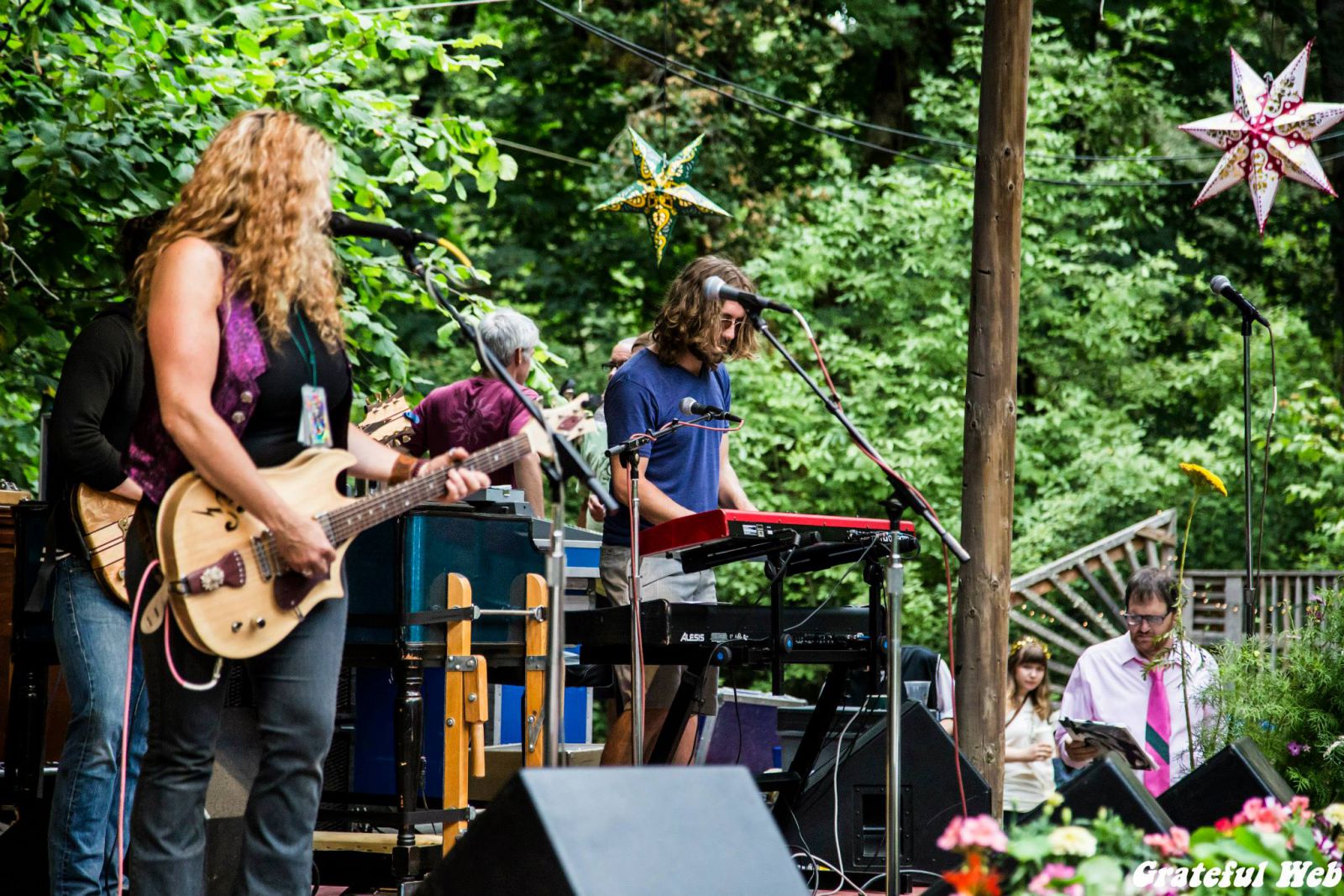
GW: It’s great for us. Thanks for putting the music out there.
Brandelyn: Thank you so much for the support. Those little boosts help gives us a little more exposure. People came out last night I guess from Colorado Springs who have heard of the band. I was surprised because we’ve never been out here and they made an hour drive to see us. Every little bit of getting the word out helps. We love what we do. Felix and I are best friends. We want to do this. Play music for people is what brings us so much joy. Keeping it going is really exciting.
GW: We appreciate your time again. Good luck out there.






